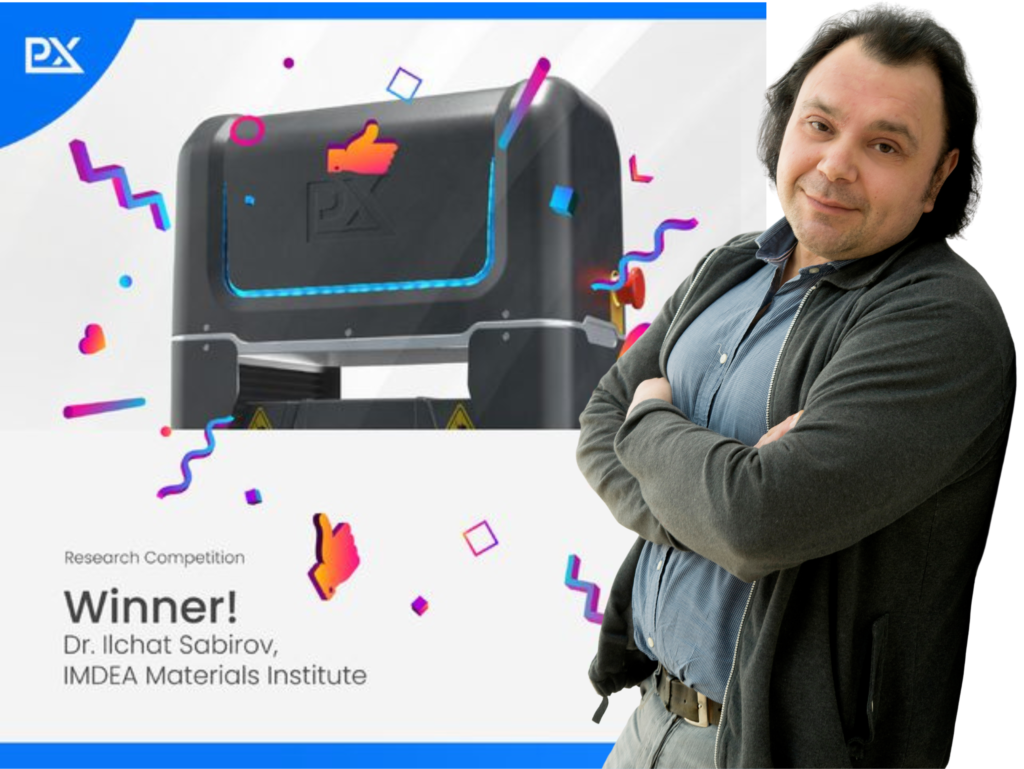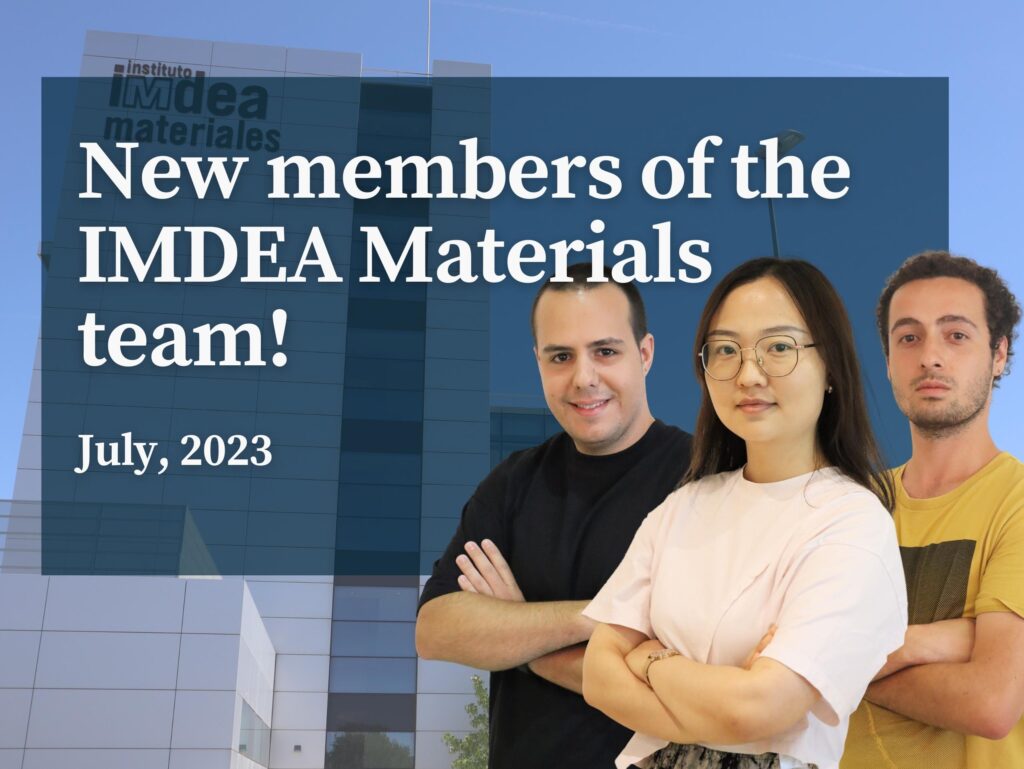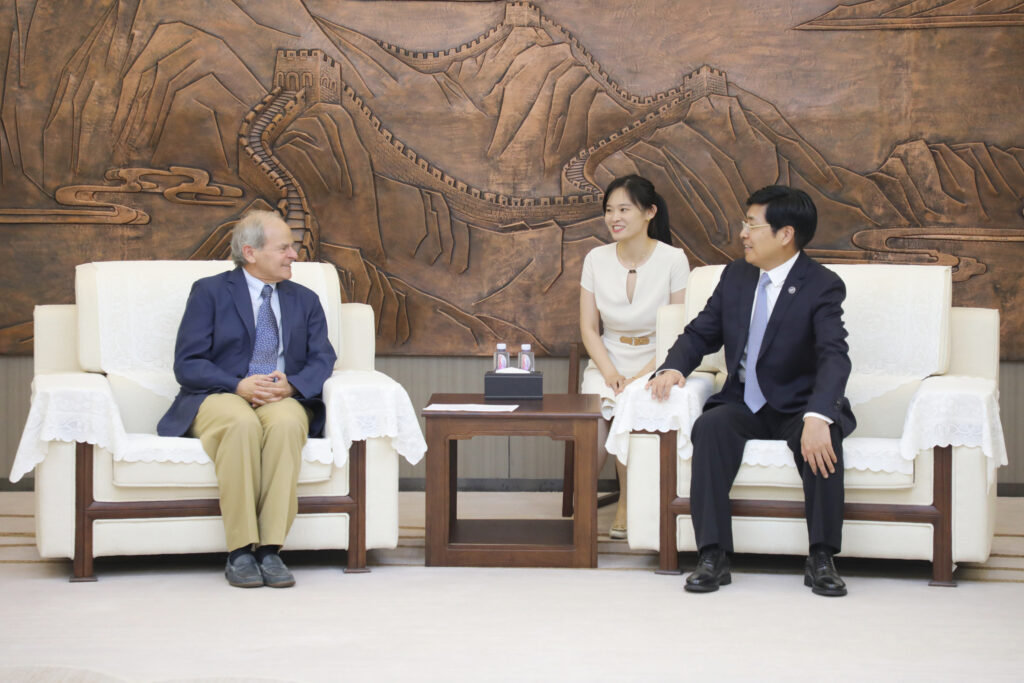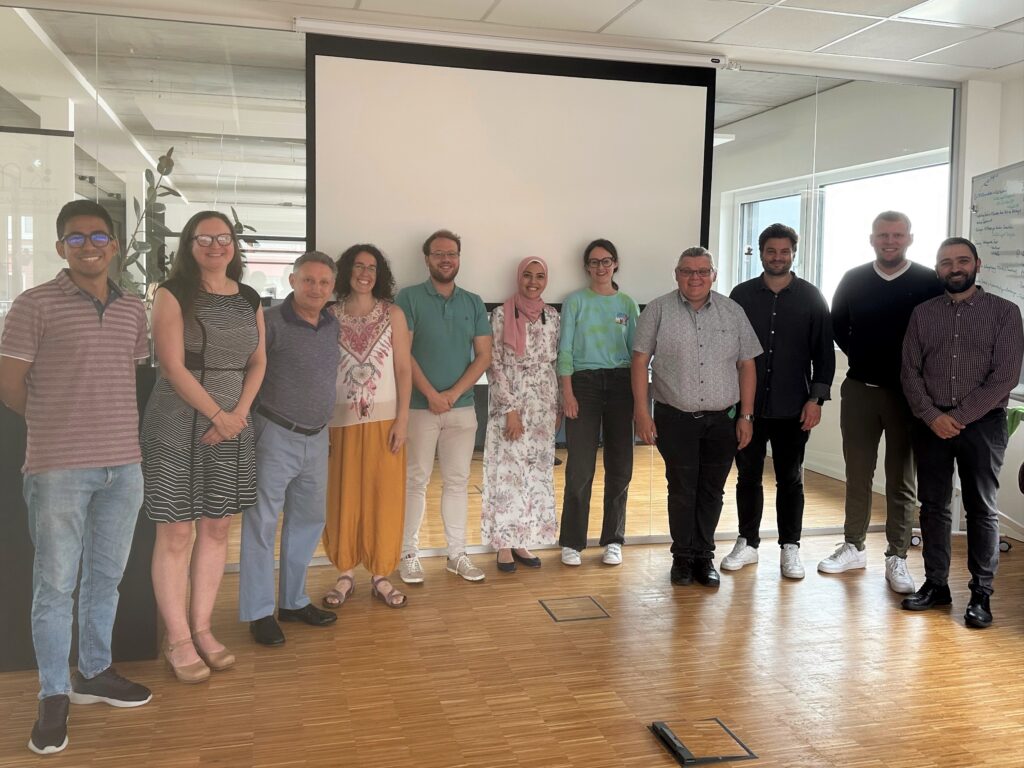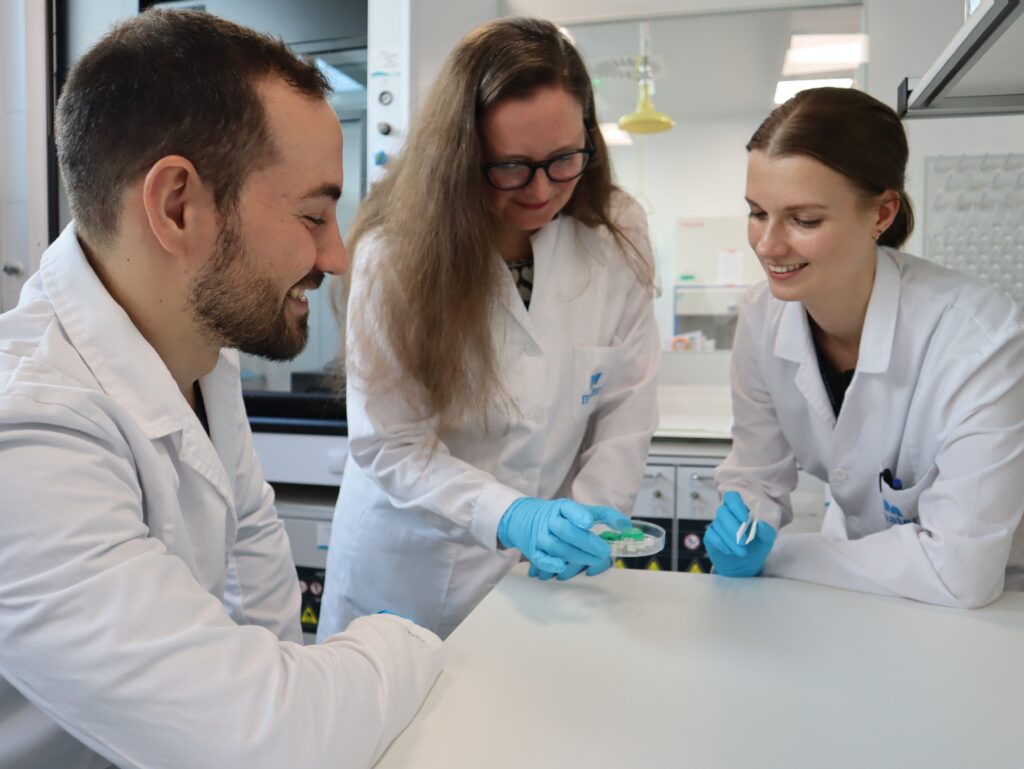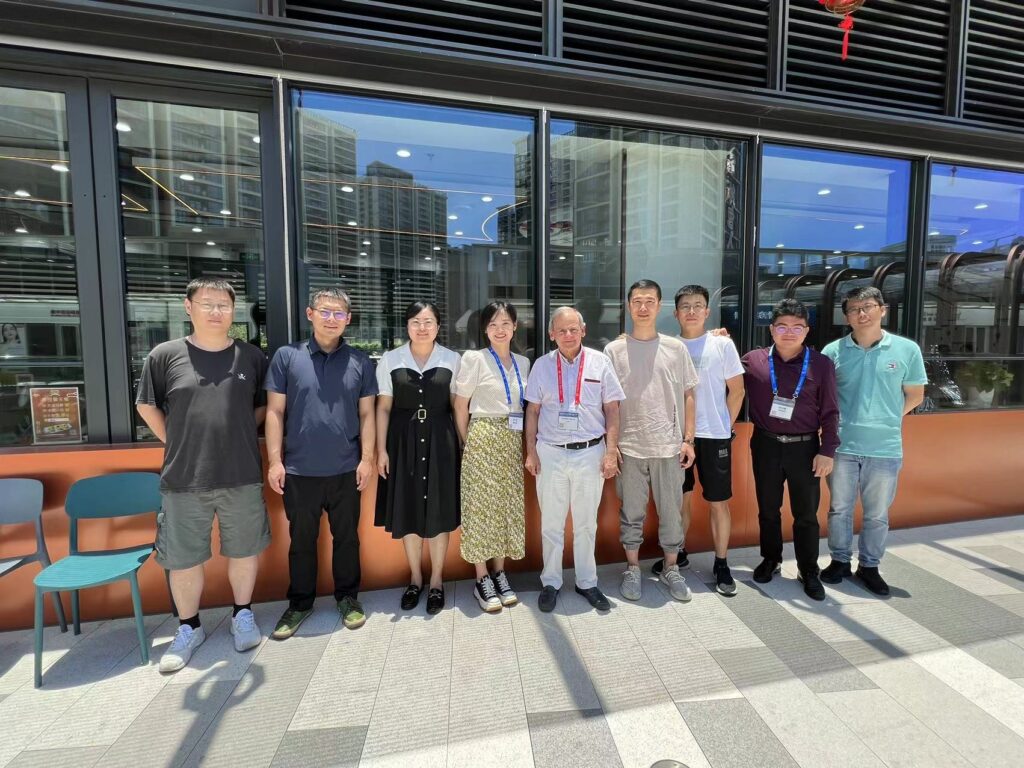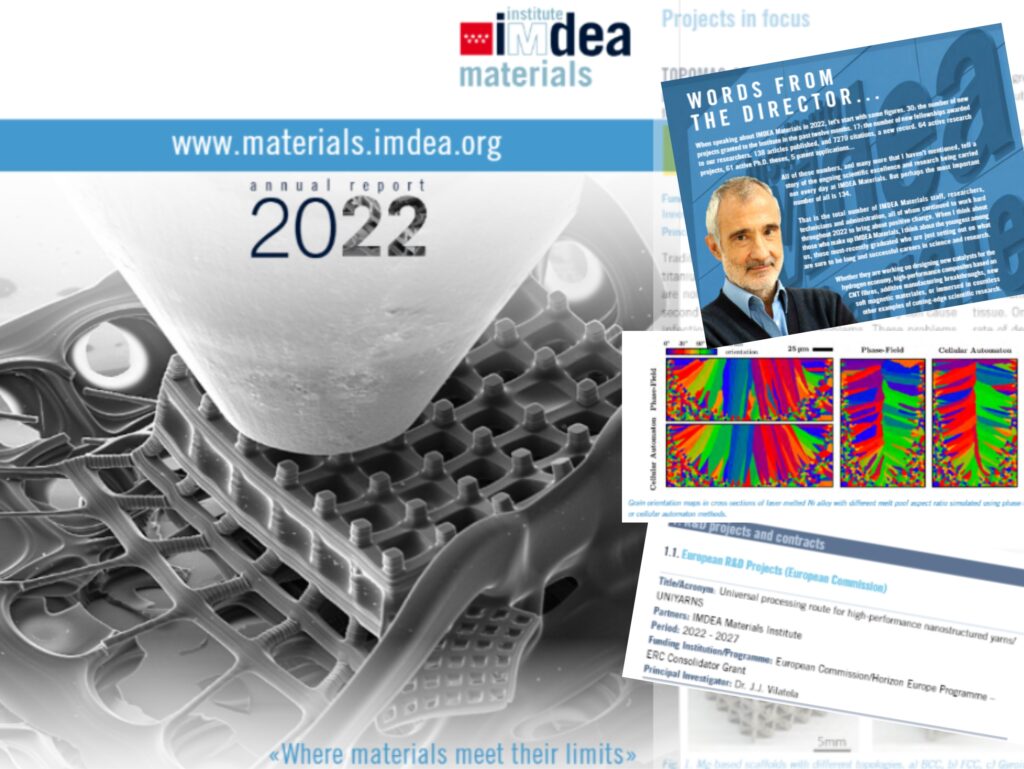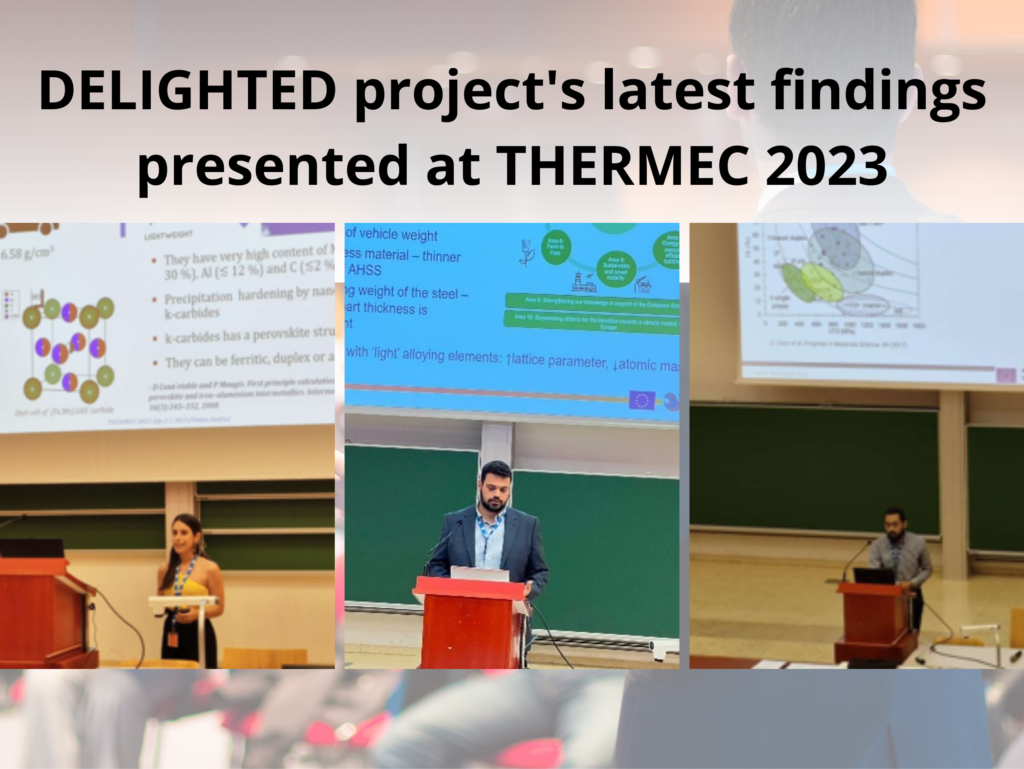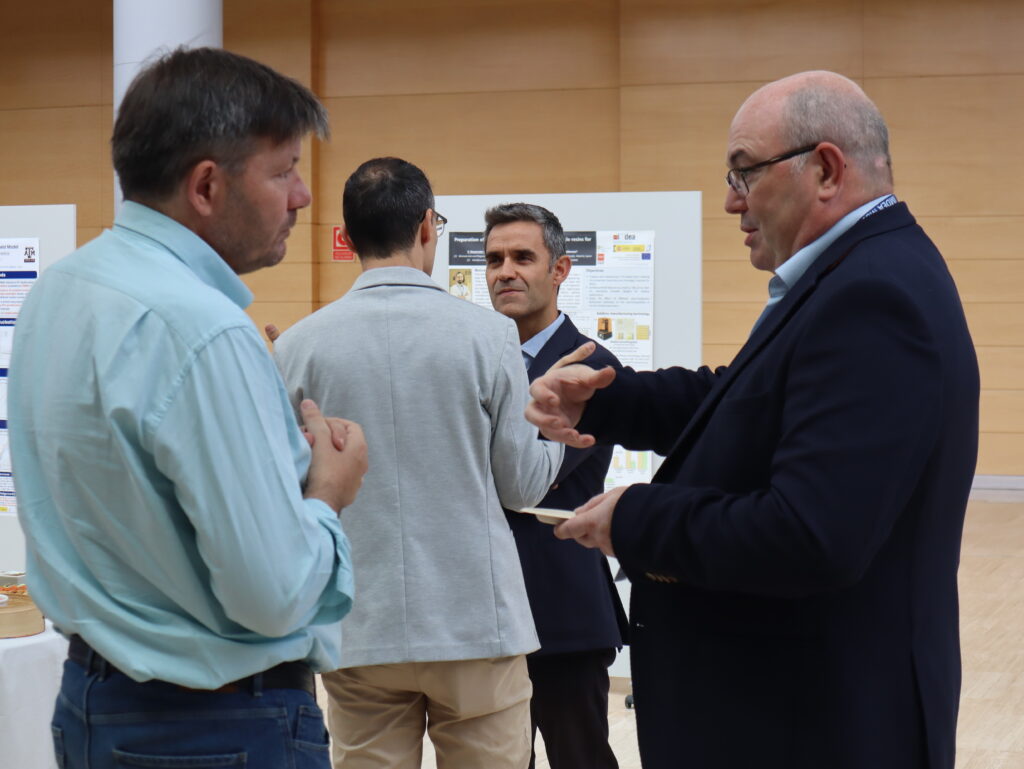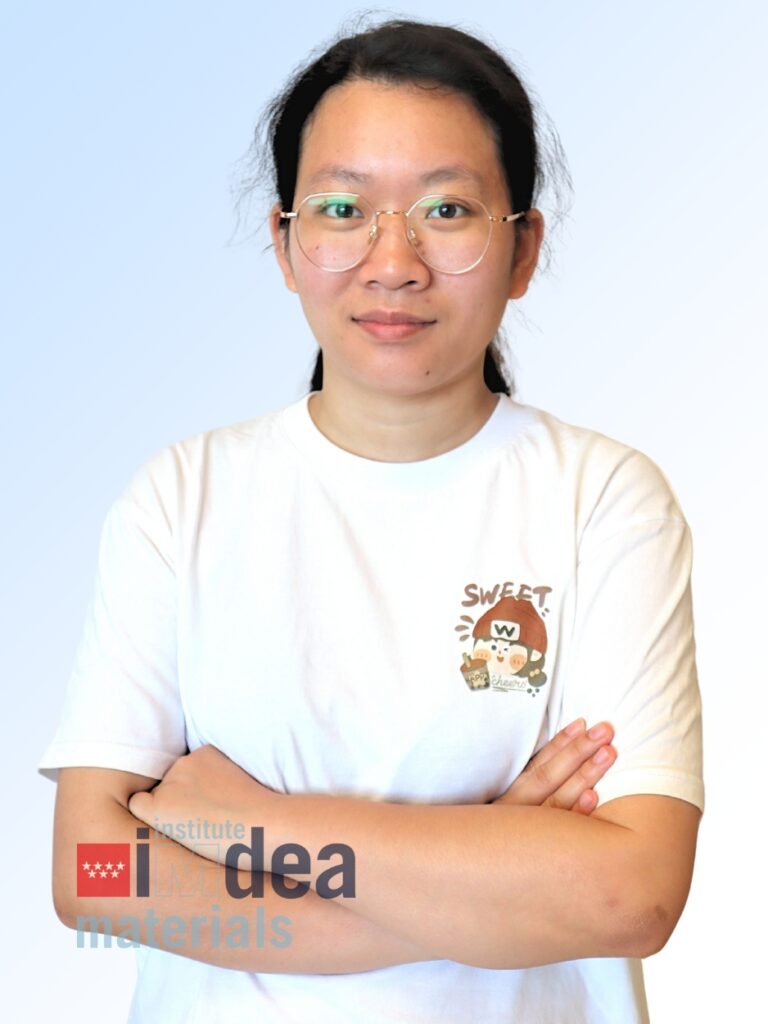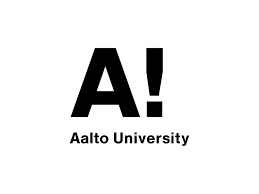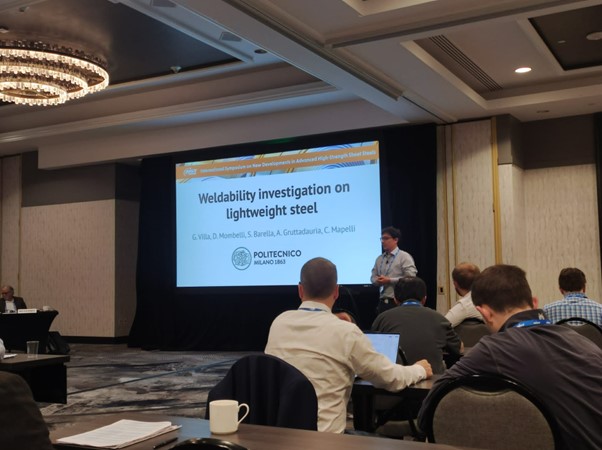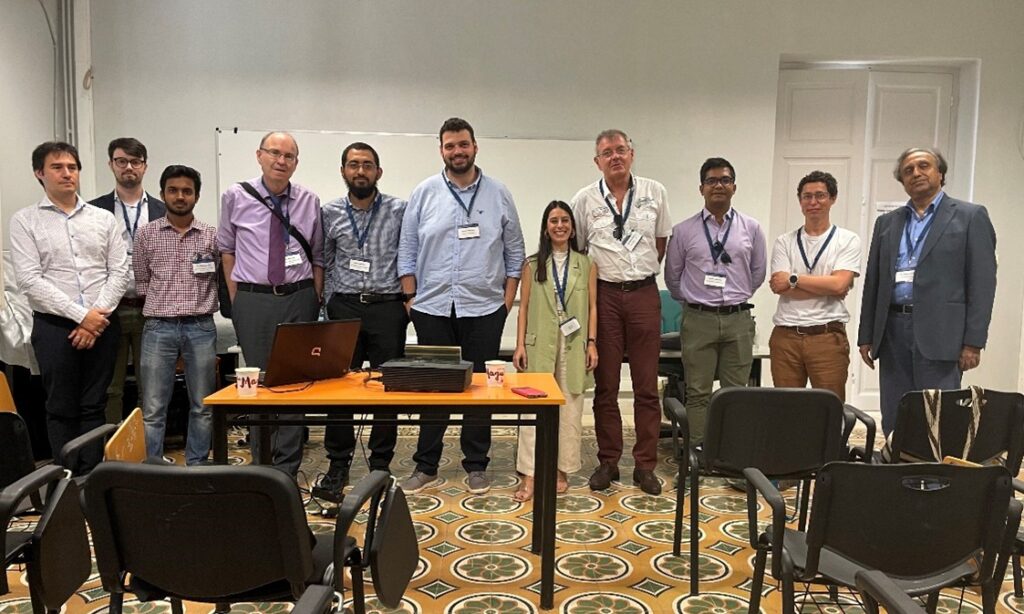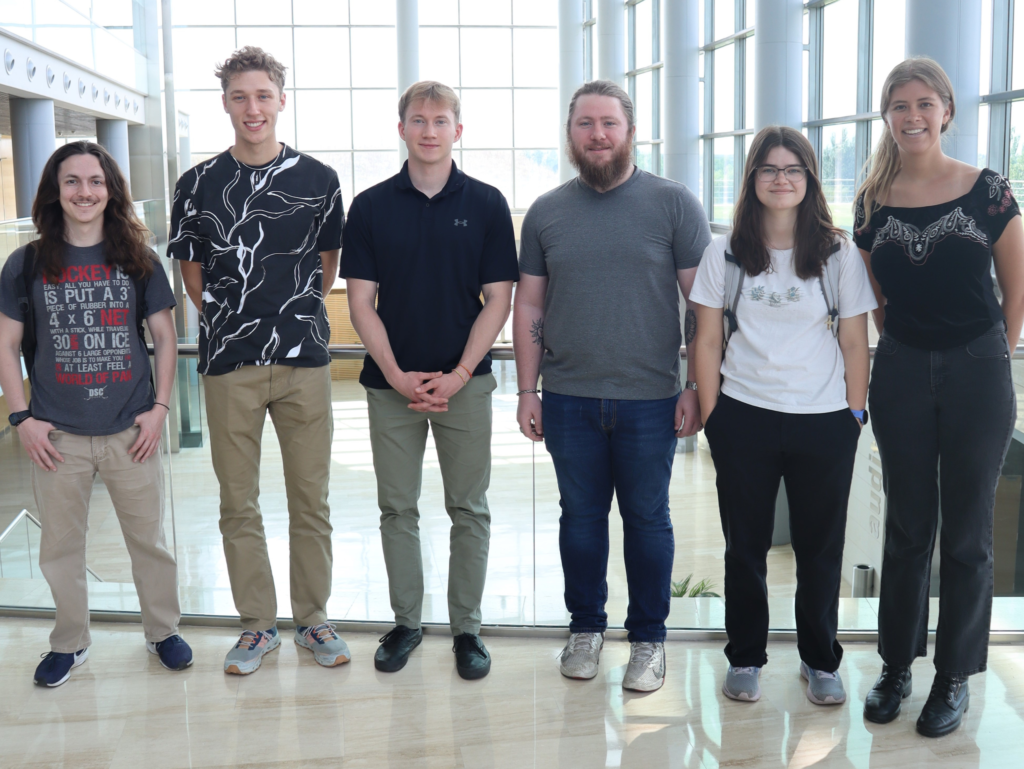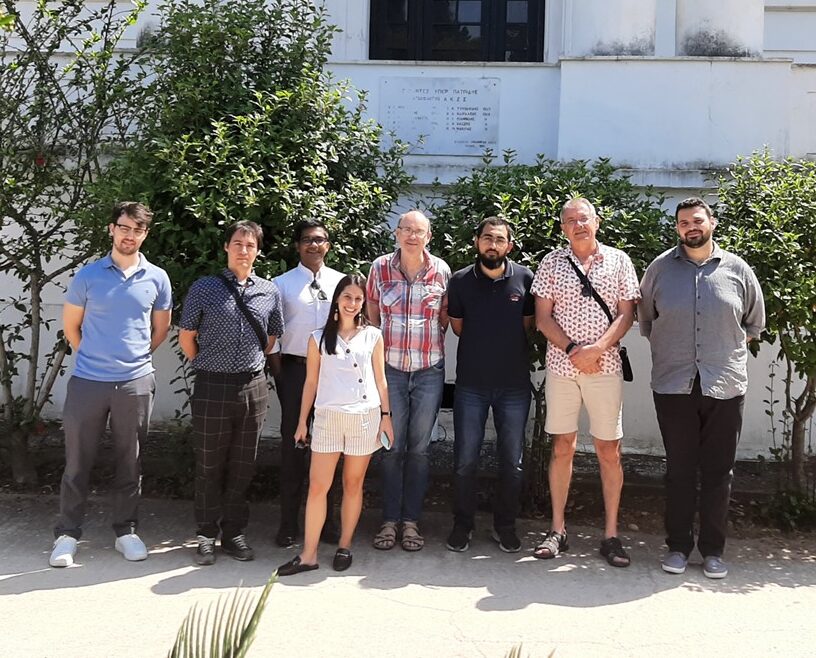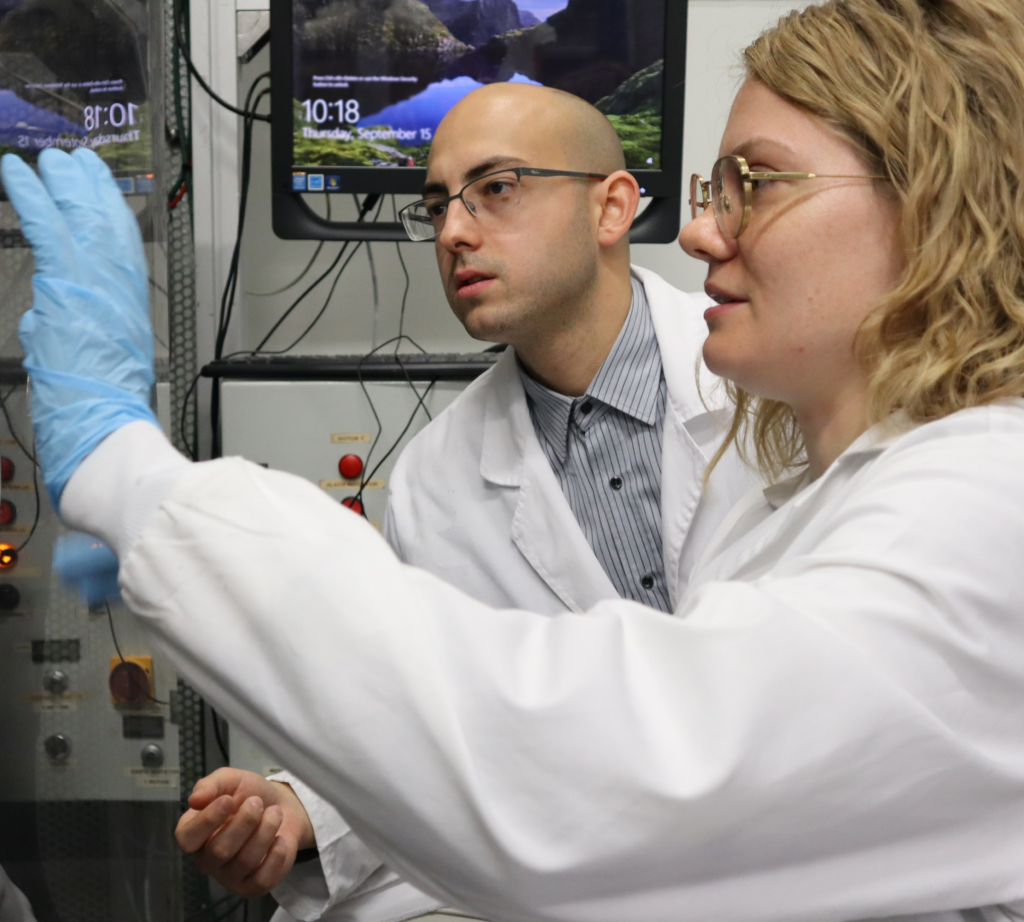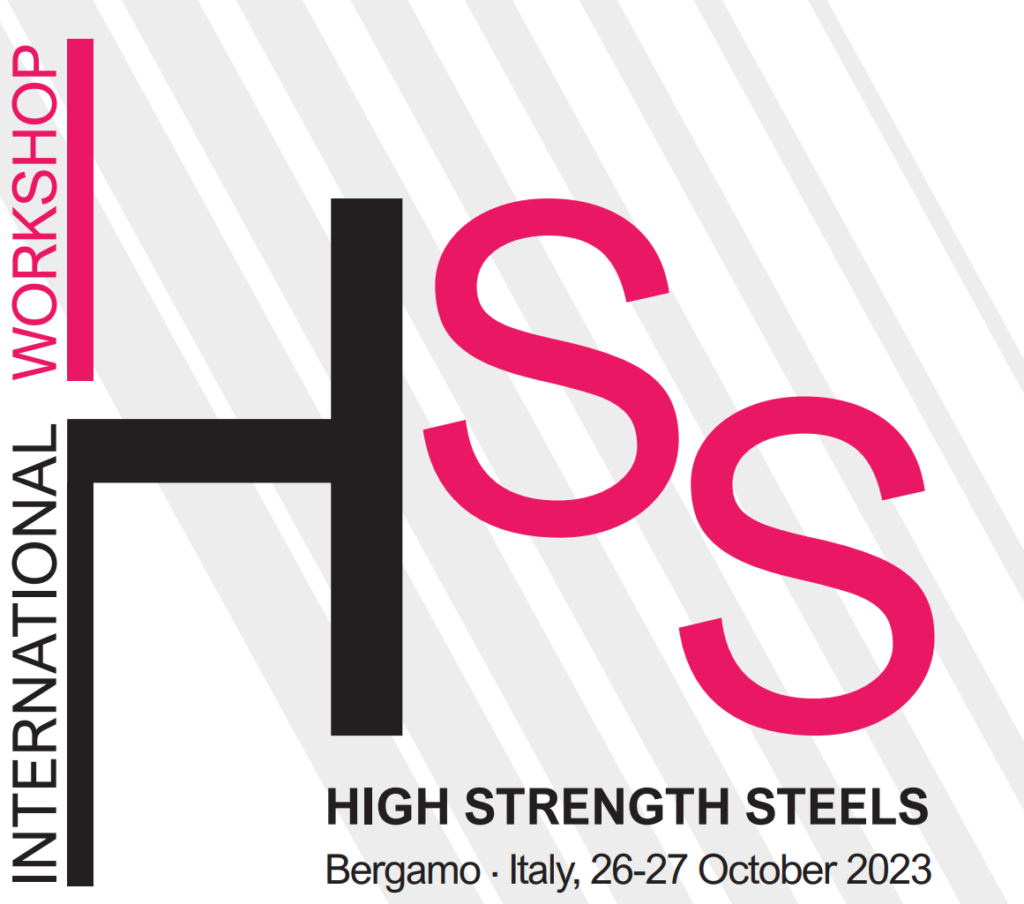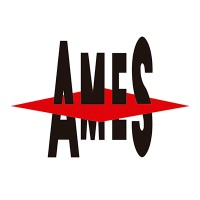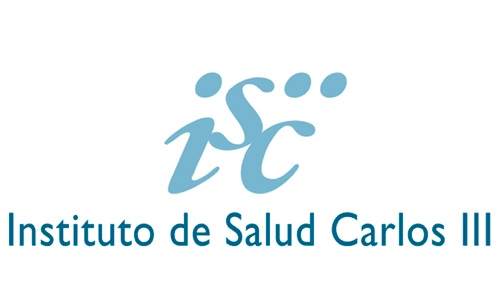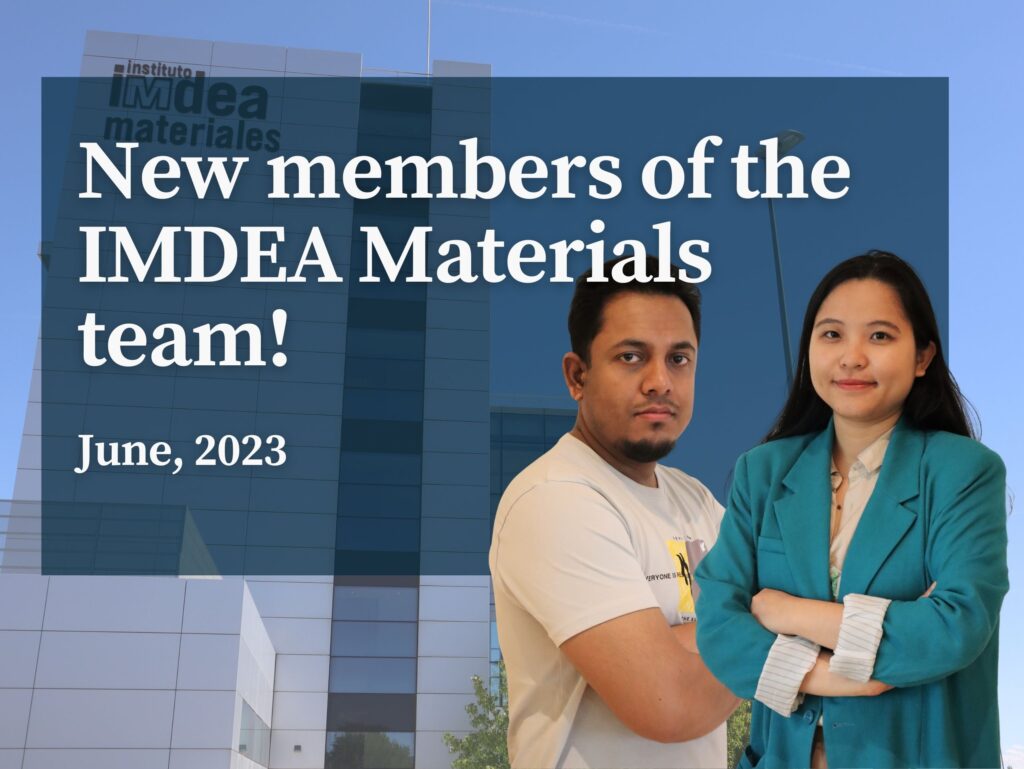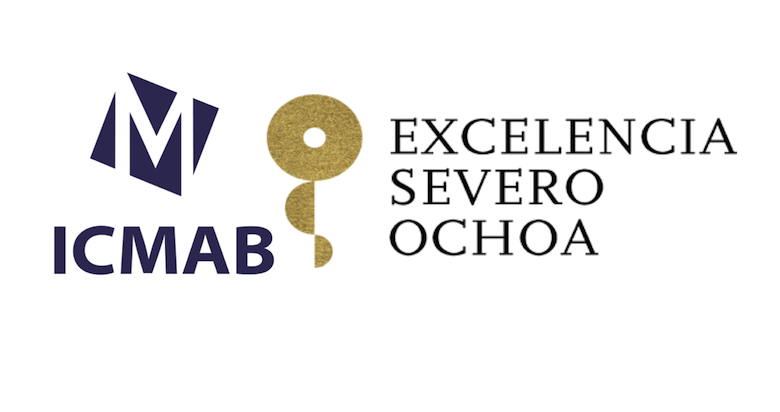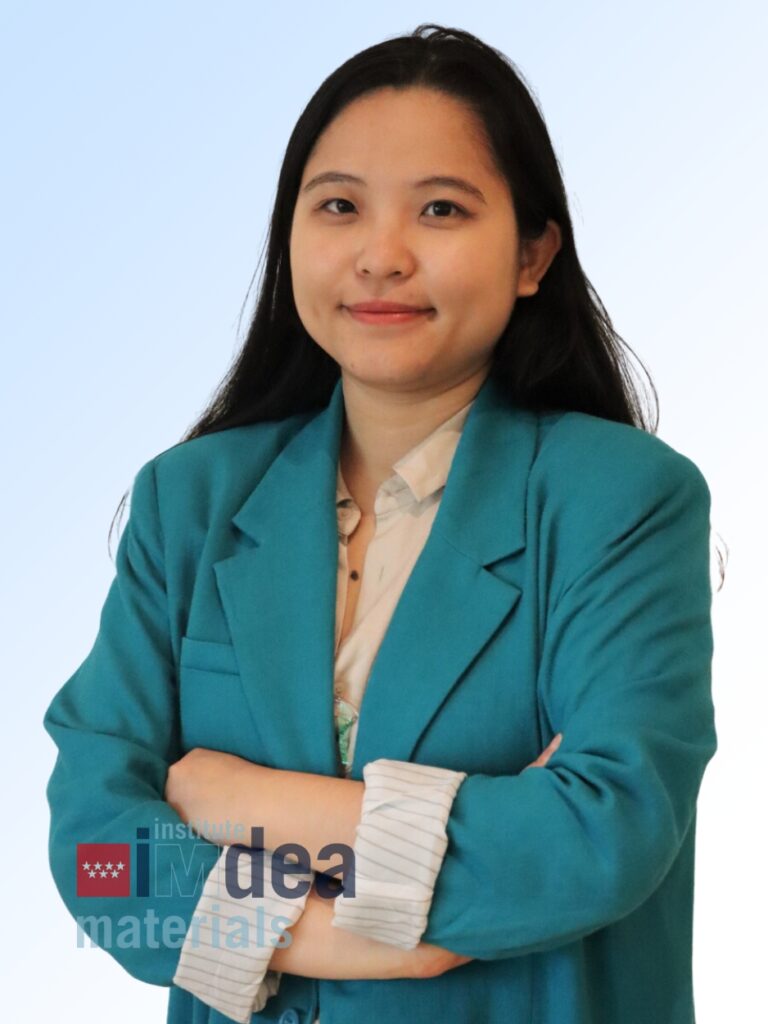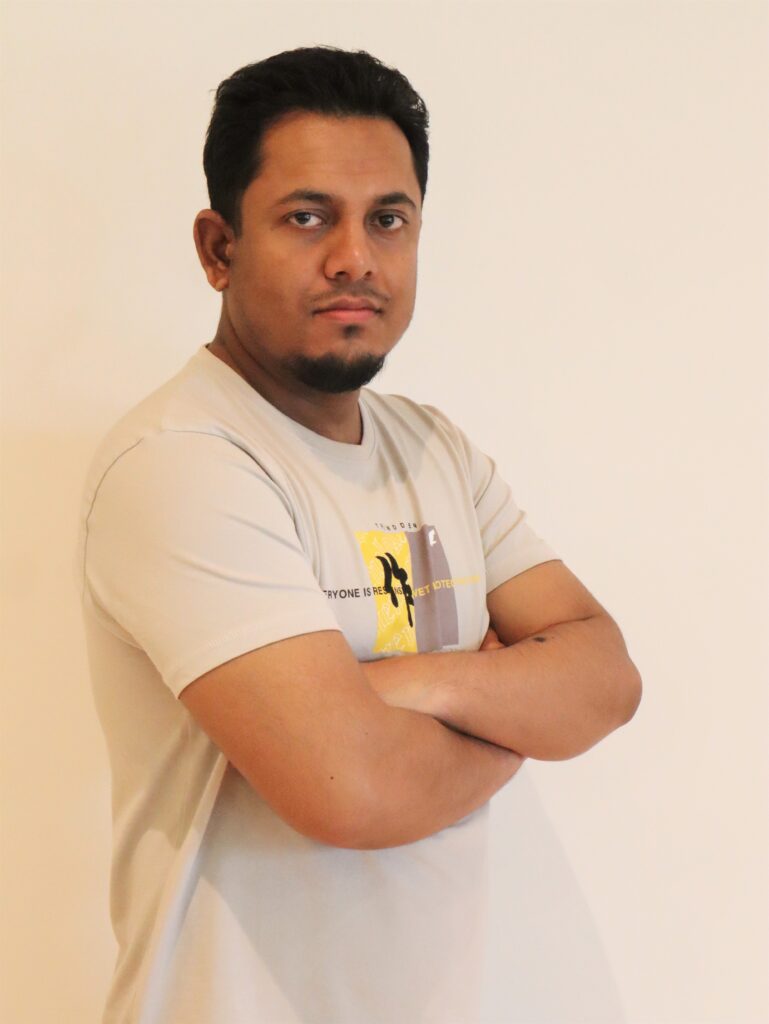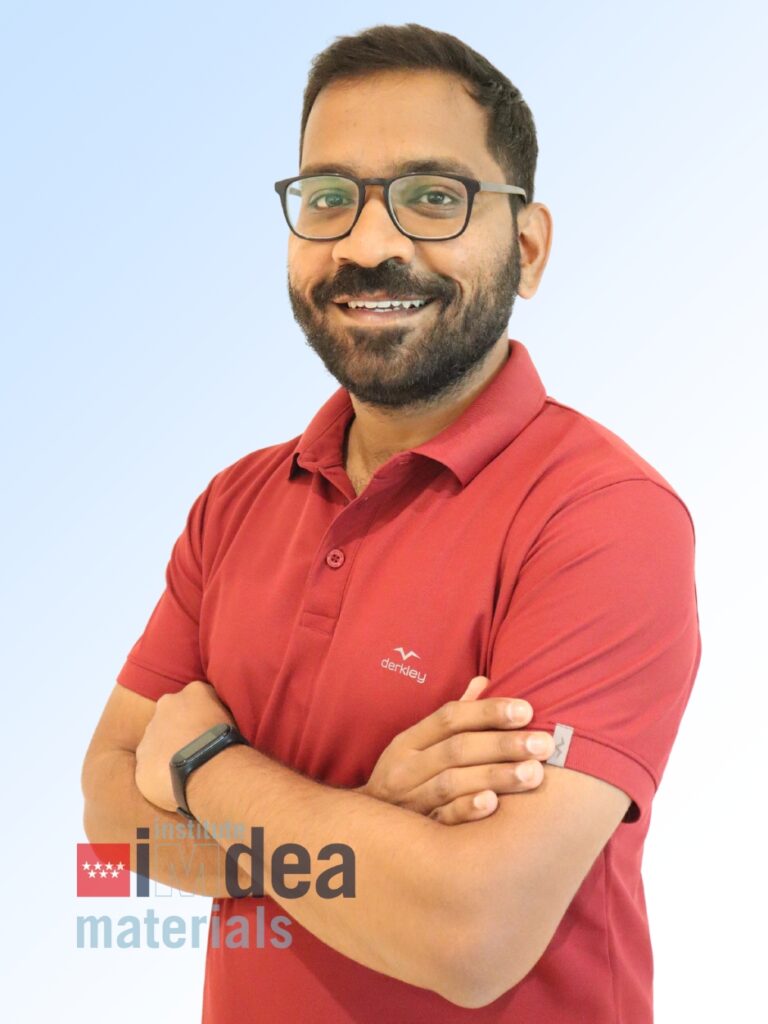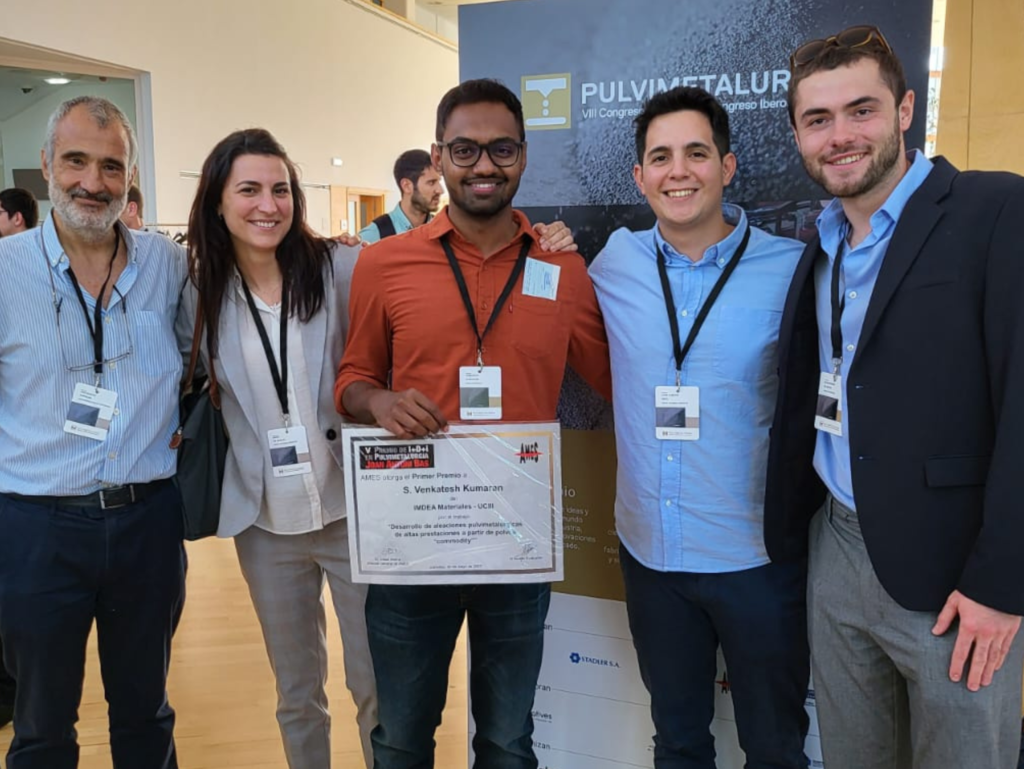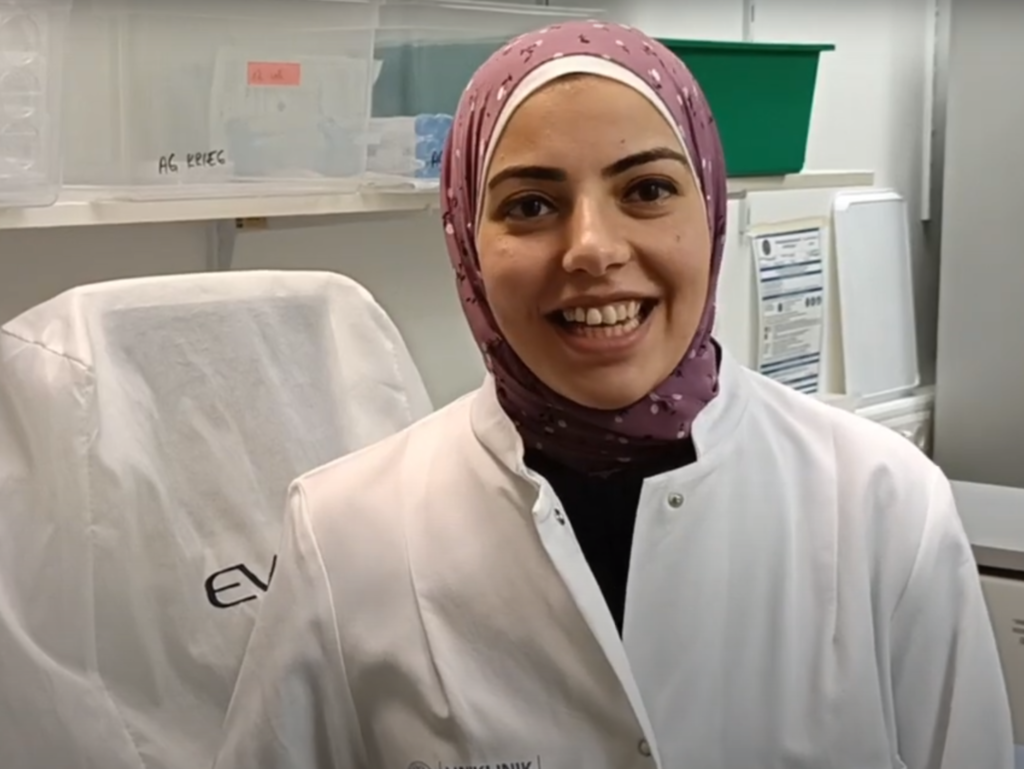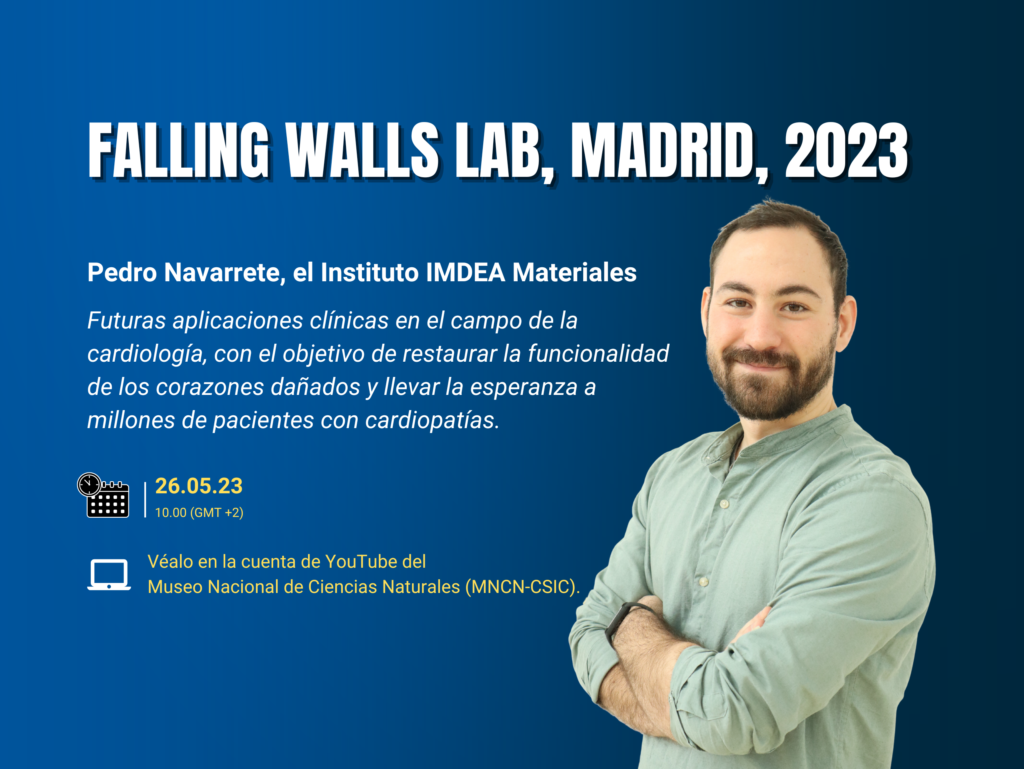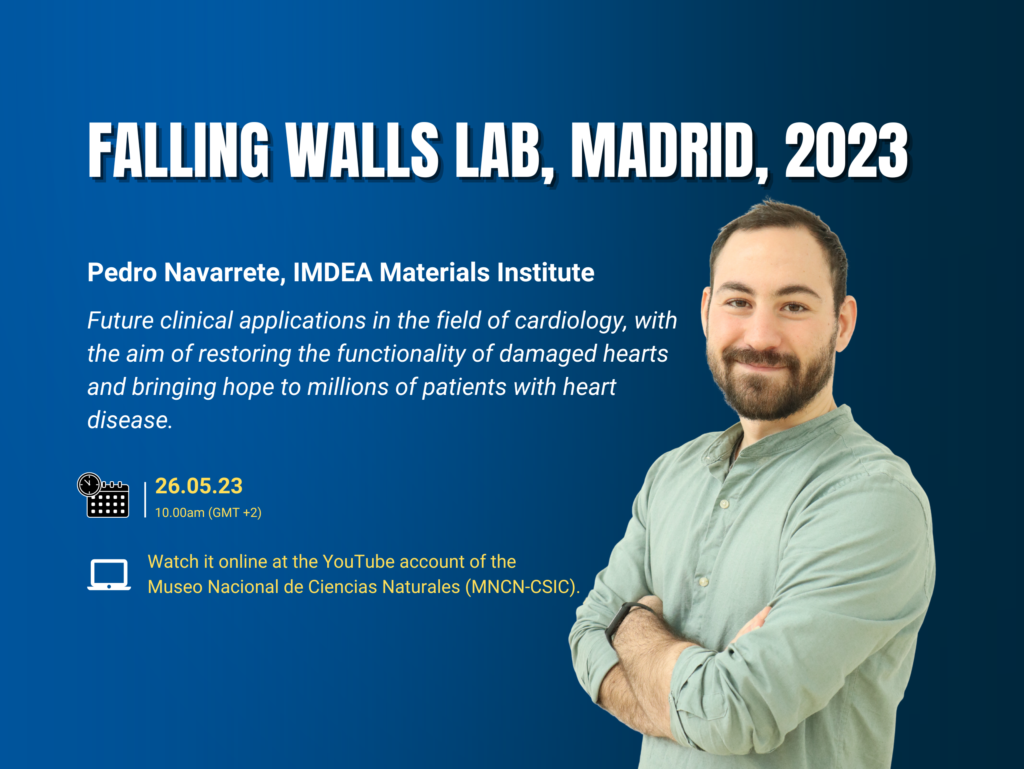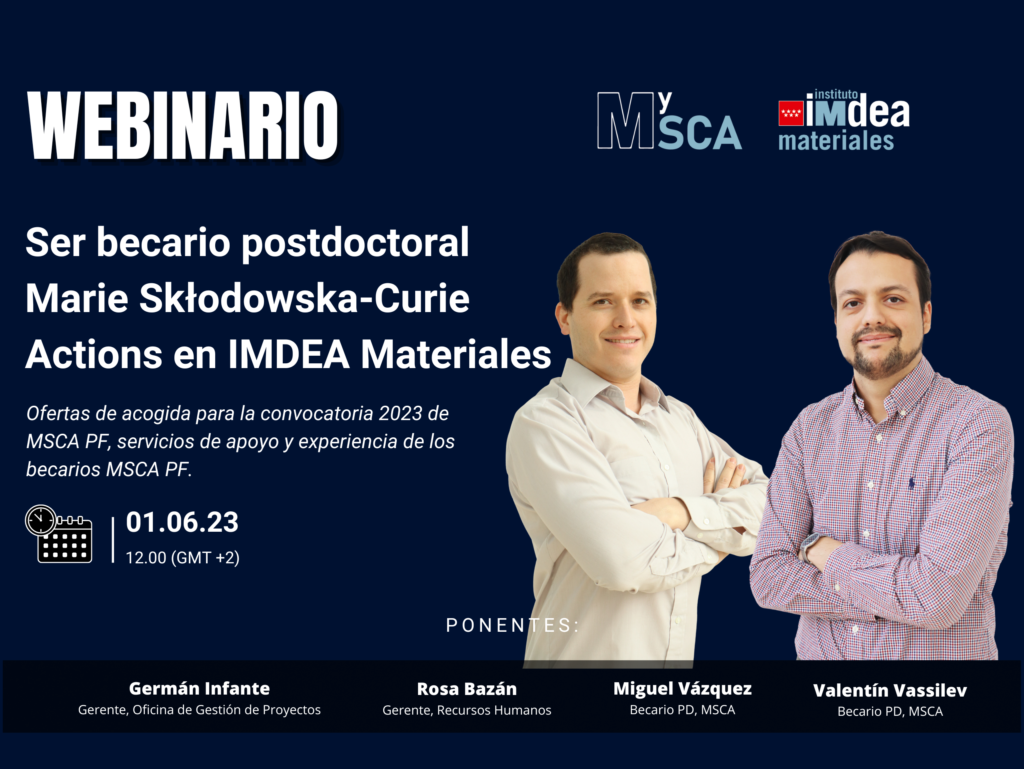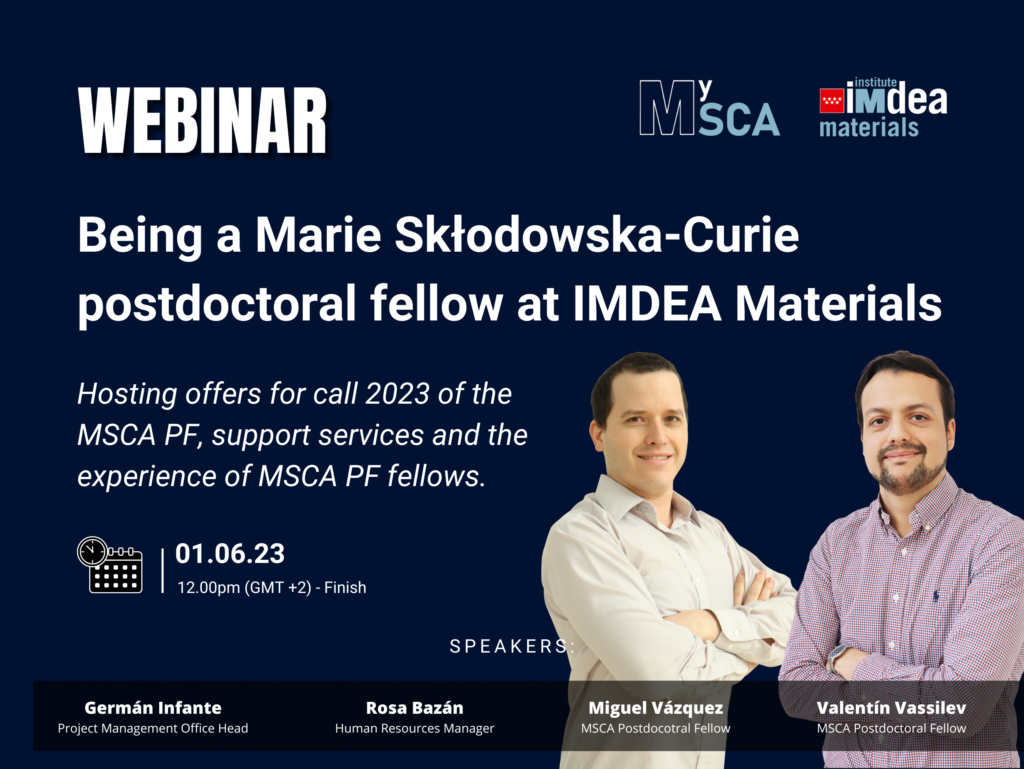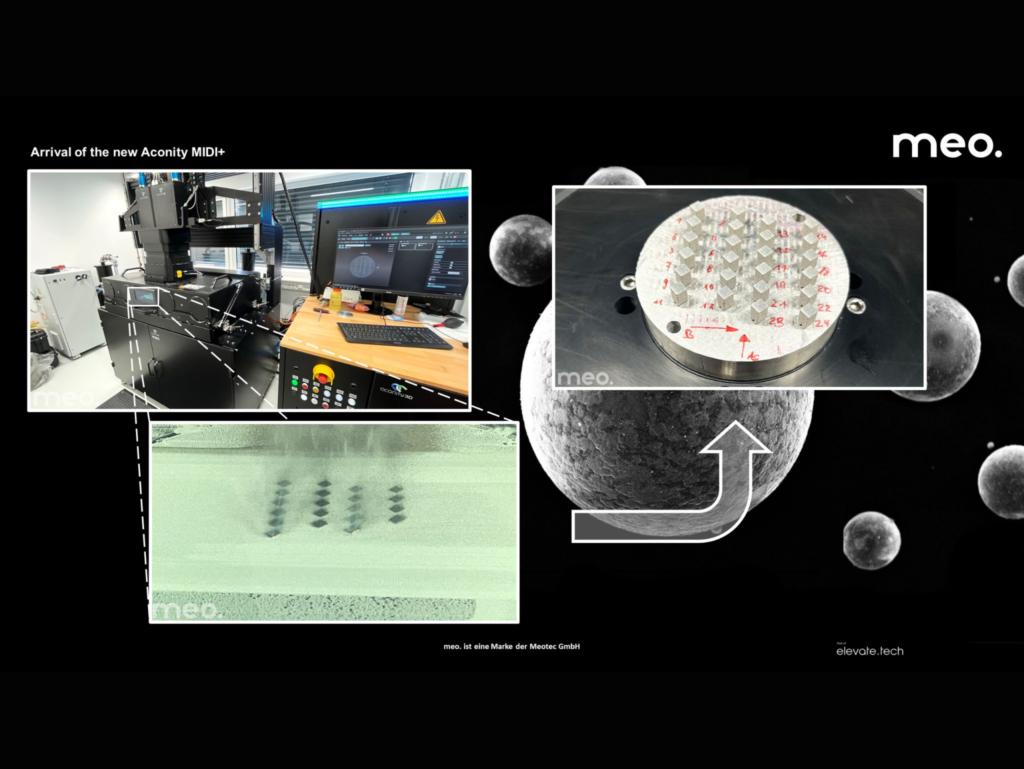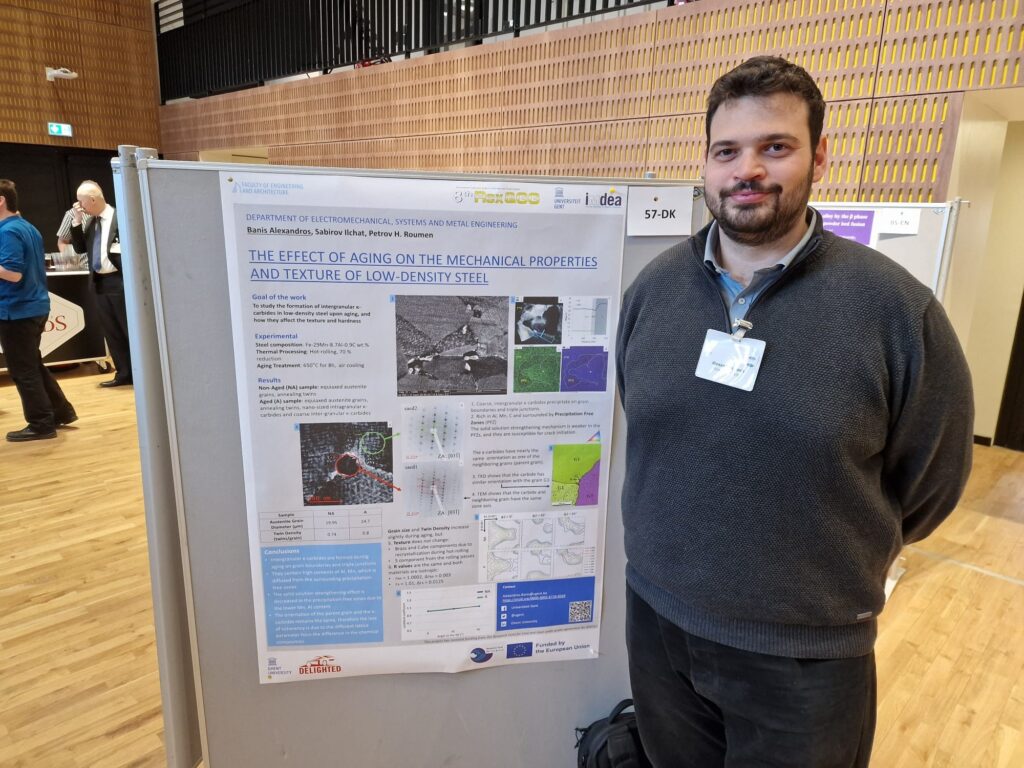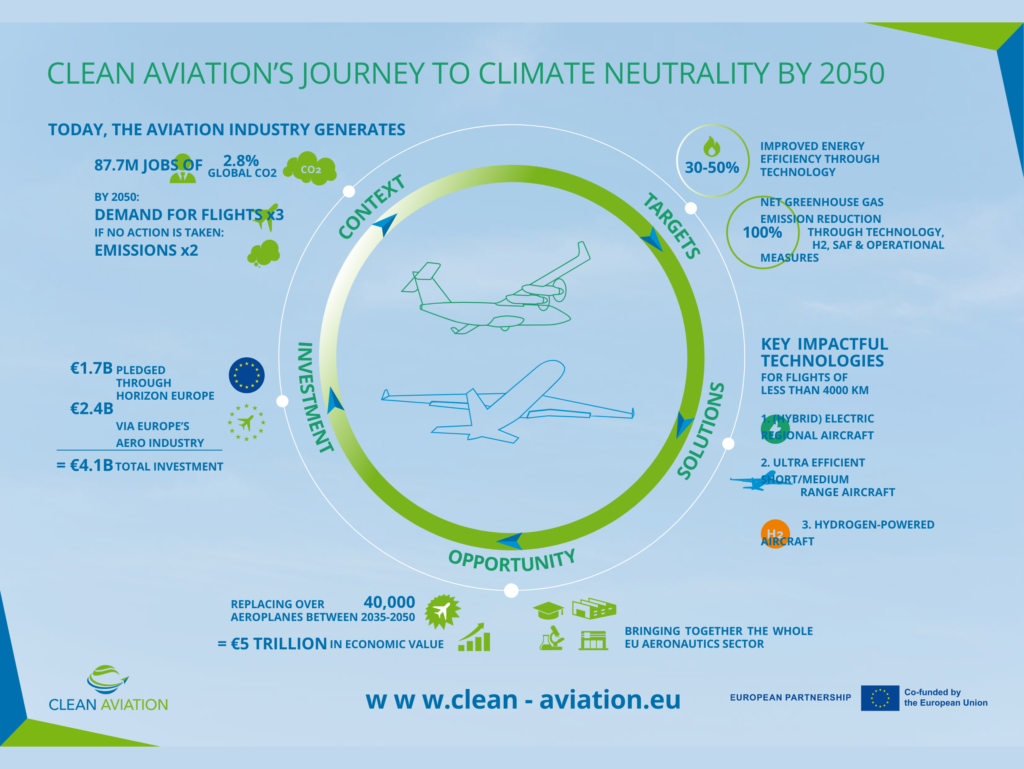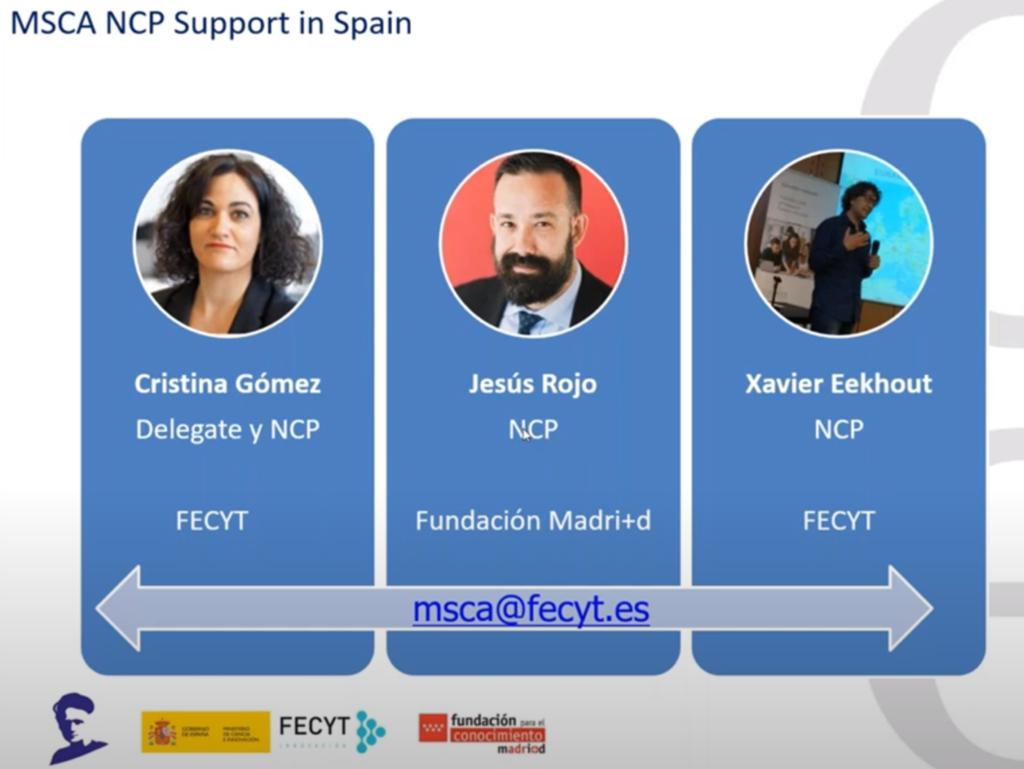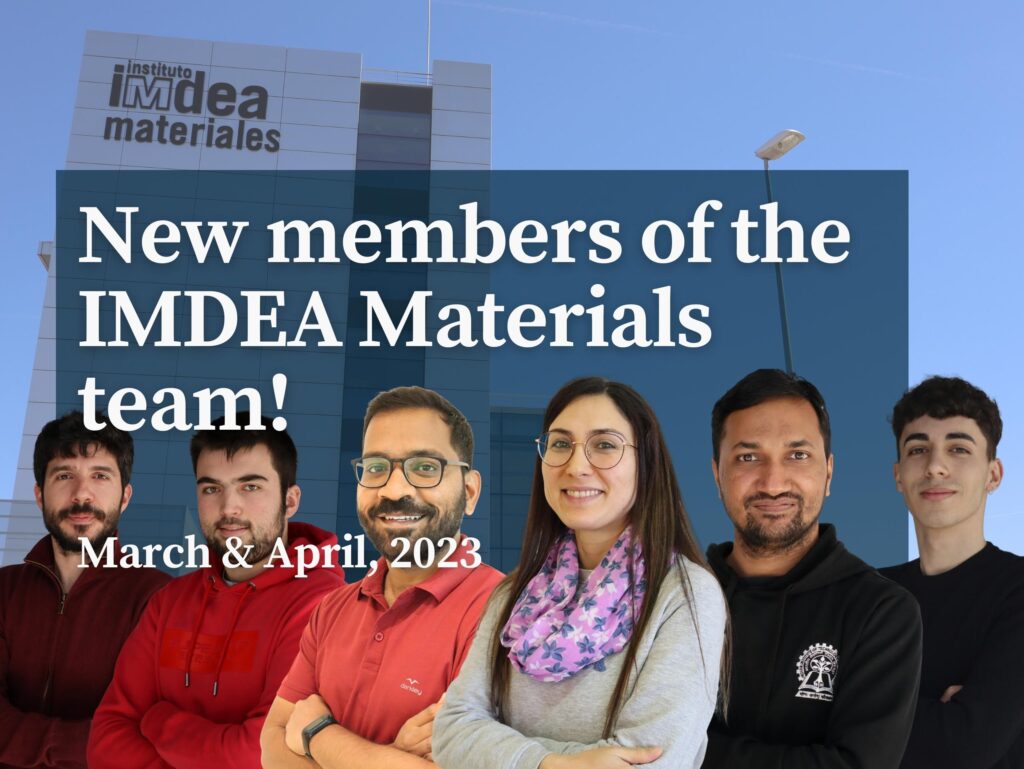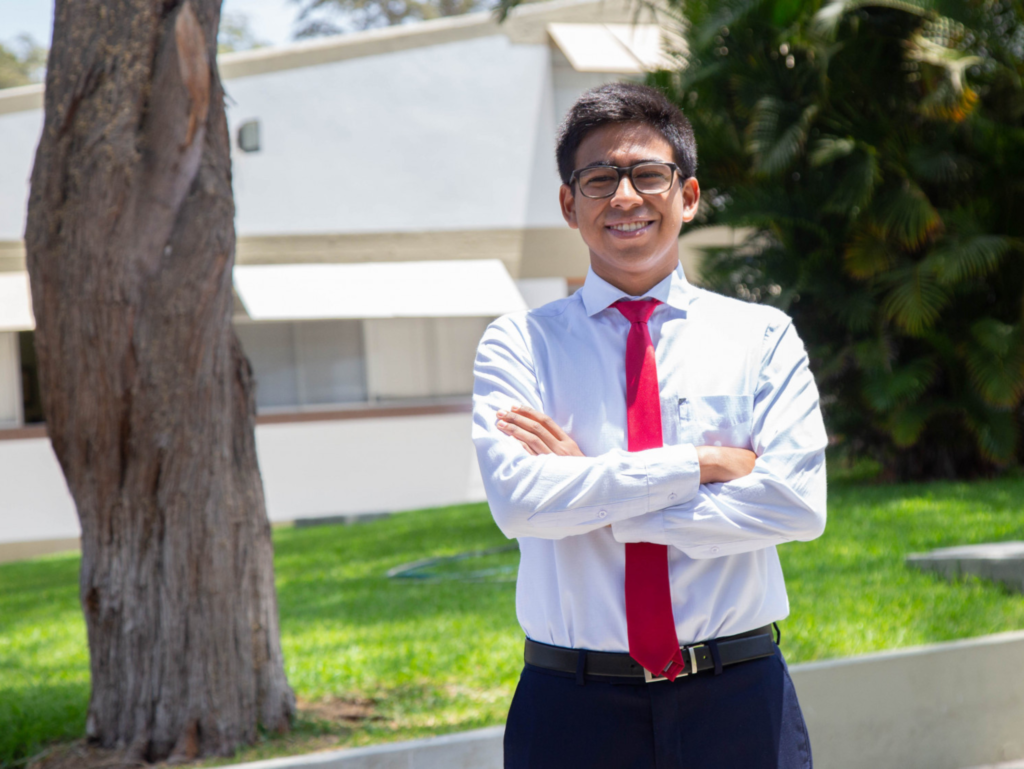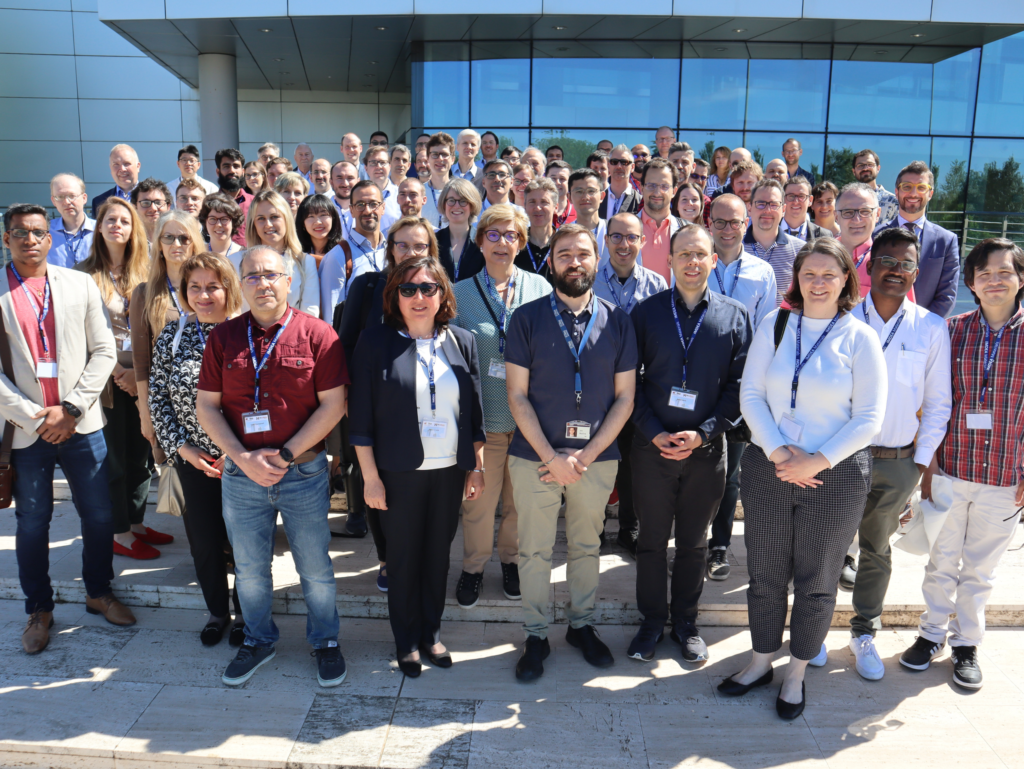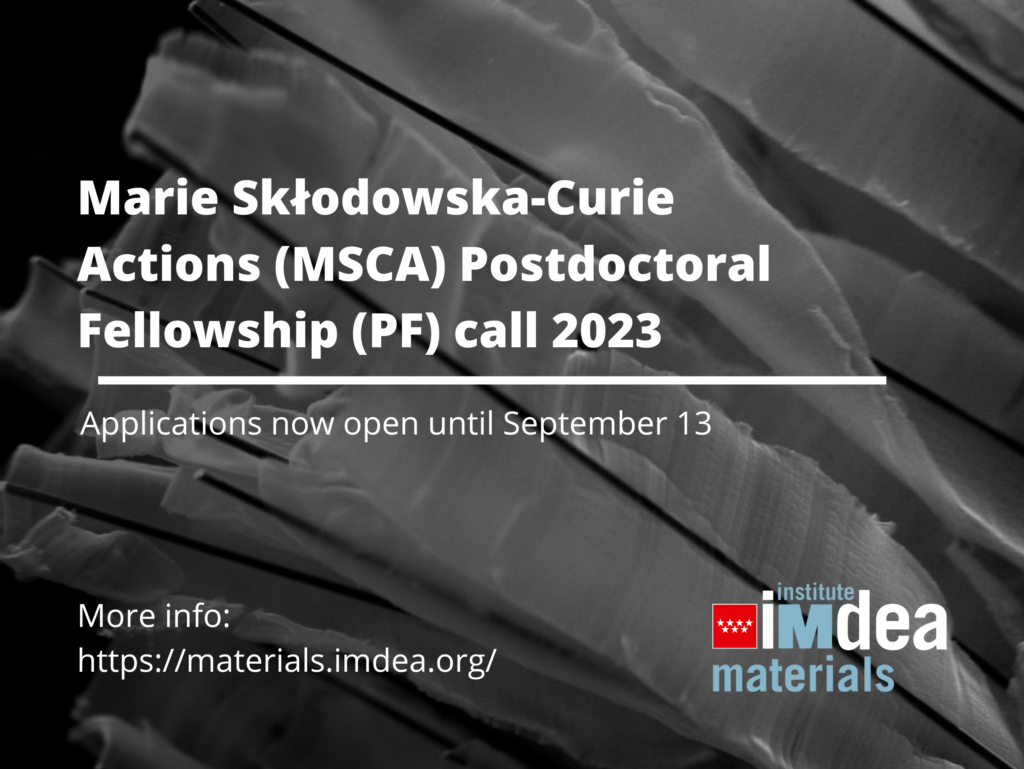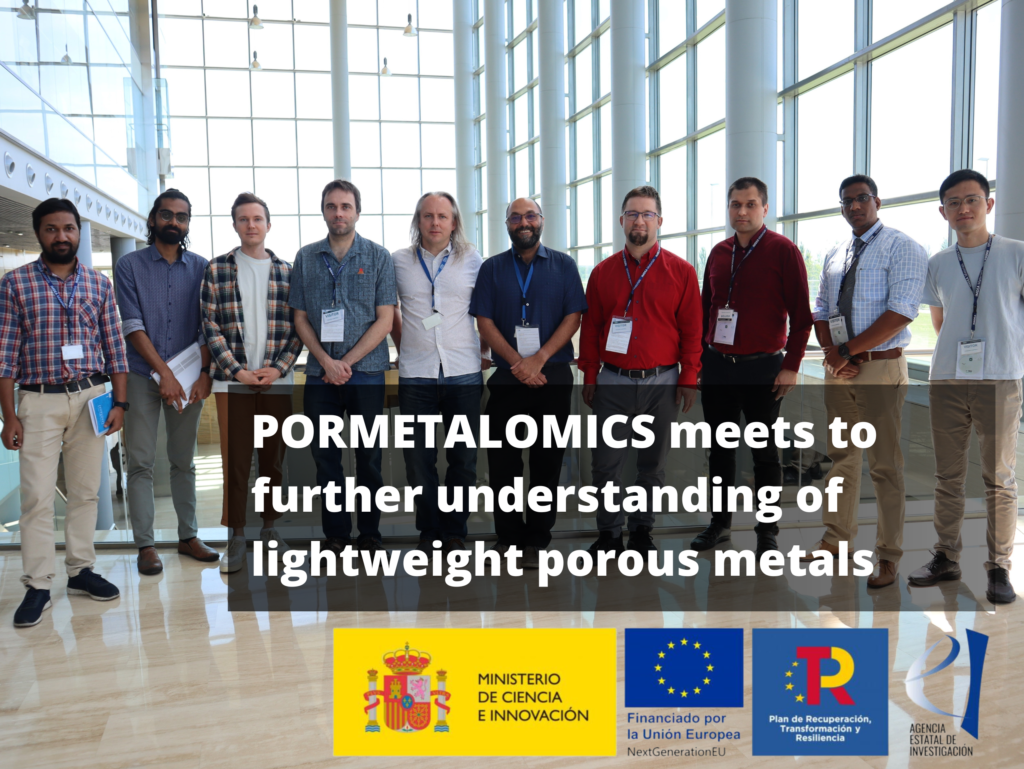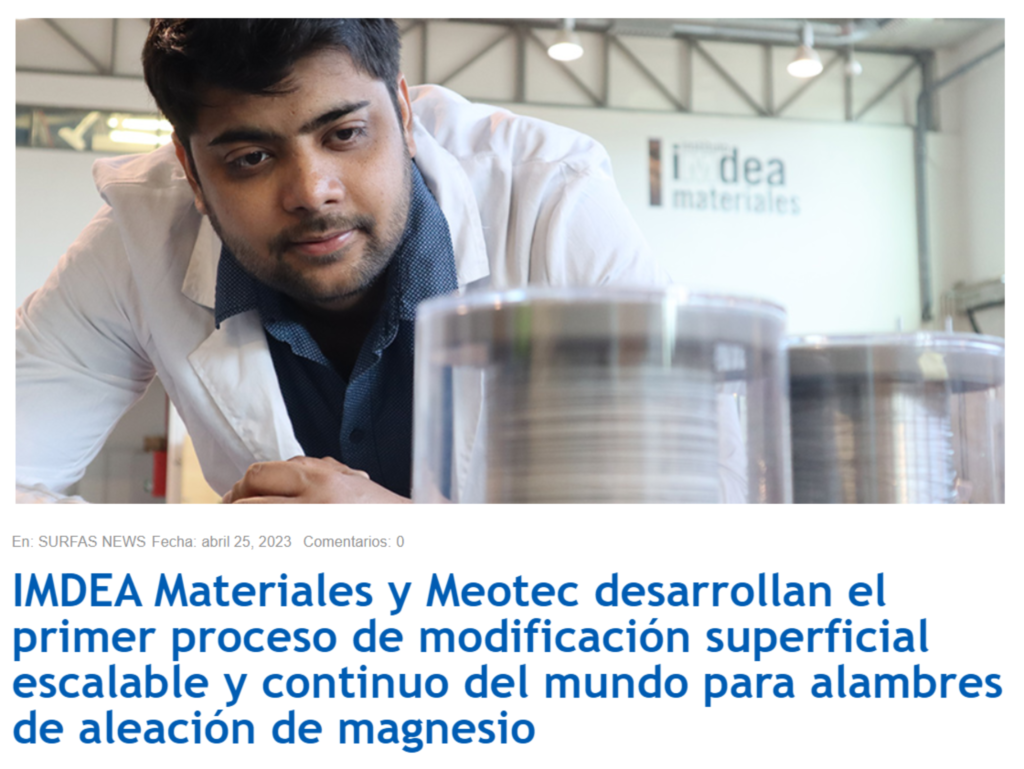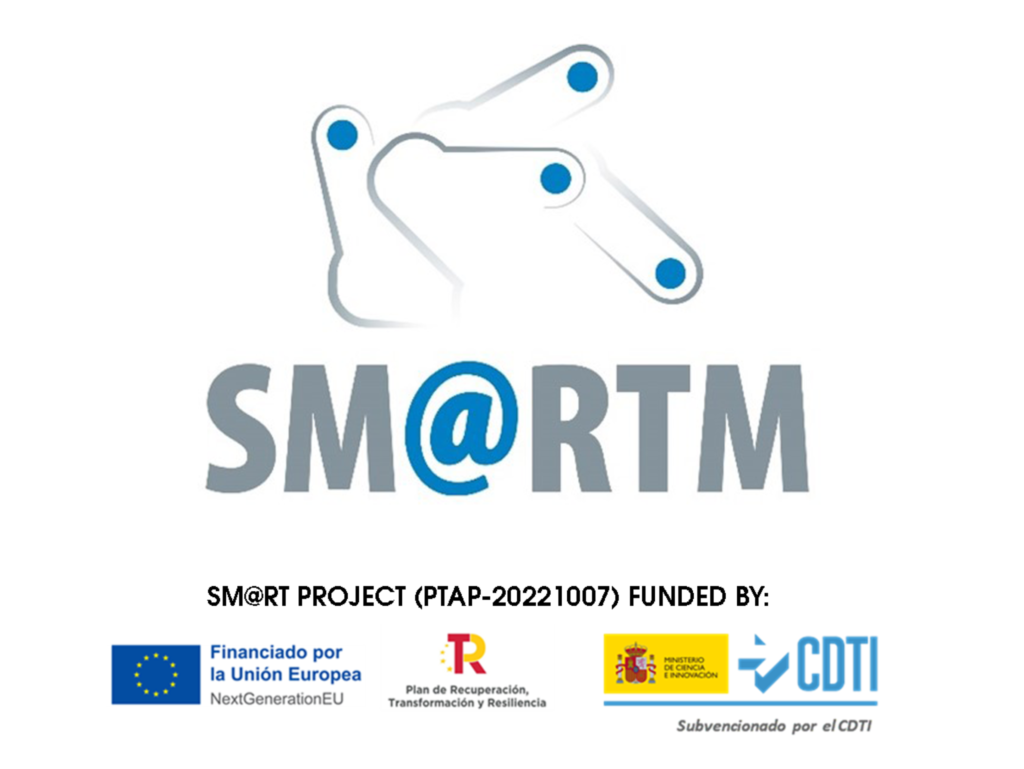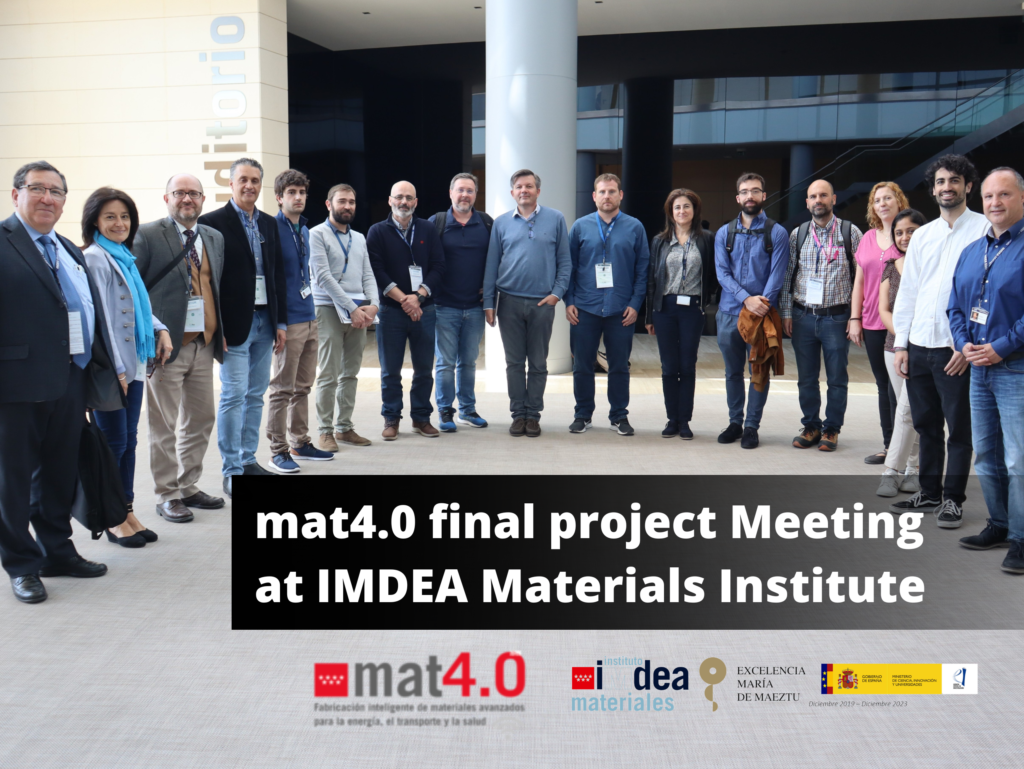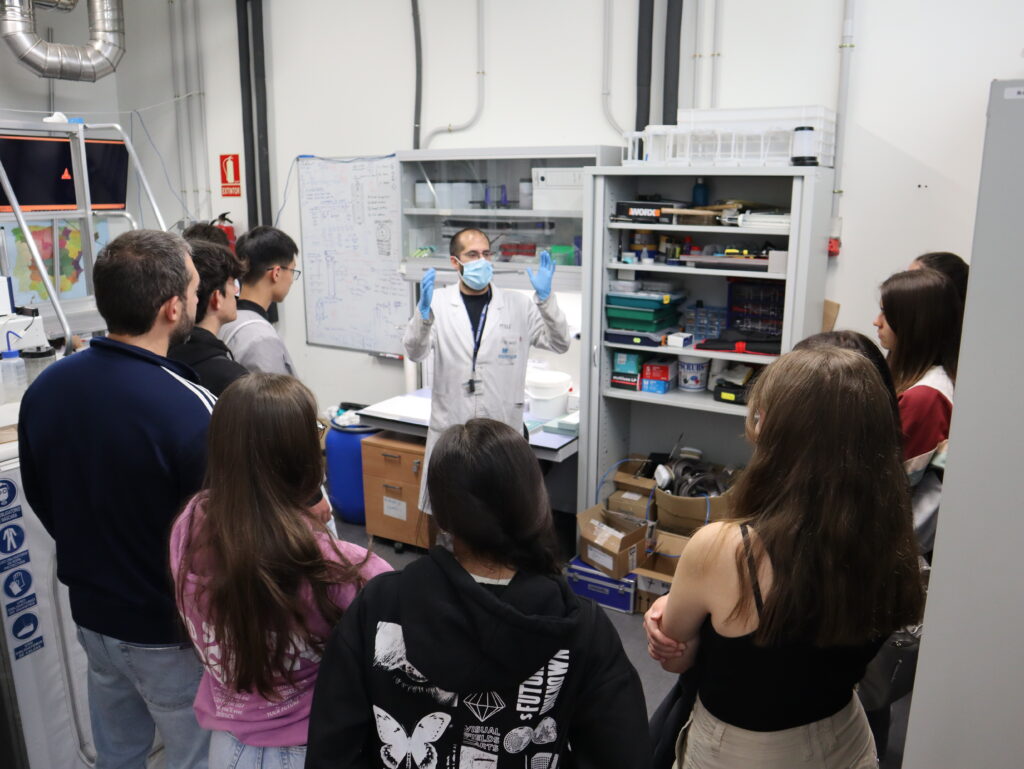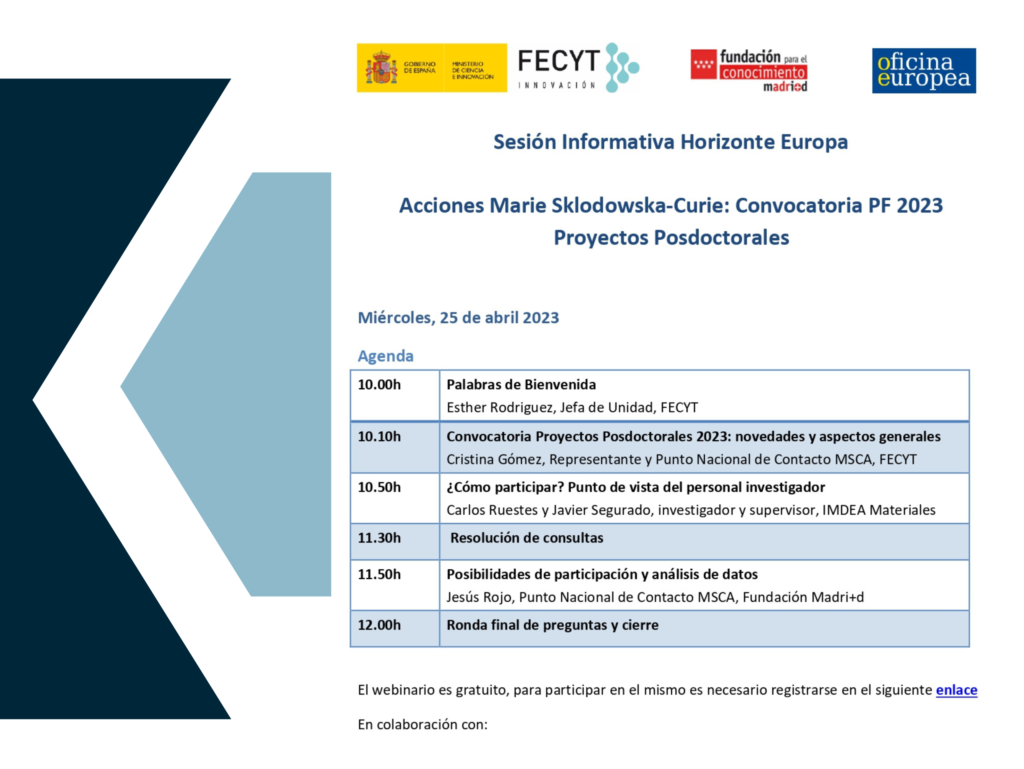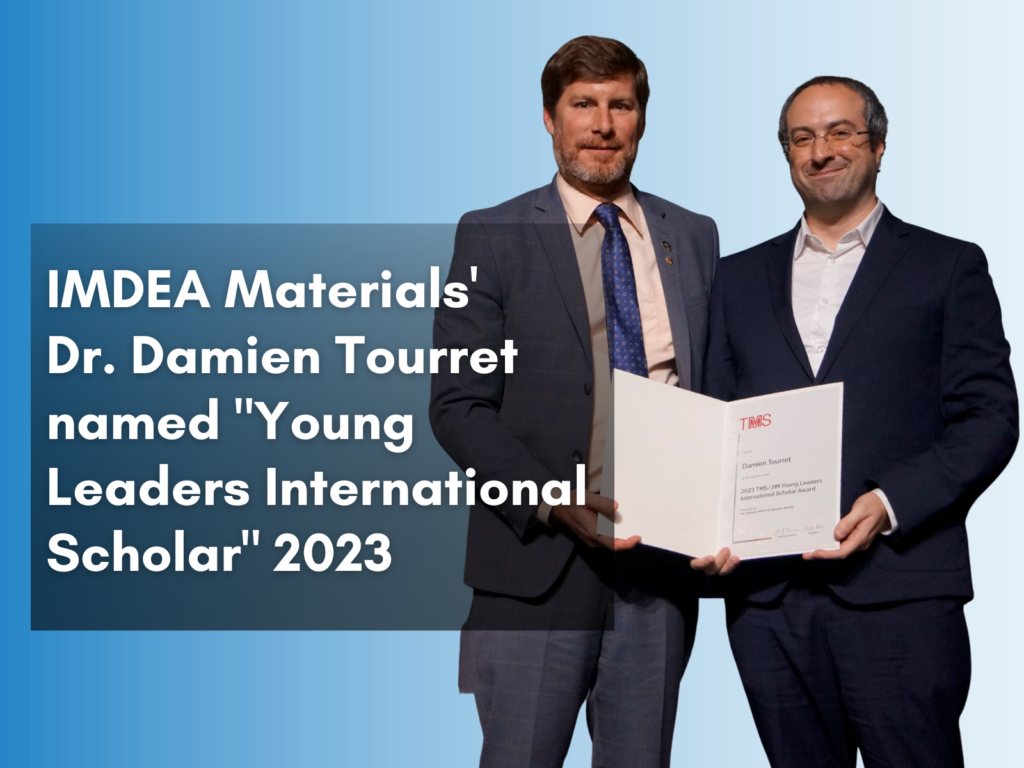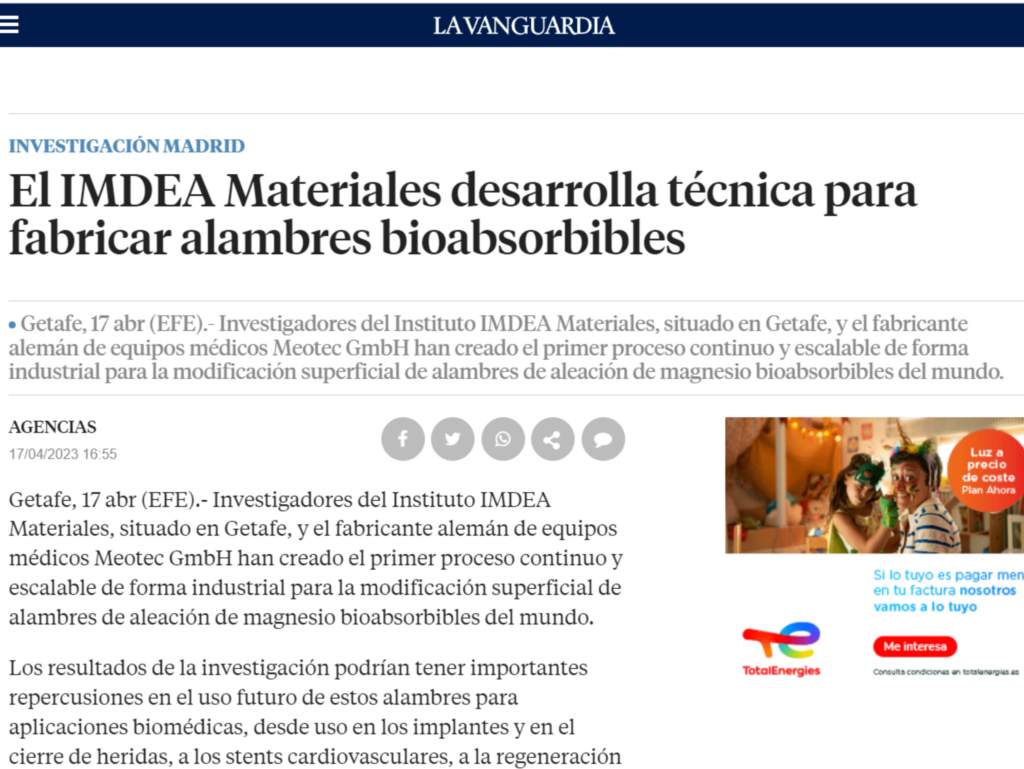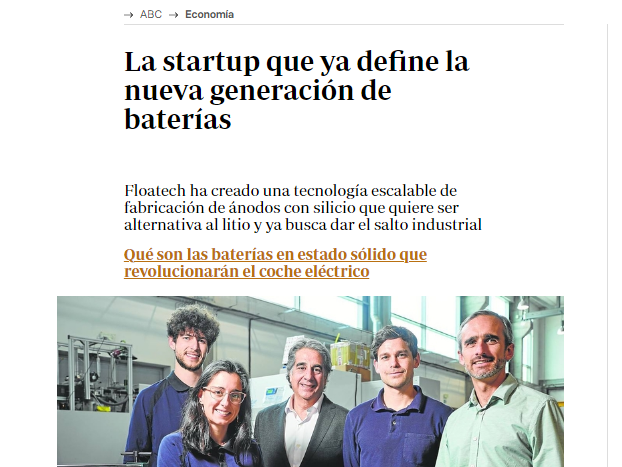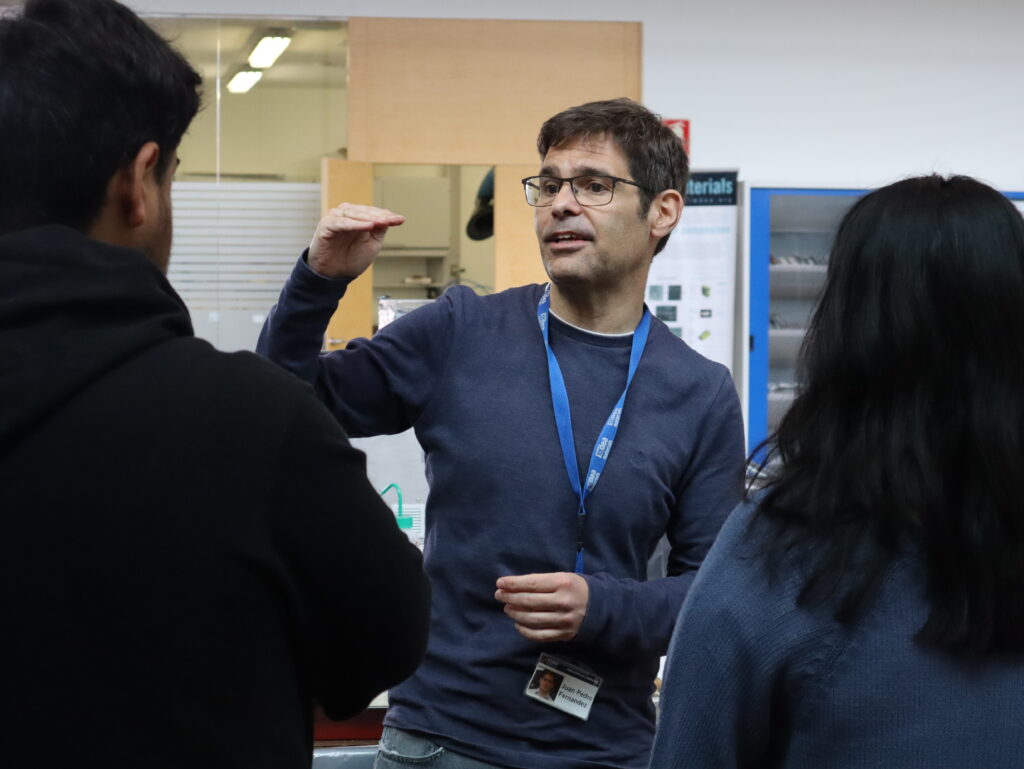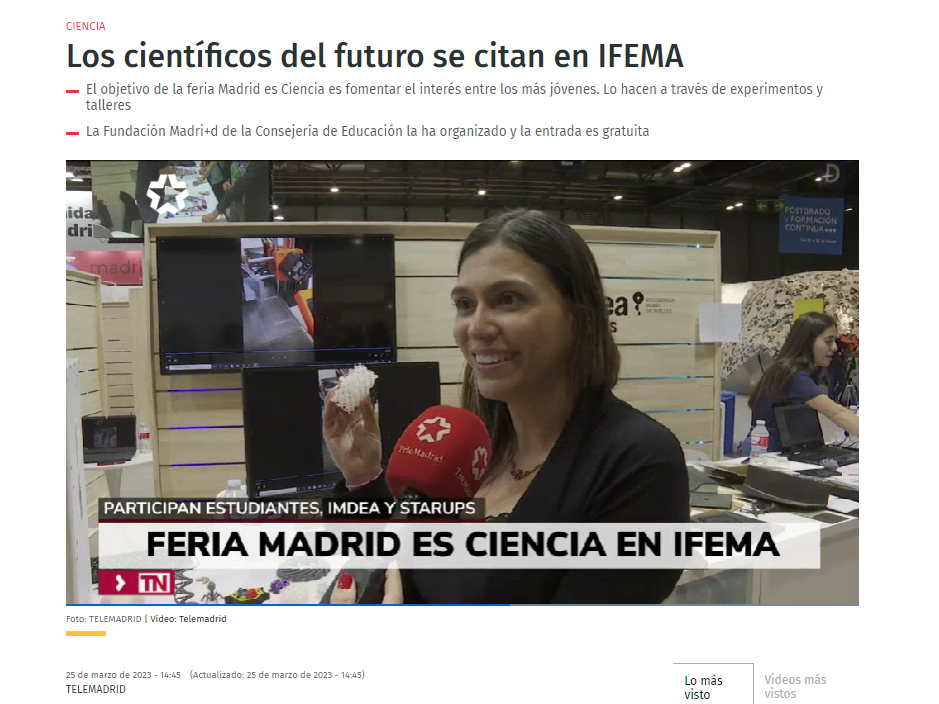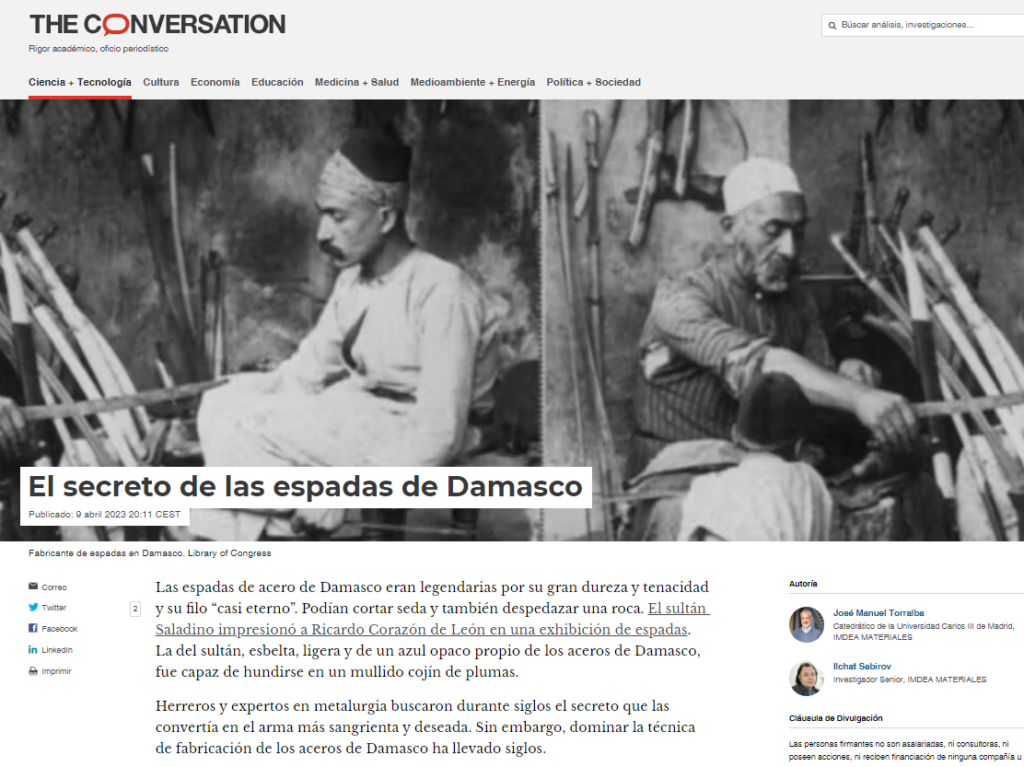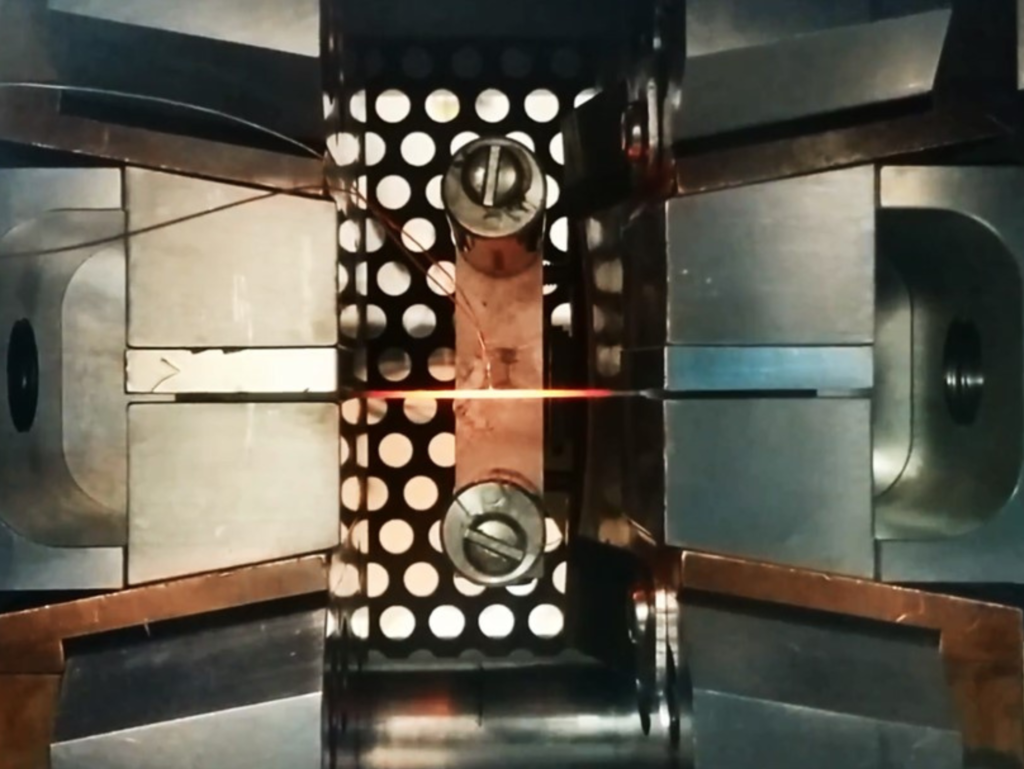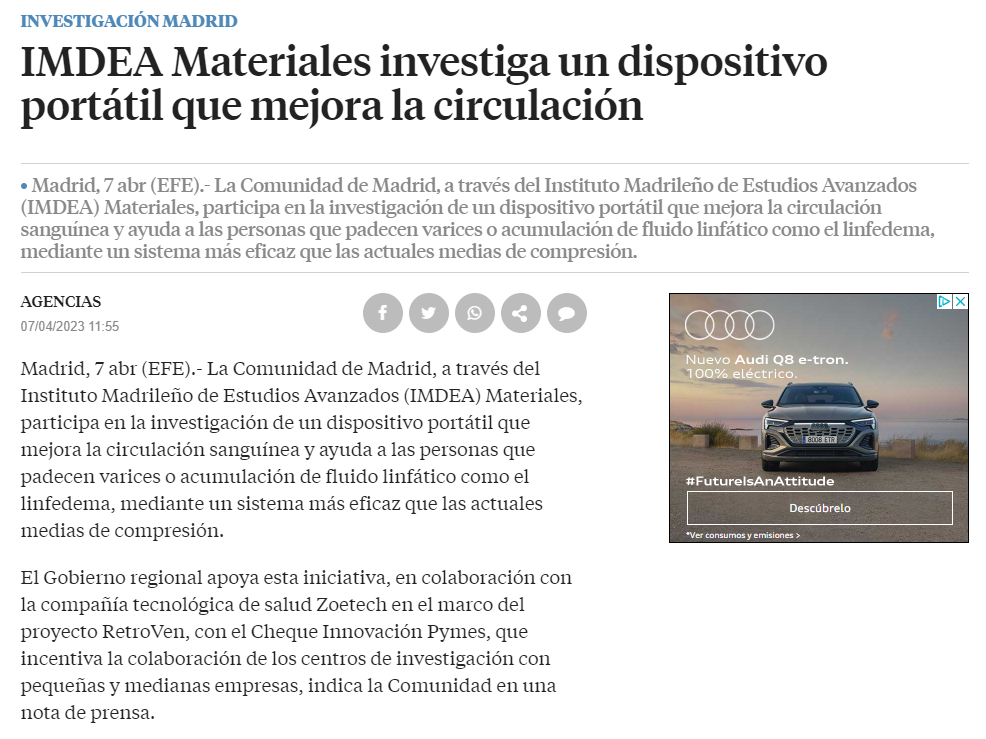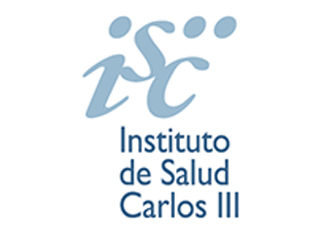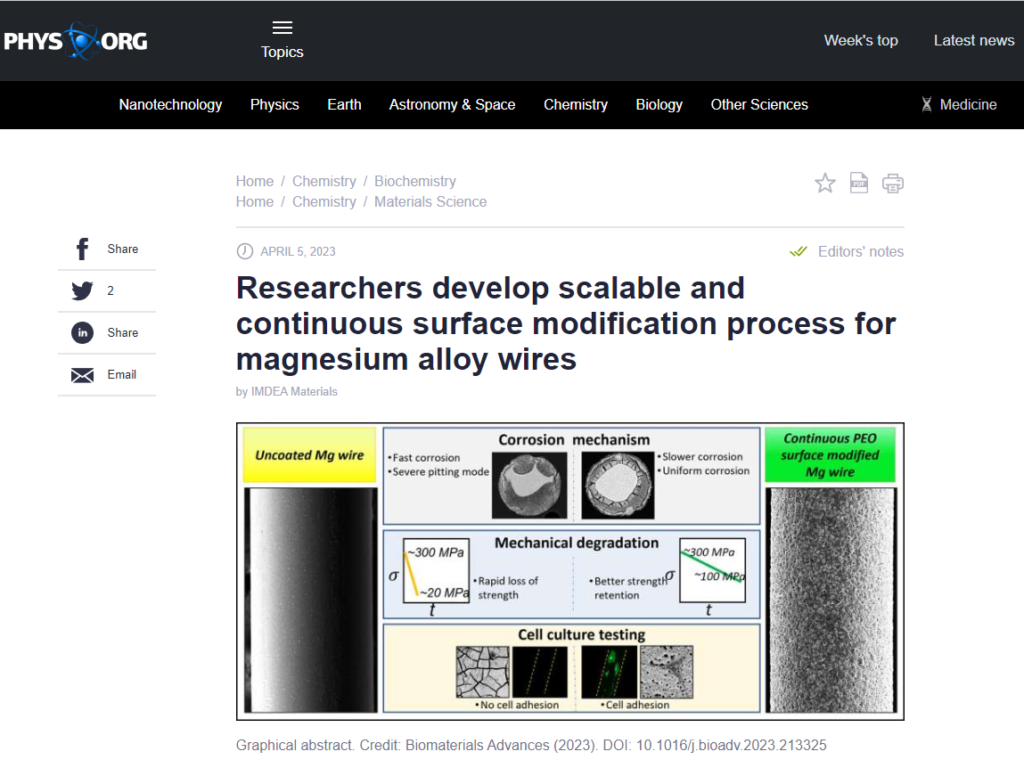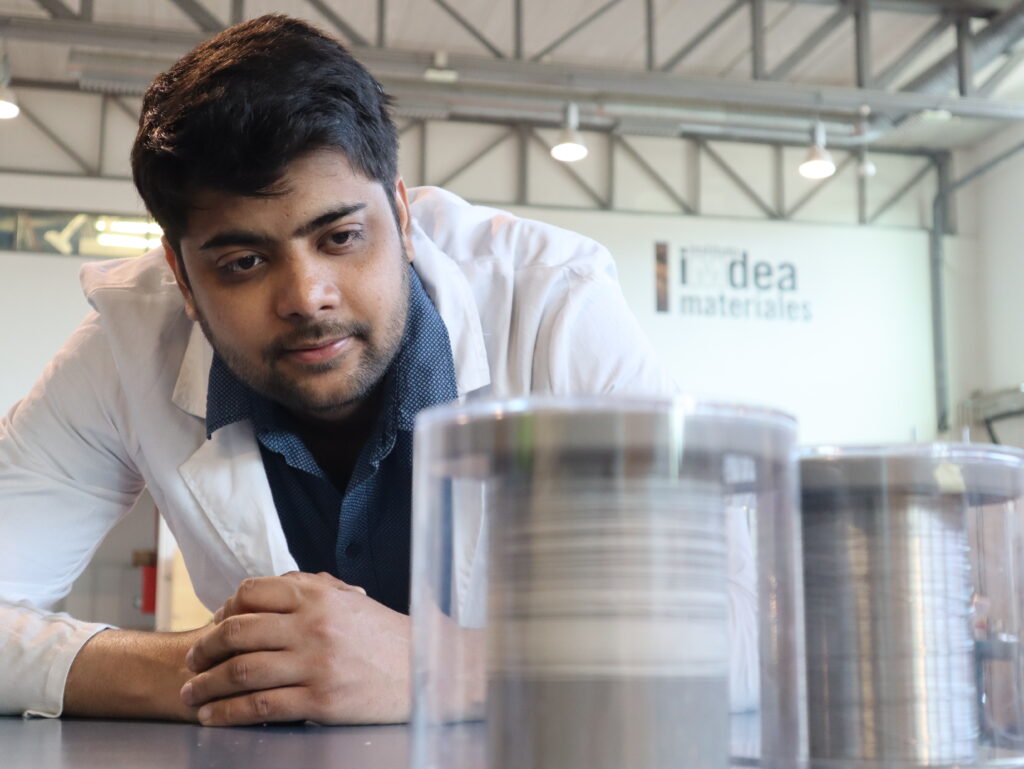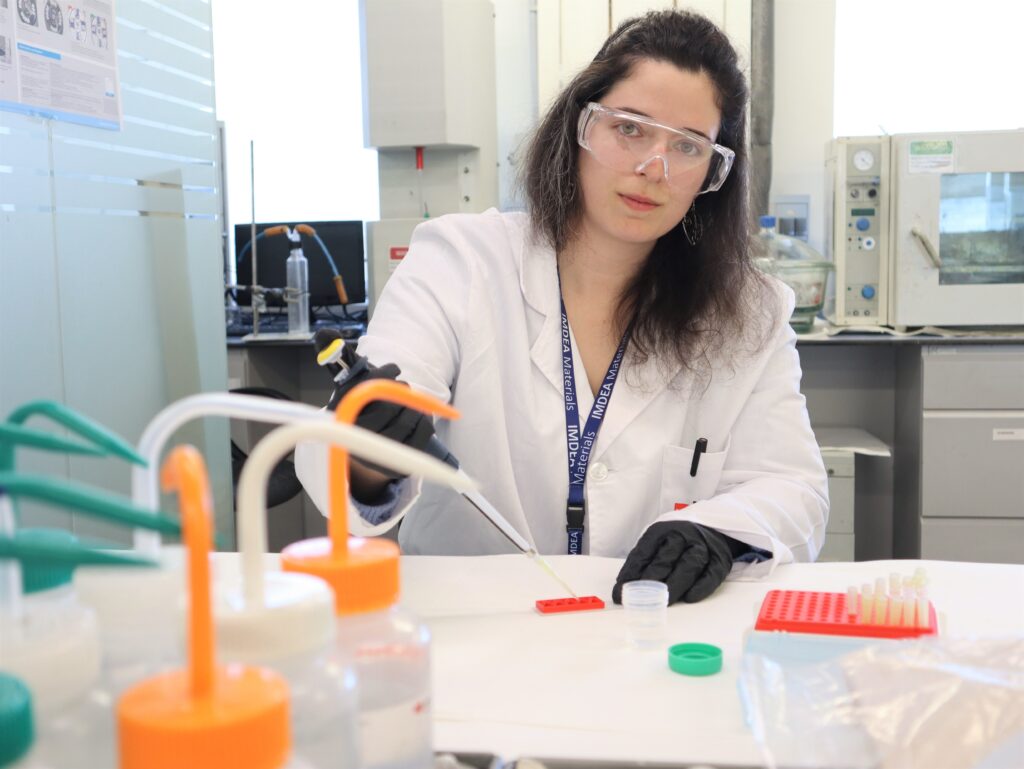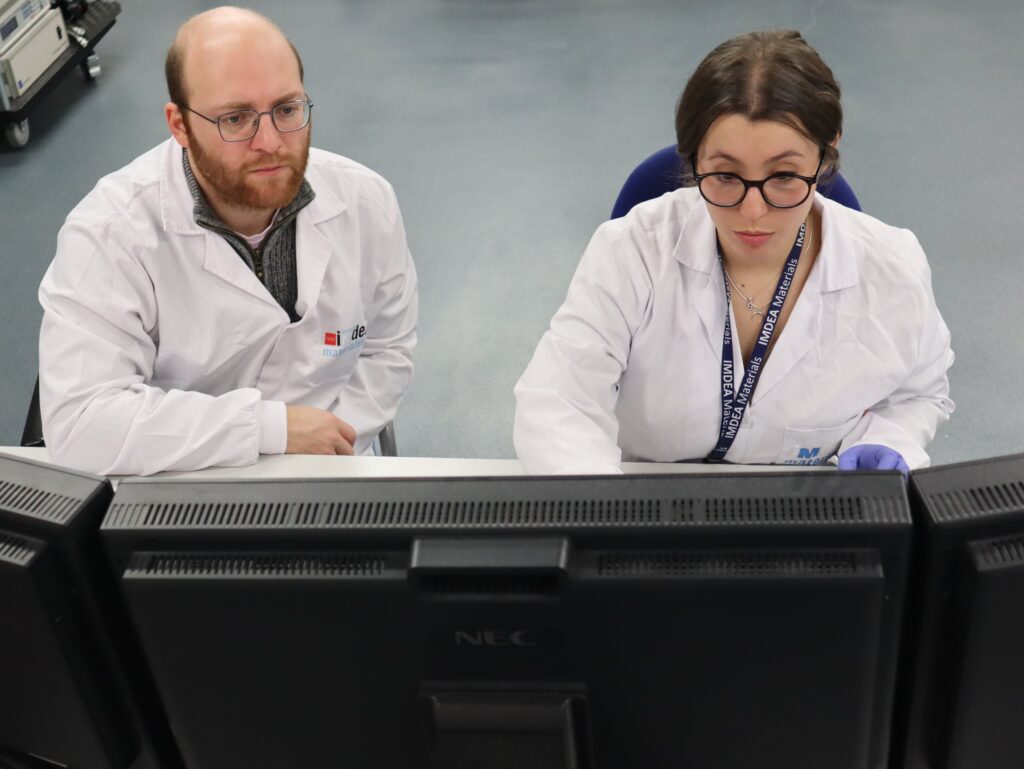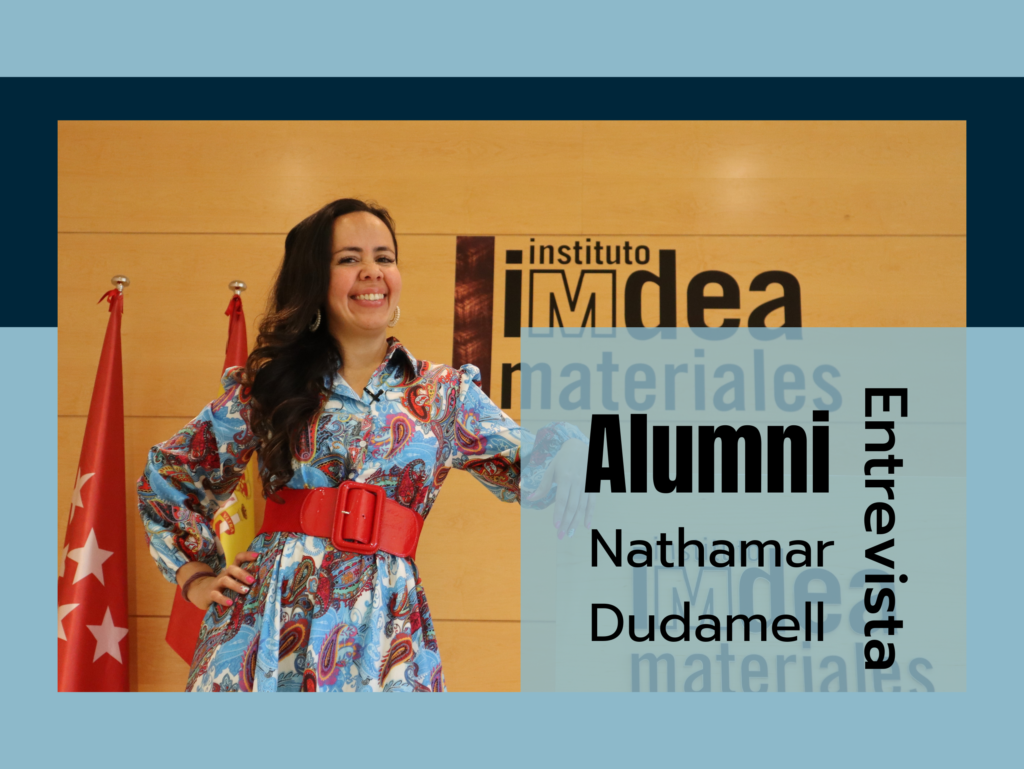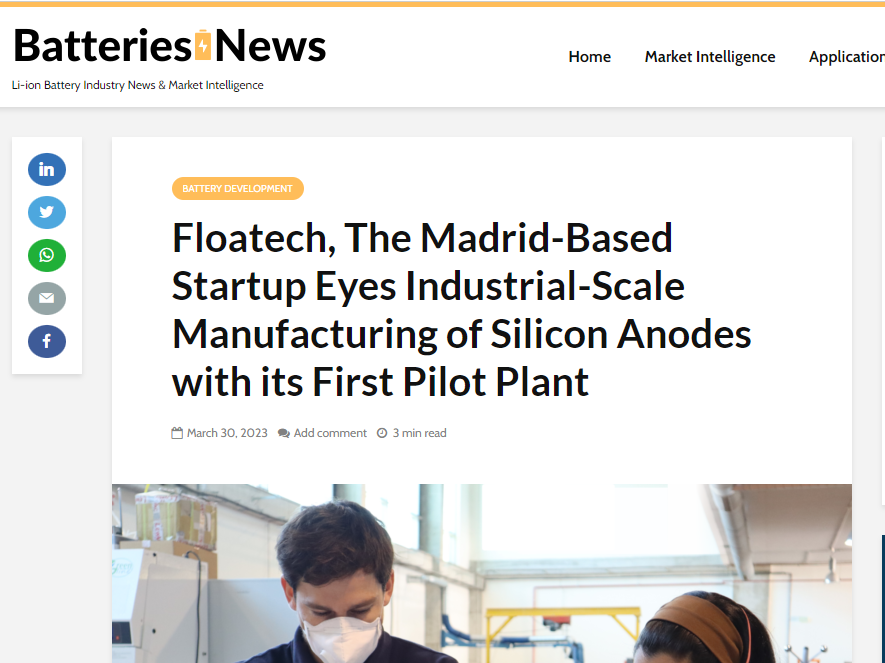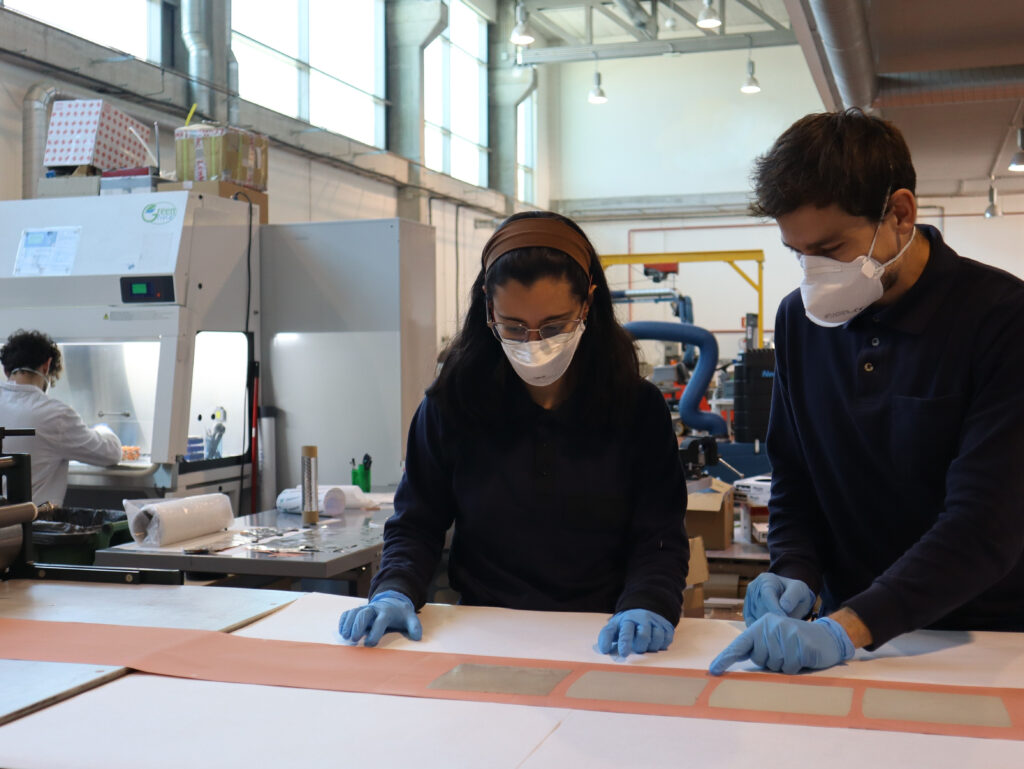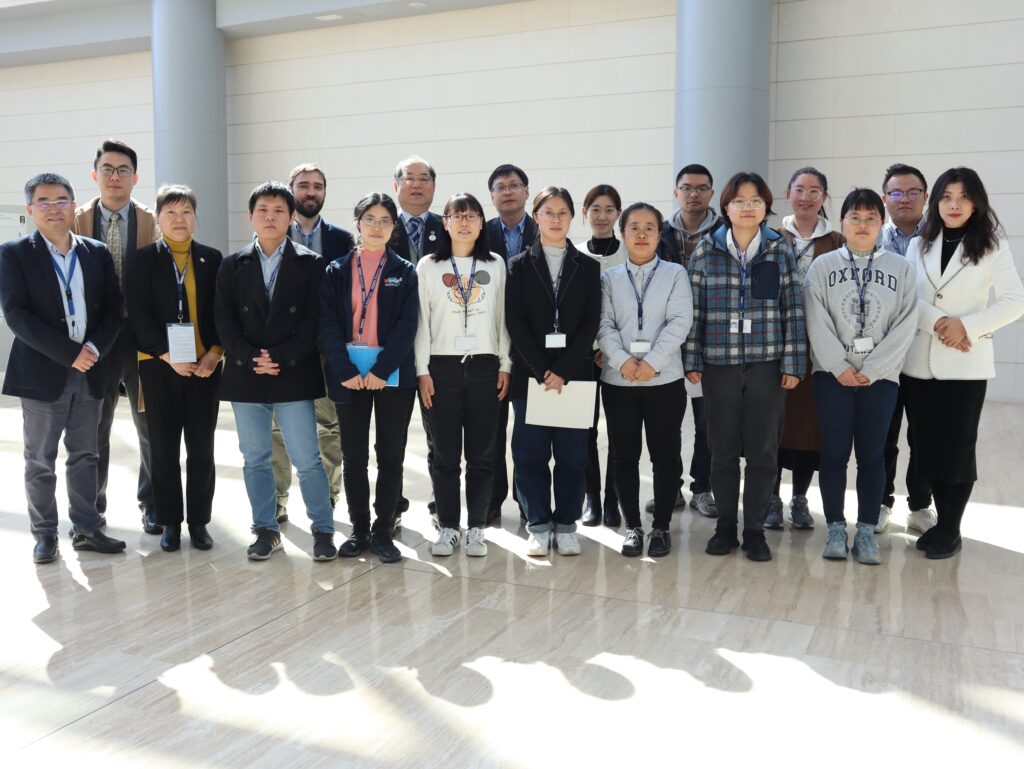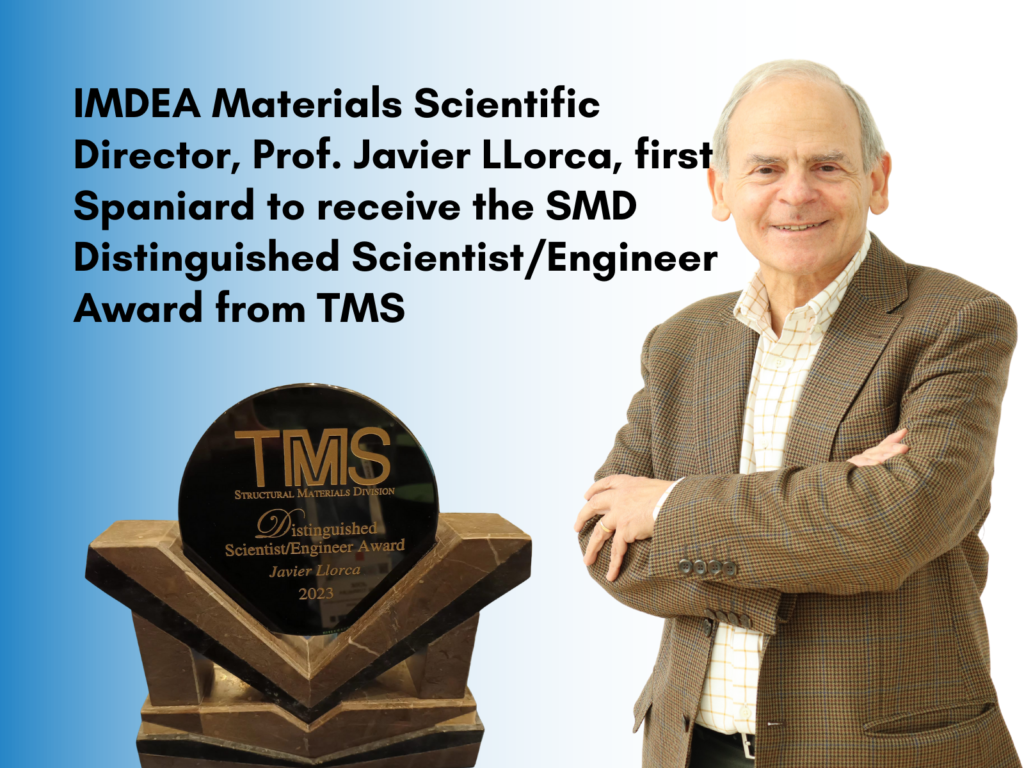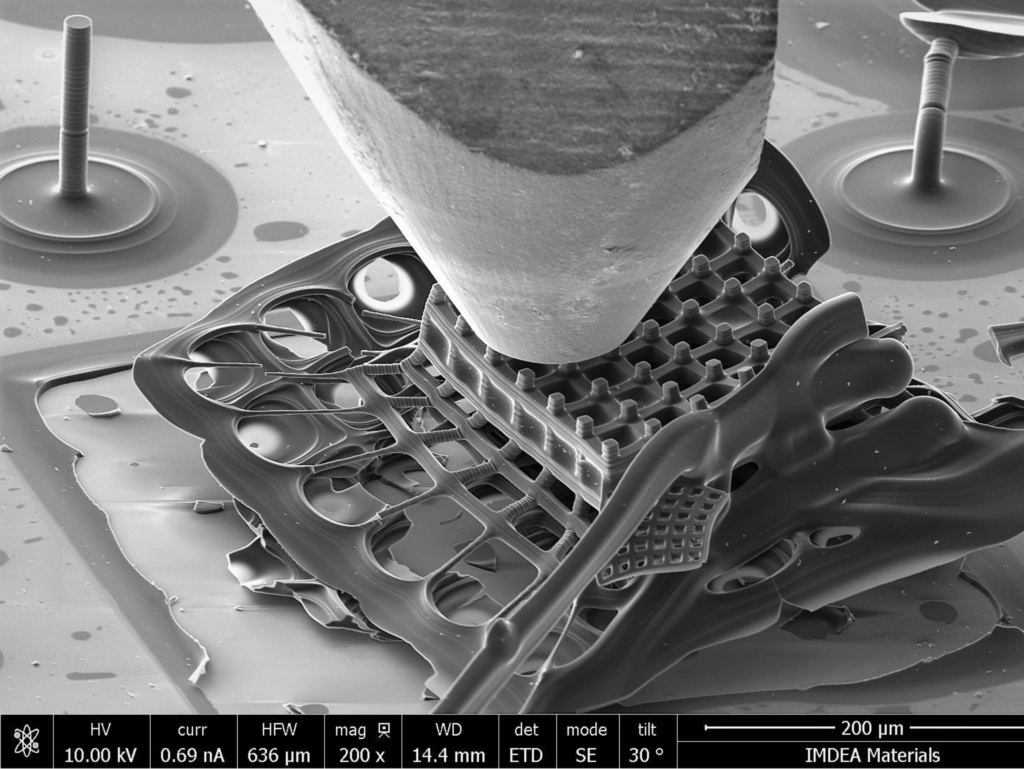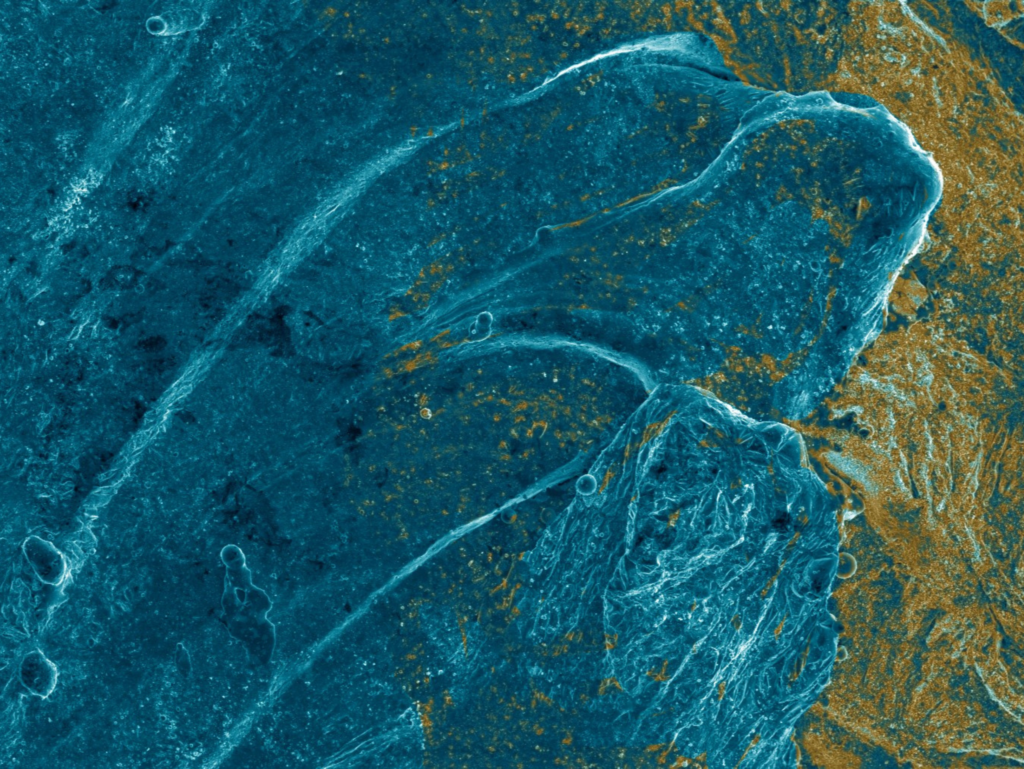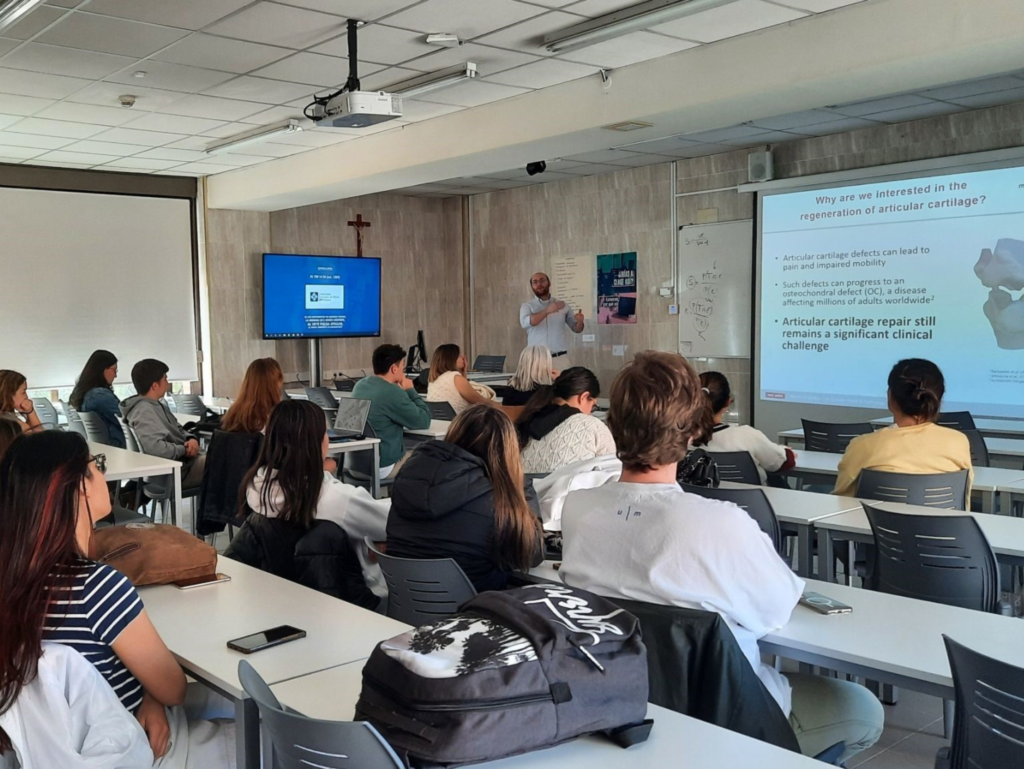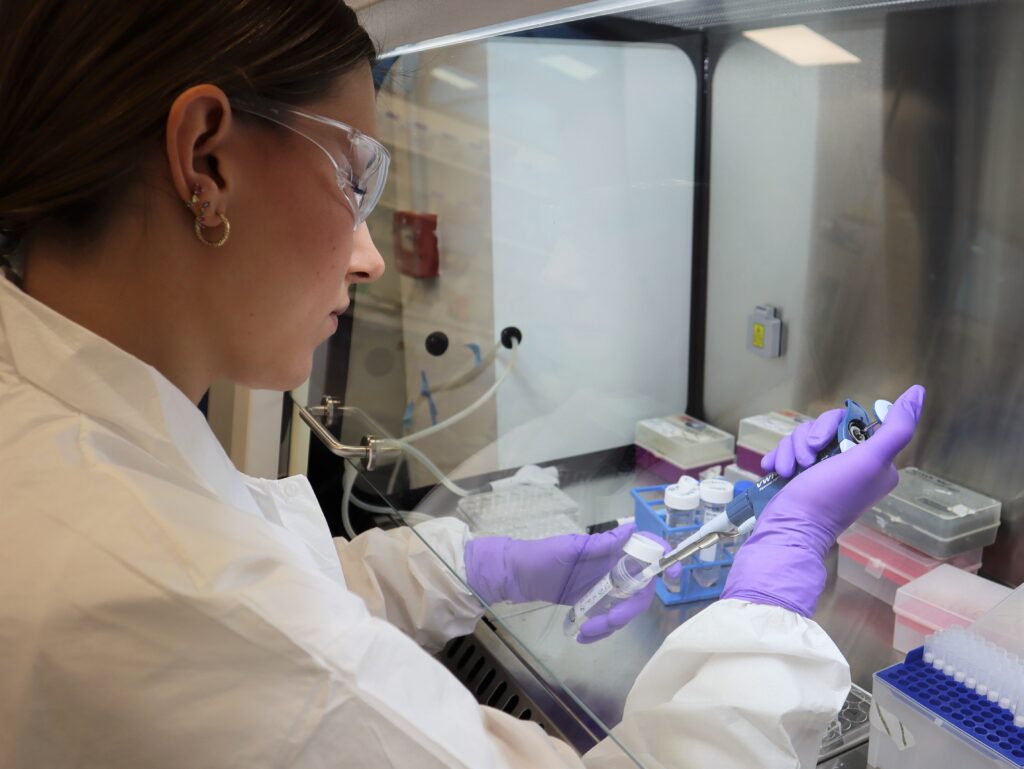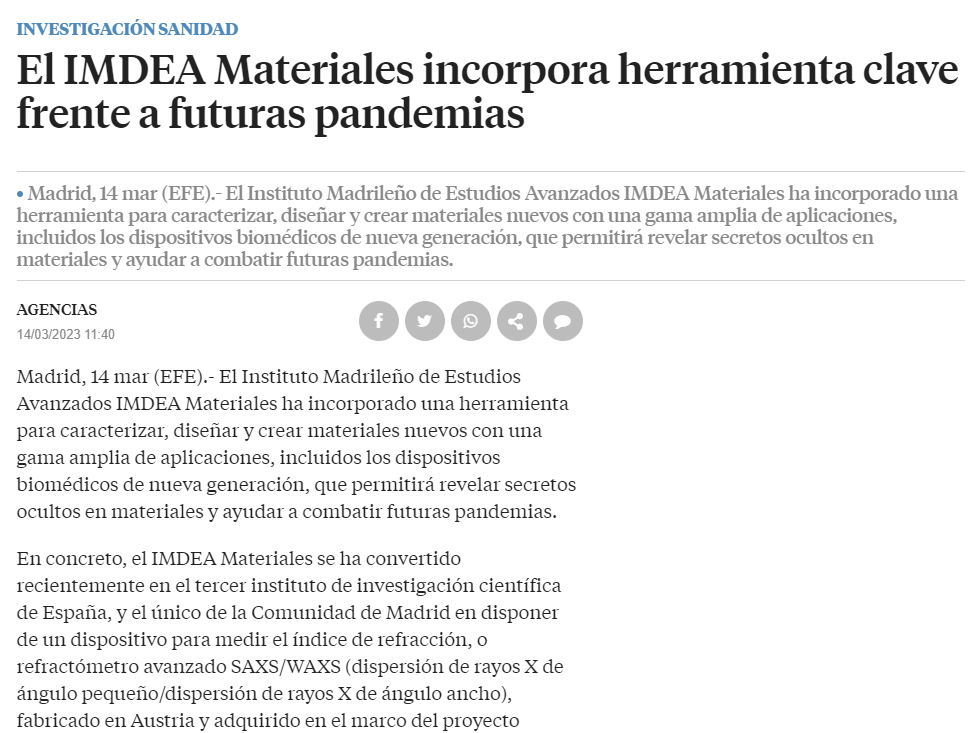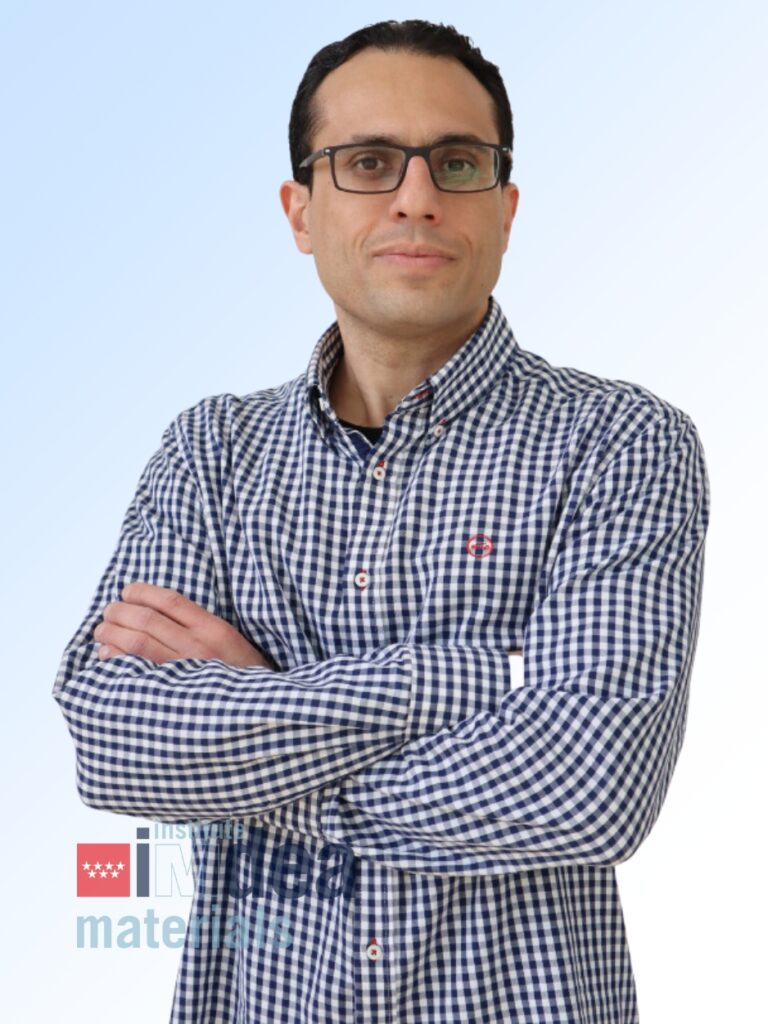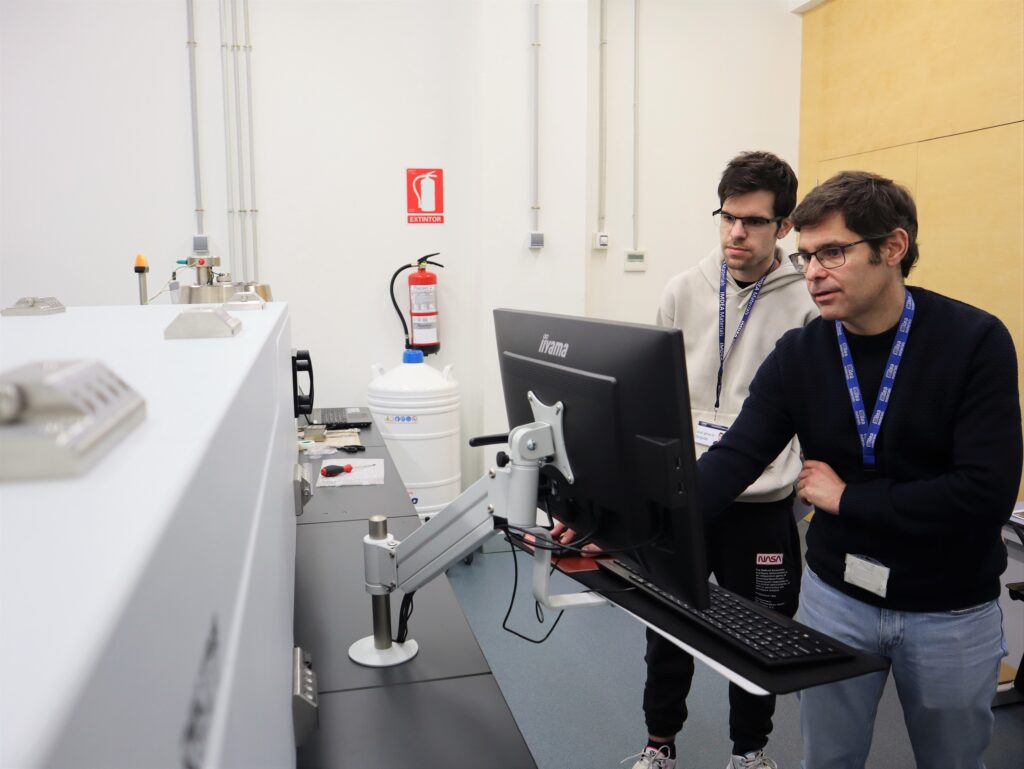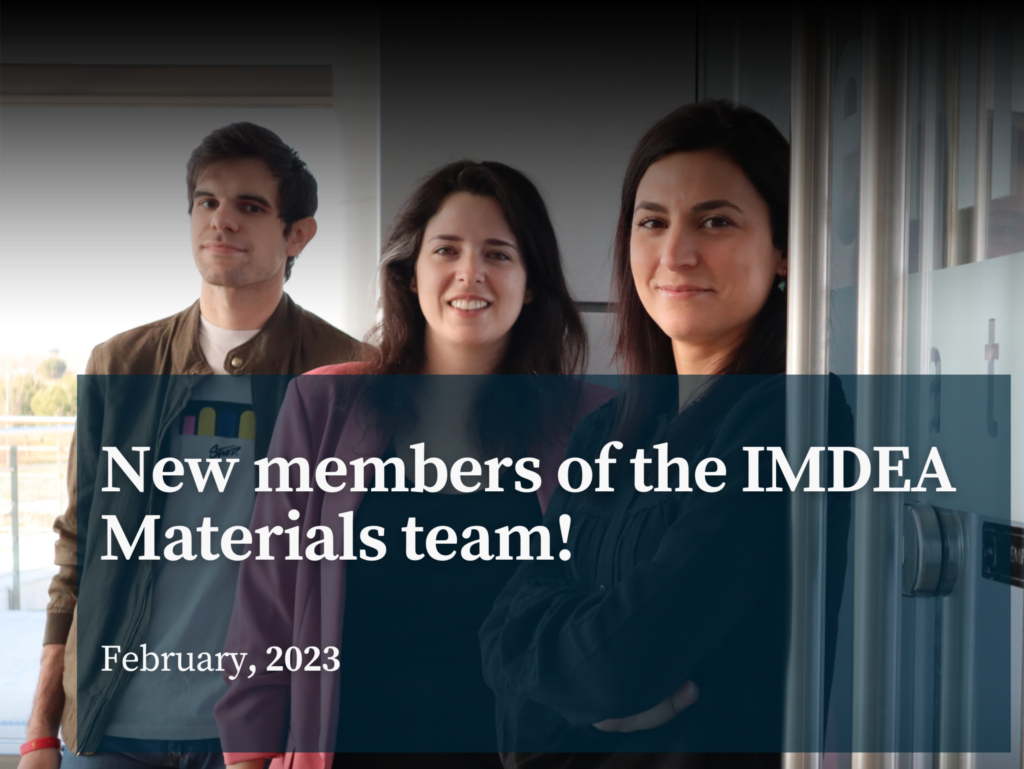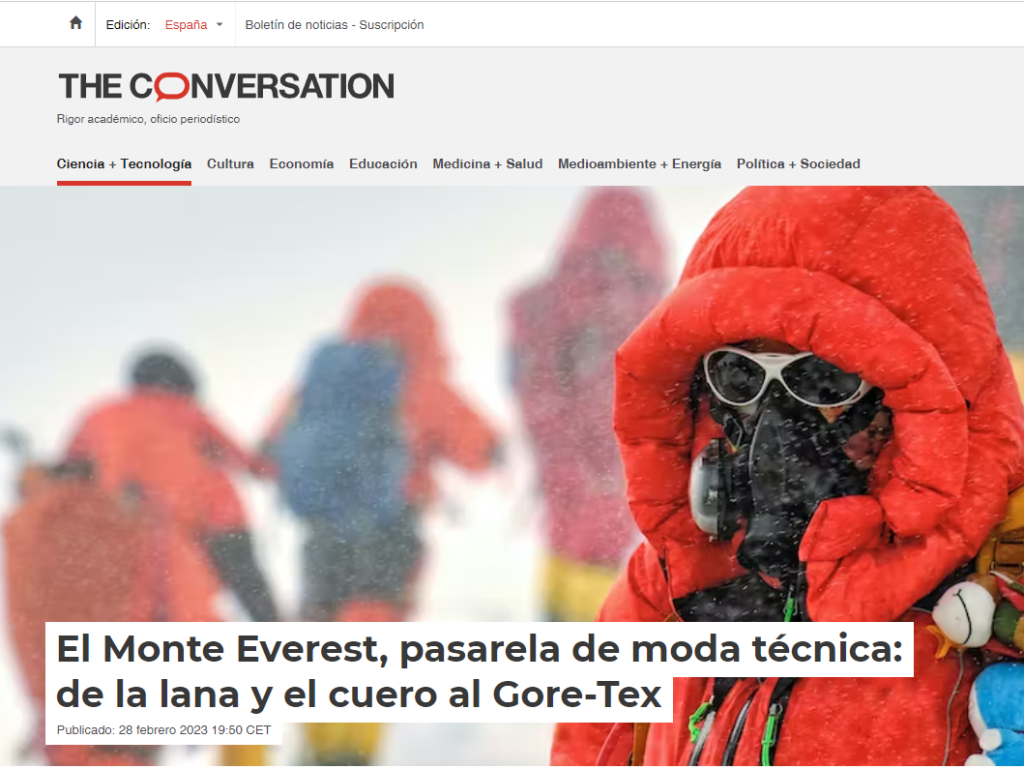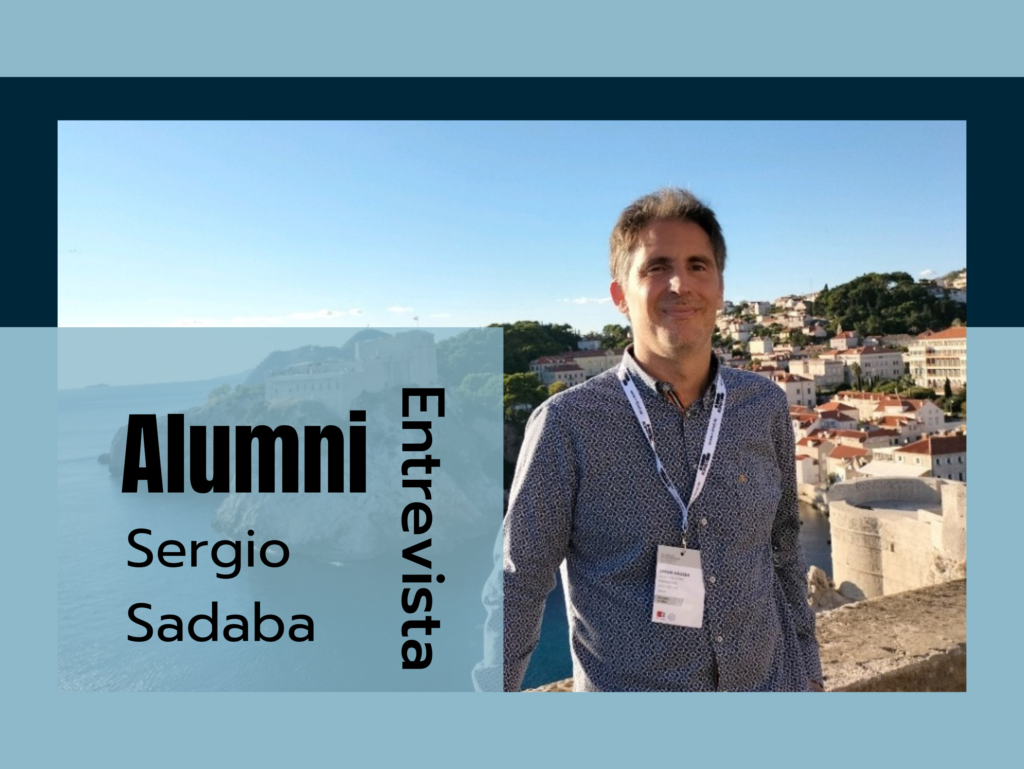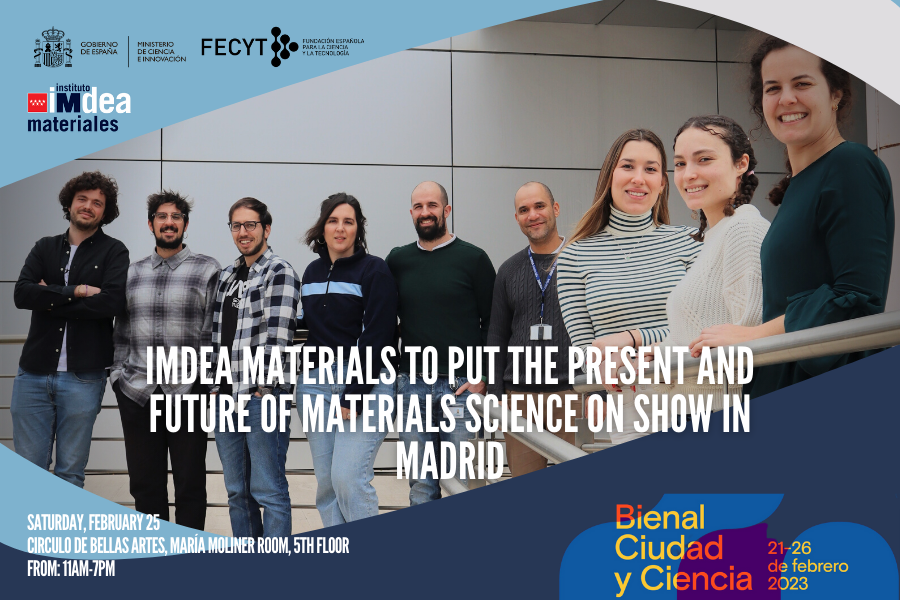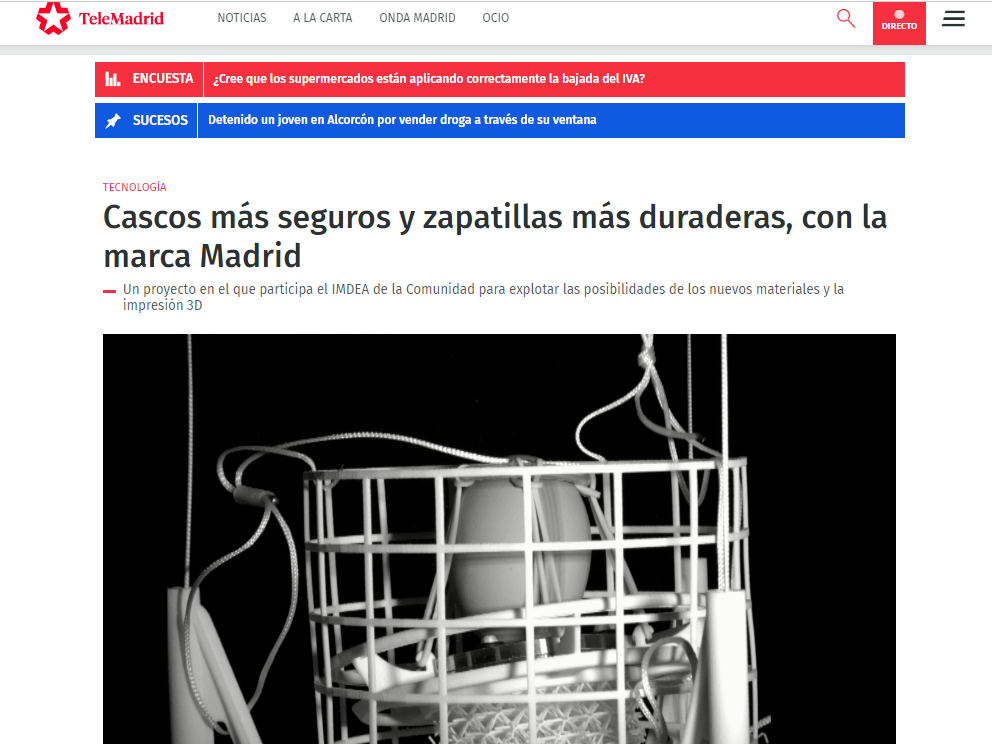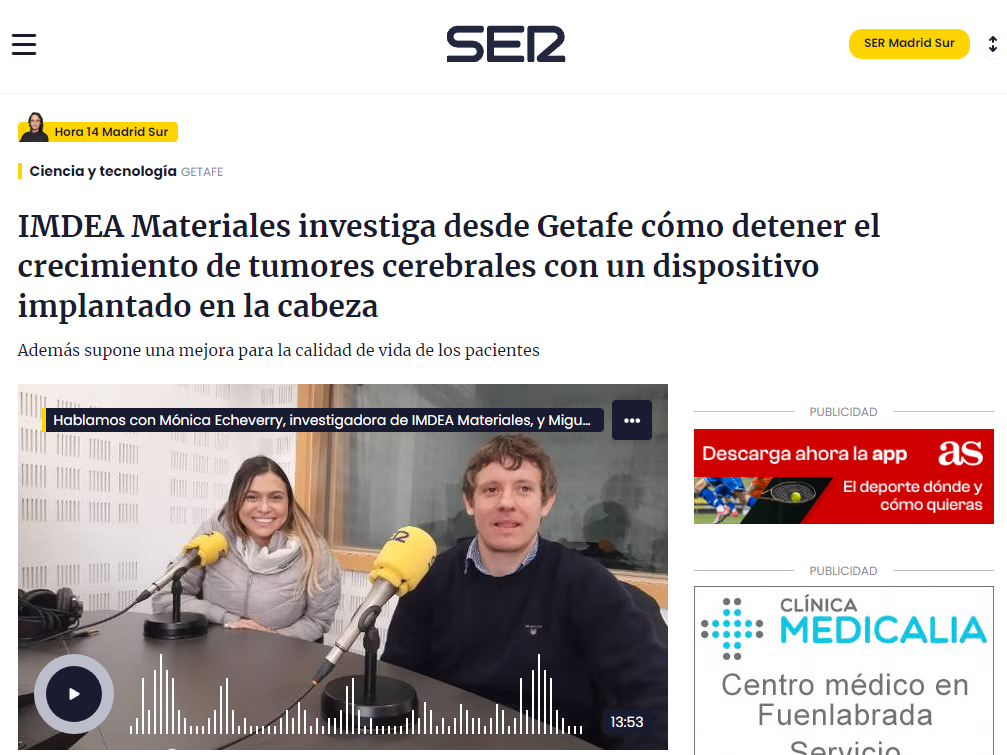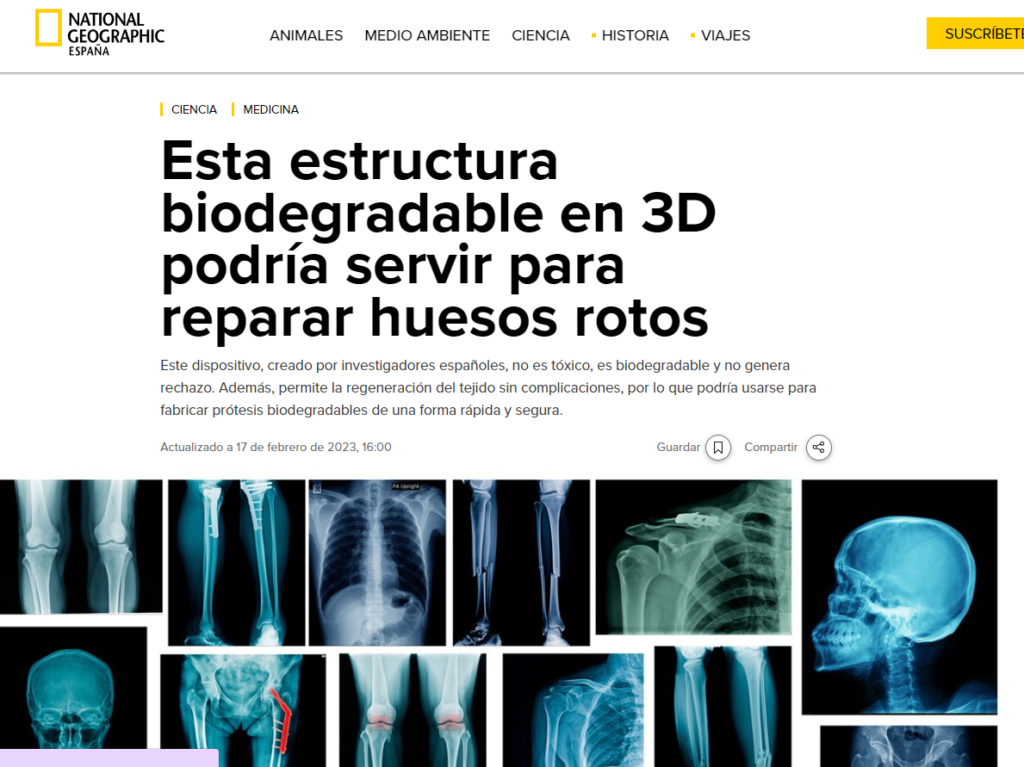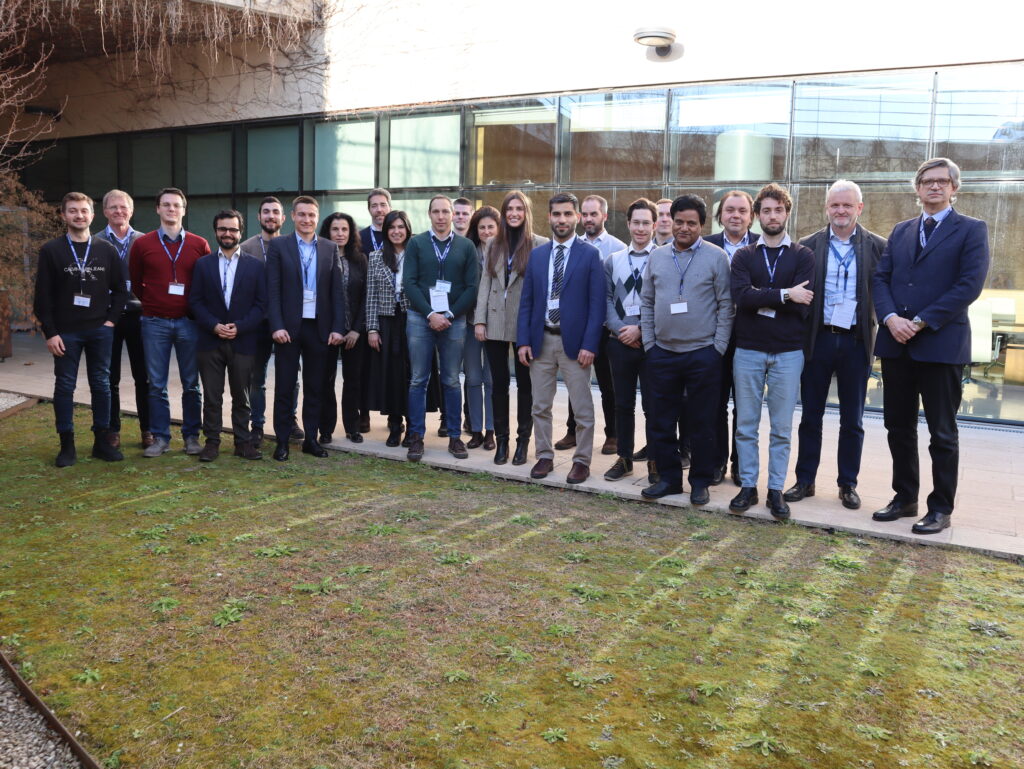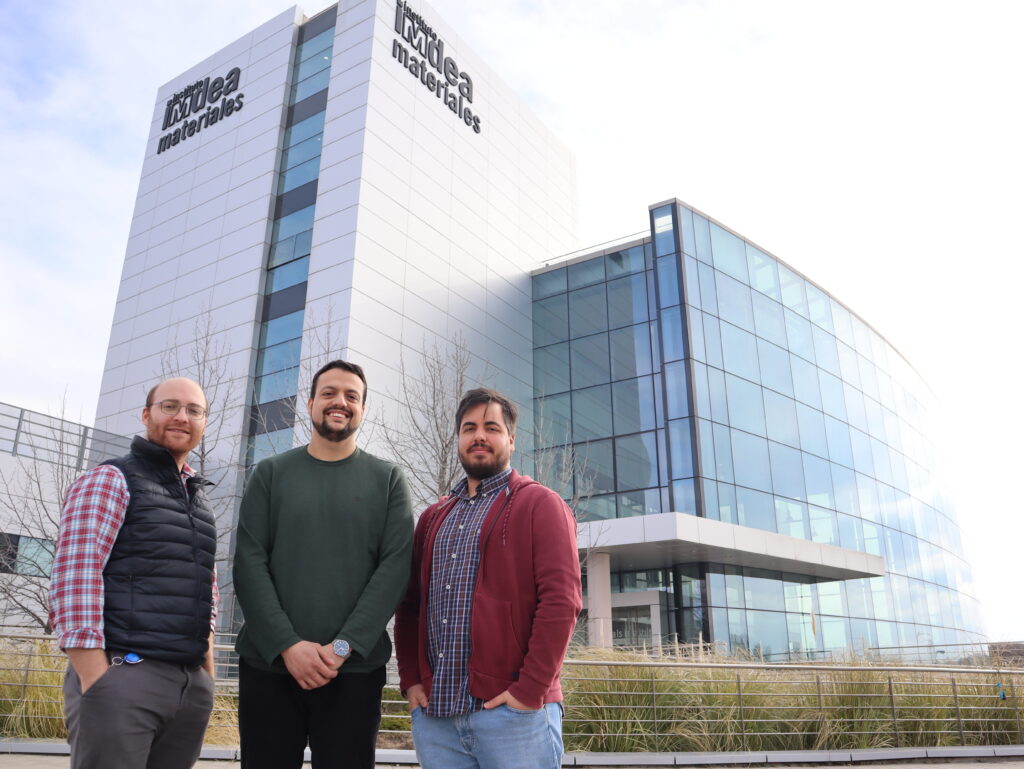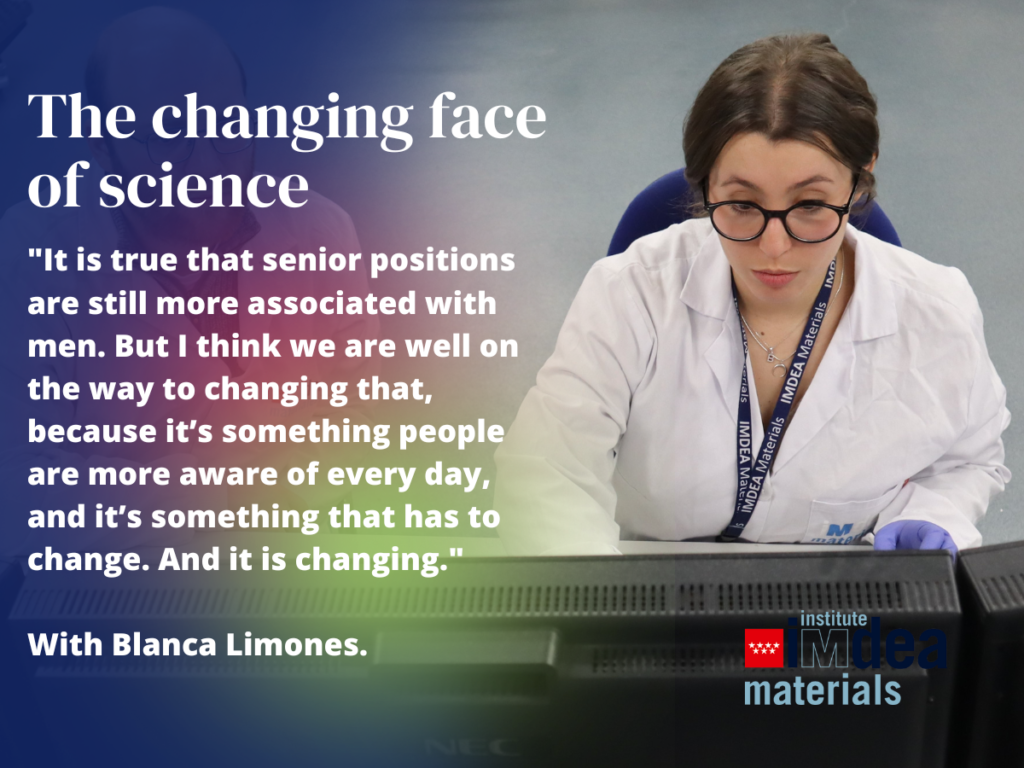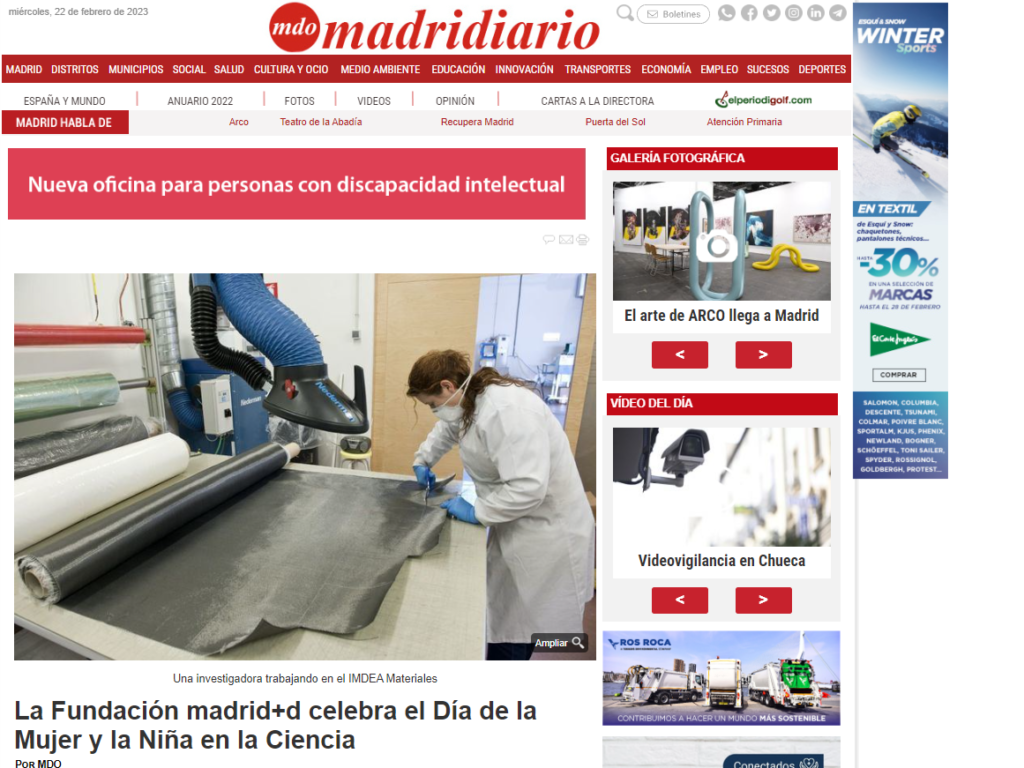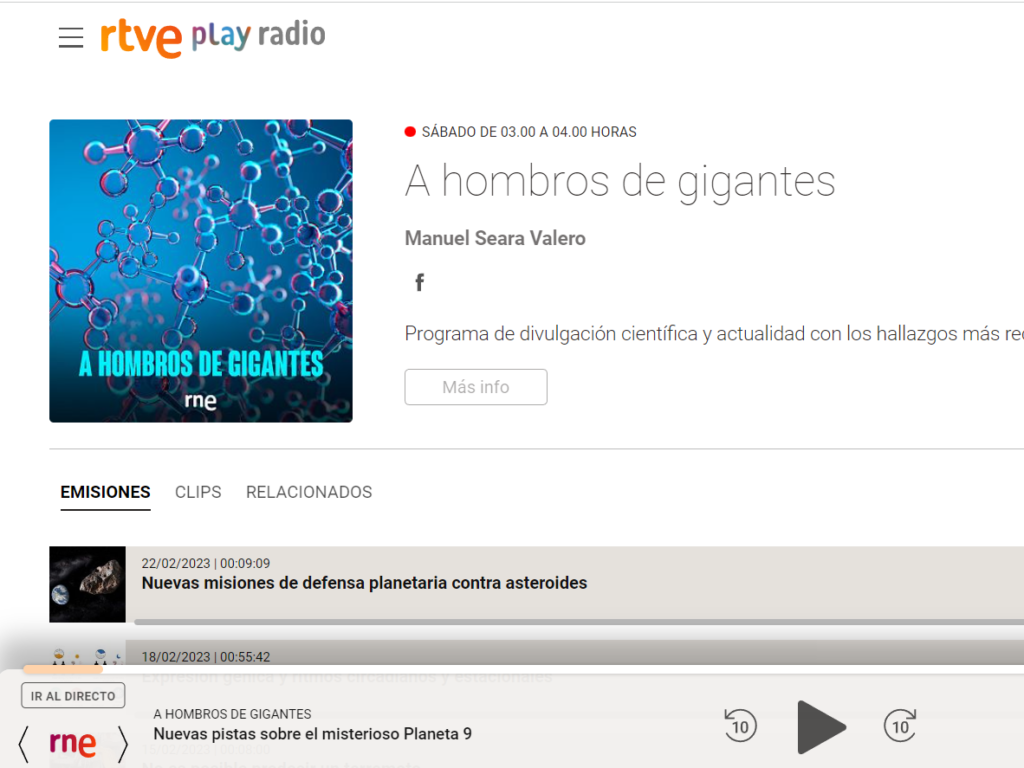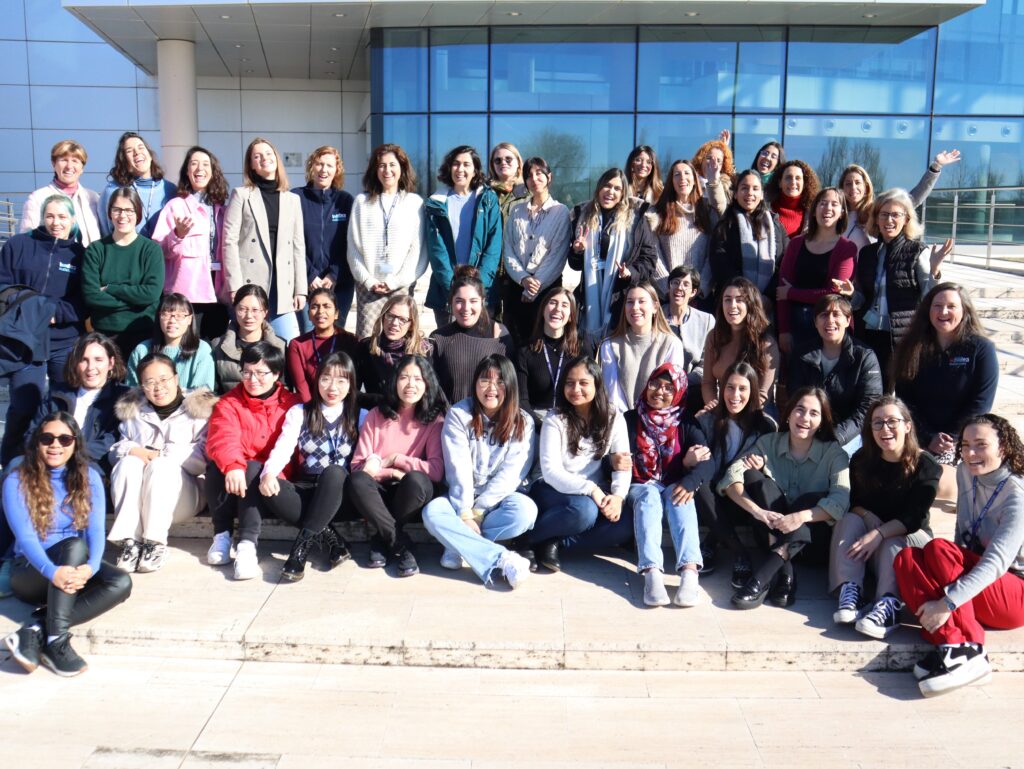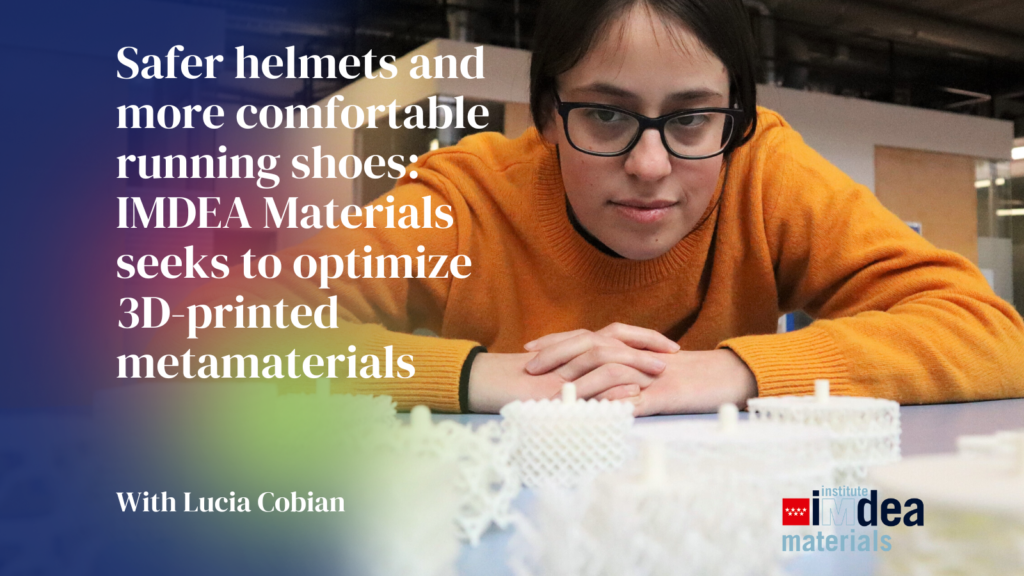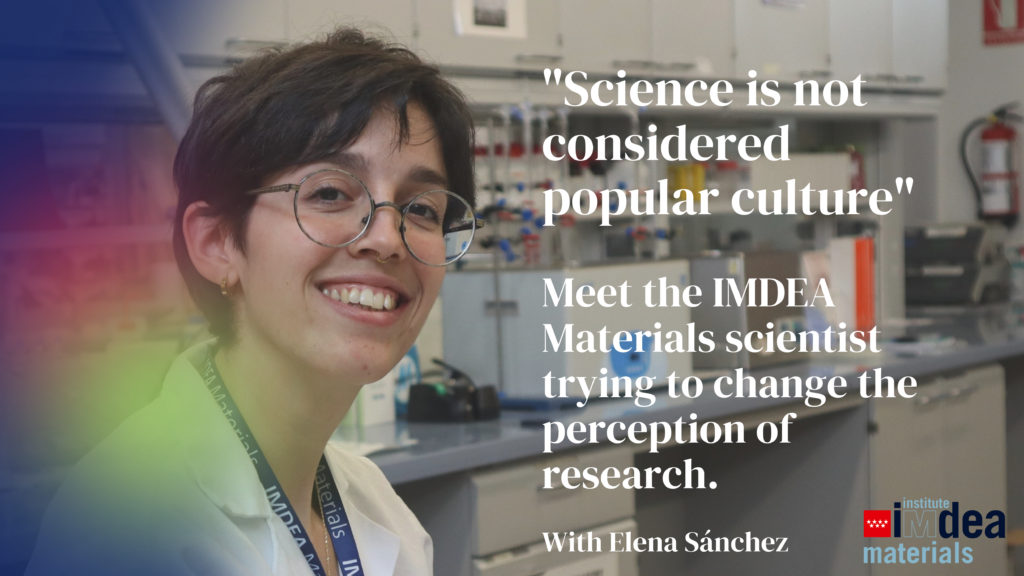BIOMET4D Publications
Publication 1: C. Quinn, K. Van Gaalen, P. E. McHugh, A. Kopp, T. J. Vaughan, "An enhanced phenomenological model to predict surface-based localised corrosion of magnesium alloys for medical use", Journal of the Mechanical Behavior of Biomedical Materials (138), 105637, February 2023. Open access
Effect of Ti additions on microstructure and mechanical properties of Cu-Cr-Zr alloy
BIOMET4D Dissemination Activities
Here you can find a review of the principal events and dissemination activities related to the BIOMET4D project. BIOMET4D researchers showcase project at WAB2024 Several BIOMET4D researchers have taken part in the Workshop on Additive Biofabrication (WAB2024) as Invited Speakers. Those who
IMDEA Materials Institute adds powerful new tool to assist in the mechanical characterisation of metallic materials
IMDEA Materials Institute will have on-site access to one of the world’s most advanced mechanical testing devices after Principal Investigator Dr. Ilchat Sabirov was announced as the winner of Plastometrex’s 2023 Research Competition. Dr. Sabirov was chosen from among 8 finalists for the award
New members of the IMDEA Materials Institute team – July, 2023
Every month, we welcome new members of the IMDEA Materials team. Here, you can find a short profile of our most recent additions, including their upcoming role with IMDEA Materials and their educational and professional background. My name is Sergio Peña Camacho and I am from Madrid. I
IMDEA Materials’ Scientific Director, Prof. Javier LLorca, appointed Honorary Professor at Yanshan University
IMDEA Materials Institute's Scientific Director, Prof. Javier LLorca, has been appointed as an Honorary Professor at China's Yanshan University (YSU). The appointment is a first step in strengthening the collaboration between IMDEA Materials and YSU, one of the top-ranked Chinese universities in
BIOMET4D consortium explores cutting-edge additive manufacturing facilities at Meotec GmbH headquarters
The latest consortium meeting of the European Innovation Council (EIC)-funded BIOMET4D project to develop next-generation shape-morphing implants has been held at the headquarters of medical technology manufacturer Meotec GmbH. As a part of their visit of the facilities, consortium members were
IMDEA Materials joins the fight to improve health outcomes for heart attack sufferers
IMDEA Materials Institute is participating in a research project to develop a new method of bioengineering myocardial tissue for heart attack patients. CARDIOBOOST-CM aims to create a new cell therapy approach in which muscle stem cells taken from the jaw are transdifferentiated in vitro into
IMDEA Materials joins the fight to improve health outcomes for heart attack sufferers
IMDEA Materials Institute is participating in a research project to develop a new method of bioengineering myocardial tissue for heart attack patients. CARDIOBOOST-CM aims to create a new cell therapy approach in which muscle stem cells taken from the jaw are transdifferentiated in vitro into
Metal-Organic Frameworks-Based Flame-Retardant System for Epoxy Resin: A Review and Prospect
Analysis and design of bistable and thermally reversible metamaterials inspired by shape-memory alloys
Synthesizing topological acoustic rainbow trapping at deep-subwavelength corners
IMDEA Materials Alumni meet for the first time in China at the Materials Conference 2022-23
Institute IMDEA Materials has held its first alumni meeting in China as part of the China Materials Conference 2022-2023. The meeting was organised to coincide with the attendance of IMDEA Materials' Scientific Director, Prof. Javier LLorca, who was invited to give two talks at the conference
PhD Defense of Syed Wahaaj Ali Rizvi, entitled “Bioabsorbable composite laminates of PLA reinforced with surface-modified Mg wires for orthopedic implant applications” – July 24th, 2023
The PhD Defense will take place at 10:30 am, in the room 3.S01.08, Building Rey Pastor (library), Universidad Carlos III de Madrid - Leganés Campus. The dissertation is entitled “Bioabsorbable composite laminates of PLA reinforced with surface-modified Mg wires for orthopedic implant
PhD Defense of SyedAbbas Jamali, entitled “Fatigue behavior and fatigue crack initiation micromechanisms of rolled AZ31 Mg alloy” – July 19th, 2023
The PhD Defense will take place at 11:00 am, in the Sala Echegaray, E. T. S. de Ingenieros de Caminos, Ciudad Universitaria, Madrid. The dissertation is entitled “Fatigue behavior and fatigue crack initiation micromechanisms of rolled AZ31 Mg alloy”. It was advised by Prof. J. LLorca and Dr. A.
Year in Review – IMDEA Materials Institute is pleased to launch its 2022 Annual Report
MDEA Materials is delighted to announce the launch of our 2022 Annual report, available now for download. This annual report is designed to give you an overview of the Institute and main achievements in 2022. You will also find a description of the current Research Programmes, highlighting
IMDEA Materials 2022 Annual Report
External use of SEM
DESCRIPTION OF THE EQUIPMENT Field Emission Scanning Electron Microscope (FE-SEM) Thermo Fisher Scientific Apreo 2S LoVac. The microscope is equipped with a NiCol electron column with immersion lens and beam deceleration capabilities. Everhart-Thornley Detector (ETD), in-lens Trinity Detector
Silence in the City: The New Wave of Topological Materials
Dr. Johan Christensen, IMDEA Materials Institute Imagine being on your way to a well-deserved summer vacation when suddenly you collide with another vehicle. Fortunately, the chassis of your car deforms in a controlled and programmed manner upon impact, creating a safe zone for the occupants to
Machine learning dislocation density correlations and solute effects in Mg-based alloys
Unveiling Breakthroughs: DELIGHTED Project’s Latest Findings Presented at THERMEC 2023 Conference
The dissemination activities of the outcomes of the DELIGHTED project are ongoing. Researchers from consortium members the Max-Planck Institute for Iron Research, IMDEA Materials Institute and the University of Ghent presented the latest DELIGHTED results at the THERMEC 2023 Conference in Vienna,
Advancing Composite Sustainability and Digitalisation Strategies: IMDEA Materials Institute Hosts 6th IAB Meeting
Composites sustainability and effective industrial digitilisation were the central topics of discussion as IMDEA Materials Institute hosted the 6th meeting of its Industrial Advisory Board (IAB) in Madrid. This year's meeting featured an IAB Member Talk on composite sustainability presented by
Dr. Chengying Shi
Influences of Fe Content and Cold Drawing Strain on the Microstructure and Properties of Powder Metallurgy Cu-Fe Alloy Wire
Seminar of Dr. Phuong Thuy, postdoctoral researcher of IMDEA Materials, entitled “Atomistic modeling and simulation method in Materials: Investigating MOFs membrane and Ionic liquids in supercapacitor”. July 7th, at 12:00 pm in the Seminar Room.
Abstract: The structures of materials play a critical role in defining their unique properties and applications. In particular, the engineering of materials to enhance their performance or understand their defect, dislocation, impurity, or catalytic activity requires knowledge of atomistic-level
Seminar of Prof. Peter W. Voorhees, from Northwestern University (Evanston, IL, USA), entitled “A Verified and Validated Model for Grain Structure Formation During Additive Manufacturing”. July 6, at 12:00 pm in the Auditorium.
Abstract: The morphology of grains produced during metal Additive Manufacturing (AM) can be very different from that given by conventional processing and is central to controlling the properties of the final build. In addition, the interfacial velocities and temperature gradients found during AM
Facile fabrication of high-efficiency reactive flame retardant toward cotton fabric with good hand feeling and high fire safety
Seminar of David Tilve, from the Centre de Recherche Paul Pascal -CNRS- (France), entitled “Electrical Properties of Nanocarbon Based Composites 3d Printed by Digital Light Processing”. July 10th, at 12:00 pm in the Seminar Room.
Abstract: Digital Light Processing (DLP)[1] is an additive manufacturing technology based on a Vat photopolymerisation process. 3D objects are manufactured layer upon layer by projecting 2D light patterns onto a liquid photocurable resin. This fast and accurate process is usually limited to
Seminar of Dr. Alexandre Ponrouch, from Institut de Ciència de Materials in Barcelona -ICMAB-CSIC- (Spain), entitled “Calcium Metal Anode Batteries: Status and recent progresses”. July 11th, at 12:00 pm in the Seminar Room.
Abstract: Various metals have been used as battery anodes in electrochemical cells ever since the birth of the batteries with Volta’s pile and in the first commercialized primary (Zn/MnO2, Leclanché 1866) and secondary (Pb/acid, Planté 1859) batteries. Li-MoS2 cells, employing Li metal anodes,
(HYSCORE) HYDROGEN STORAGE AND CARRIAGE AS OPPORTUNITY FOR RENEWABLE ENERGY TRANSITION
Project details Funding: Research Fund for Coal and Steel (RFCS) - HE Project coordinator: Rheinisch westfaelische Technische Hochschule Aachen Project period: 01/07/2023 – 31/12/2026 IMDEA Materials' researchers Dr. Ilchat Sabirov Abstract To reduce Europe-wide CO2 emissions and to
Phase-field modeling of pitting and mechanically-assisted corrosion of Mg alloys for biomedical applications
Accurate prediction of the solid-state region of the Ni-Al phase diagram including configurational and vibrational entropy and magentic effects
A novel and sustainable method to develop non-equiatomic CoCrFeNiMox high entropy alloys via spark plasma sintering using commercial commodity powders and evaluation of its mechanical behaviour
POLIMI presents the project at the International Symposium on New Developments in Advanced High-Strength Sheet Steels
The project partners continue to actively disseminate the outcomes of the DELIGHTED project. Giacomo Villa from Politechnico di Milano presented the project outcomes at the International Symposium on New Developments in Advanced High-Strength Sheet Steels organized by Association for Iron &
DELIGHTED partners successfully organized the Symposium “Alloy and Microstructural Design of Advanced High Strength Steels (AHSS) to Improve Their Performance”
The DELIGHTED consortium successfully organized the Symposium “Alloy and Microstructural Design of Advanced High Strength Steels (AHSS) to Improve Their Performance” as part of the 7th International Conference of Engineering Against Failure (ICEAF) on June 21, 2023, on Spetses Island, Greece. The
IMDEA Materials Institute welcomes students from Michigan State and Princeton universities
IMDEA Materials Institute has welcomed five students from Michigan State University and Princeton University in the United States for a two-month research stay. The students, Connor Wasick, Robert Crouse, Maggie Gaunt, Zackery Thune and Alex Bakke from Michigan State and Yvette Biddle from
Recent Progress on Multifunctional Thermally Conductive Epoxy Composite
A second wave of topological phenomena in photonics and acoustics
Silica Nanoparticle/Fluorescent Dye Assembly Capable of Ultrasensitively Detecting Airborne Triacetone Triperoxide: Proof-of-Concept Detection of Improvised Explosive Devices in the Workroom
Seminar of Prof. José Manuel Torralba, Professor of Materials Science and Engineering, Universidad Carlos III de Madrid and Director of IMDEA Materials Institute., entitled “Past, present and future of metallurgy: towards sustainable metallurgy”. June 28th, at 12:00 pm in the Seminar Room.
Abstract: What role has metallurgy played in the technological development of our civilization as we know it? How is metallurgy linked to the so-called green technologies? How is metallurgy related to the development of new ways of generating energy? What significant challenges does metallurgy
6th DELIGHTED progress meeting held in Greece
The 6th DELIGHTED progress meeting was organized by Dr. Alexandros Banis at the headquarters of Anargyrios and Korgialeneios School on Spetses Island, Greece, on June 20, 2023. It preceded the 7th International Conference of Engineering Against Failure (ICEAF). During the meeting, project partners
Anastasiia Mikhalchan to showcase the latest achievements in gas-phase synthesis and 1D materials at CERN
This week, Dr. Anastasiia Mikhalchan will present research from IMDEA Materials' Multifunctional Nanocomposites research group group on the gas-phase synthesis and properties of 1D materials, which could be used under higher luminosity conditions for beam instrumentation and quality
Simulated nanoindentation into single-phase fcc FexNi1-x alloys predicts maximum hardness for equiatomic stoichiometry
Organisation of the International Workshop on High Strength Steels (HSS)
The DELIGHTED project is actively involved in organizing the International Workshop on High Strength Steels (HSS), scheduled to take place on October 26-27, 2023, in Bergamo, Italy, under the umbrella of Associazione Italiana di Metallurgia. Among the co-organizers of the Worskhop are the members of
FYA of Marcos Rodríguez entitled, “Laser Powder Bed Fusion of a Soft Magnetic Bulk Metallic Glass for Energy-Saving Applications”. June 19, at noon in the Seminar Room.
Abstract: Fe-based soft magnetic bulk metallic glasses (BMGs) have shown unprecedented magnetization saturation and coercivity values and are thus envisioned as potential candidates to increase the efficiency of electromagnetic components. Laser powder bed fusion (LBPF) allows to manufacture
(DAMAS) DESIGN OF MASTER ALLOYS FOR SINTERED STEELS
Project details Funding: Public-Private Partnership 2021.Project coordinator: AMES SinteringProject period: 01/09/2022 – 31/08/2025 IMDEA Materials' researchers Dr. José Manuel TorralbaDr. Damien Tourret Abstract The aim of this project is to provide a way for AMES (the
(DITTCE) IMPLANTABLE DEVICE FOR BRAIN TUMOR TREATMENT USING ELECTRICAL FIELDS
Project details Funding: Projects on Strategic Lines 2022.Project coordinator: Universidad Politécnica de MadridProject period: 01/12/2022 – 30/11/2025 IMDEA Materials' researchers Dra. Mónica Echeverry RendónDr. Javier LLorca Martínez Abstract The main objective is to develop
Seminar of Prof. Yoji Shibutani, from Osaka University (Japan), ” How far the defect interaction between dislocation and GB affects the inside of grain?”. September 1, at 12:00 pm in the Seminar Room.
Abstract:The modeling of plastic deformation over the length scales has still been a challengeable problem. One of the most crucial defect interactions related to the plasticity is the reaction between the dislocation and GB, that is, GB strengthening of Hall-Petch law from the materials science
New members of the IMDEA Materials Institute team – June, 2023
Every month, we welcome new members of the IMDEA Materials team. Here, you can find a short profile of our most recent additions, including their upcoming role with IMDEA Materials and their educational and professional background. My name is Phuong Thúy Vo, and I am from Vietnam. I completed my
(MAT4BAT) NANOSTRUCTURE NETWORK ELECTRODES TO REALISE THE HIGH ENERGY DENSITY 3B/4A BATTERY
Project details Funding: Strategic Projects Focused on the Ecological Transition and Digital Transition 2021. Ministry of Science and Innovation (MCIN/AEI); European Union "Next GenerationEU"/ PRTR.Project coordinator: Fundación IMDEA MaterialesProject period: 01/12/2022 – 30/11/2024 IMDEA
Dr. Phuong Thúy Vo
Dr. Arnab Ghosh
(SMARTBATT) SMART ELECTROLYTE WITH INHERENT FLAME-RETARDANCY FOR NEXT GENERATION FIRE-SAFE LITHIUM-ION BATTERIES
Project details Funding: MSCA Postdoctoral Fellowships 2022. HORIZON-MSCA-2022-PF-01Project coordinator: IMDEA Materials Project period: 01/06/2023 – 31/05/2025 IMDEA Materials' researchers Supervisor: Dr. De-Yi WangFellow: Arnab Ghosh Abstract Despite significant advancements
(HIGHHYDROGENML) HIGH-THROUGHPUT DISCOVERY OF CATALYSTS FOR THE HYDROGEN ECONOMY THROUGH MACHINE LEARNING
Project details Funding: MSCA Postdoctoral Fellowships 2022. HORIZON-MSCA-2022-PF-01Project coordinator: IMDEA Materials Project period: 01/04/2023 – 31/03/2025 IMDEA Materials' researchers Supervisor: Dr. Javier LLorca MartínezFellow: Valentín Vassilev
(MATERPLAT 2023-2024) ADVANCED MATERIALS AND NANOMATERIALS SPANISH TECHNOLOGICAL PLATFORM
Funding: Agencia Estatal de Investigación (Ministerio de Ciencia, Innovación y Universidades). Technological Platforms callRegion: SpainProject period: 2023 – 2024Project IP: Miguel Ángel Rodiel (miguel.angel.rodiel@imdea.org)The main purpose of the Advanced Materials and Nanomaterials Spanish
(MATERPLAT 2021-2022) ADVANCED MATERIALS AND NANOMATERIALS SPANISH TECHNOLOGICAL PLATFORM
Funding: Agencia Estatal de Investigación (Ministerio de Ciencia, Innovación y Universidades). Technological Platforms callRegion: SpainProject period: 2021 – 2022Project IP: Miguel Ángel Rodiel (miguel.angel.rodiel@imdea.org)The main purpose of the Advanced Materials and Nanomaterials Spanish
Dr. Nourhan Hassan presents BIOMET4D at Africa Health ExCon 2023
BIOMET4D researcher Nourhan Hassan from the University Hospital Cologne presents a poster entitled “Smart 4D BIOdegradable METallic Shape-shifting Implants for Dynamic Tissue Resoration” at Africa Health ExCon2023. As part of the conference, Dr. Hassan presented a poster entitled
FYA of Jose Hobson, “Biobased flame retardants for high performance polymer nanocomposites”. June 12, at 11:30 am in the Seminar Room.
Abstract The increasing awareness for the reduction of environmental damage caused by synthetic polymers is contributing to the growth of sustainable biopolymer sectors. In the last decade, numerous research resources have been devoted to replace the fossil-based polymers available in the
Facile Construction of Inorganic Phosphorus/Boron-Layered Double Hydroxide Complexes for Highly Efficient Fire-Safety Epoxy Resin
Microstructure evolution and mechanical behavior of Fe–Mn–Al–C low-density steel upon aging
Polydopamine surface functionalized submicron ZnO for broadening the processing window of 3D printable PLA composites
PhD Defense of Giulia Lo Dico, entitled “Facilitating development of special clays by incorporation of machine learning techniques” – June 12th, 2023
The PhD Defense will take place at 12:00 am, in the “Salón de Grados - Edificio Padre Soler” of the University Carlos III of Madrid in Leganes. The dissertation is entitled “Facilitating development of special clays by incorporation of machine learning techniques”. It was advised by Dr. Maciej
Seminar of Prof. Rocio Mercado, from Data Science and AI division at Chalmers University in Gothenburg, Sweden, entitled “Deep generative models for biomolecular engineering”. June 13, at noon in the Seminar Room.
Abstract:AI is transforming our approach to molecular engineering. Driven by the goal of accelerating drug development, our aim is to develop AI-driven molecular engineering methods which will enhance our approach to biomolecular discovery, such as drug discovery, drug repurposing, and chemical
Dr. Jayachandran Subbian
(M4MID) TOWARD DESIRABLE METAL ORGANIC FRAMEWORK MIXED MATRIX MATERIALS THROUGH MACHINE LEARNING-GUIDED
Project details Funding: MSCA Postdoctoral Fellowships 2021. HORIZON-MSCA-2021-PF-01Project coordinator: IMDEA Materials Project period: 01/06/2023 – 31/05/2025 IMDEA Materials' researchers Supervisor: Dr. Maciej HaranczykFellow: Phuong Thúy Vo Abstract Metal Organic Framework
Morphological stability of solid-liquid interfaces under additive manufacturing conditions
IMDEA Materials Institute recognised for groundbreaking research in turning scrap metal into high-performance alloys
IMDEA Materials Institute researcher Venkatesh Kumaran is this year’s winner of the prestigious AMES-Joan Antoni Bas Prize for the best research in R&D powder metallurgy. Kumaran was recognised for the publication ‘Development of high-performance powder metallurgy alloys from 'commodity'
Seminar of Dr. Guangyin Yuan, from Shanghai Jiao Tong University, “Research & Development of biodegradable Mg-based vascular stent”. June 30, at 10:30 am in the Seminar Room.
Abstract: Biodegradable magnesium-based stents (BMgS) present outstanding potential to revolutionize the treatment of coronary artery diseases, in which full recovery of arteries without long-term irritation of implants is anticipated for averting adverse events associated with the permanent
Get to know a BIOMET4D researcher with…Nourhan Hassan from the University Hospital of Cologne
The incredible work being done as part of the BIOMET4D project to create next-generation 4D biodegradable implants for tissue regeneration wouldn’t be possible without our team of amazing researchers. Get to know our team through our interview series. In this edition, we talk to Nourhan Hassan
Pedro Navarrete y el futuro de la regeneración cardiaca en Falling Walls Lab Madrid, 2023
Entrevista con Pedro Jesús Navarrete Segado, participante en Falling Walls Lab Madrid, 2023. Este viernes, 26 de mayo, el investigador del Instituto IMDEA Materiales, Pedro J. Navarrete Segado, presentará sobre futuras aplicaciones clínicas en el campo de la cardiología en el concurso
Pedro Navarrete to showcase the future of cardiac regeneration at Falling Walls Lab Madrid, 2023
Interview with Pedro Jesús Navarrete Segado, participant in Falling Walls Lab Madrid, 2023. This Friday, May 26, IMDEA Materials Institute researcher, Pedro J. Navarrete Segado, will present on future clinical applications in the field of cardiology at the national competition, Falling
All-Fabric Triboelectric Nanogenerator (AF-TENG) Smart Face Mask: Remote Long-Rate Breathing Monitoring and Apnea Alarm
Ignacio Delgado
Seminar of Dr. Mark Flores, from the Air Force Research Laboratory, Wright-Patterson AFB, (USA), “Multiscale Performance Characterization of PMCs and AM-PMCs”. May 29, at 12:00 am in the Seminar Room.
Abstract: Developing a multiscale paradigm requires careful investigation of composite materials at the microscale. Experimental approaches that capture progressive damage of complex heterogeneous materials would enable a new understanding of failure phenomena. To further enhance our knowledge, a
Simulation of dislocation slip and twin propagation in Mg through coupling crystal plasticity and phase field models
Plasma-Derived Fibrin Hydrogels Containing Graphene Oxide for Infections Treatment
Ser becario postdoctoral Marie Skłodowska-Curie Actions (MSCA) en IMDEA Materiales – Webinario
¿Estás interesado en solicitar una Beca Postdoctoral de Acciones Marie Skłodowska-Curie (MSCA PF) en la convocatoria 2023? ¿Quieres saber cómo es ser becario MSCA PF en nuestro Instituto? Únete a nuestro seminario web el 1 de junio a las 12pm (GMT +2) y conoce más sobre nuestras ofertas de
Cupric ion decorated ammonium polyphosphate as an effective flame retardant for thermoplastic polyurethane
Being a Marie Skłodowska-Curie Actions postdoctoral fellow at IMDEA Materials – Webinar
Are you interested in applying for a Marie Skłodowska-Curie Actions Postdoctoral Fellowship (MSCA PF)? Want to know what it's like to be an MSCA PF fellow in our Institute? Join us in this webinar on June 1st at 12pm (GMT +2) and learn more about our hosting offers for call 2023 of the MSCA PF,
PhD Defense of Shruti Banait, entitled “Effect of Microstructure on Architected Materials Fabricated by Additive Manufacturing” – June 8th, 2023
The PhD Defense will take place at 11:00 am, in the “Adoration Room of Michael 1.2.C16” of the University Carlos III of Madrid in Leganes. The dissertation is entitled “Effect of Microstructure on Architected Materials Fabricated by Additive Manufacturing”. It was advised by Dra. Maria Teresa
BIOMET4D takes step forward as Meotec takes possession of state-of-the-art LPBF 3D printer
BIOMET4D project partner, Meotec GmbH, has received and installed the company's latest Laser Powder Bed Fusion (LPBF) 3D printer. The Aconity MIDI + by Aconity3D GmbH is a dual-laser LPBF machine that will be used in tandem with fellow project partner Aerosint's multimaterial recoating system
DELIGHTED poster presentation on the 8th International Conference on Recrystallization and Grain Growth (REX&GG)
The DELIGHTED members continue to actively disseminate the outcomes of the project. Dr. Alexandros Banis from the University of Gent participated in the 8th International Conference on Recrystallization and Grain Growth (REX&GG) 2023 in Copenhagen, Denmark, from May 15 to 19, 2023. The
Effect of Carbon Content on Wear Behavior of Ni-Co-Cr-Mo-Cu Alloy
Homopolymeric Protein Phosphors: Overpassing the Stability Frontier of Deep-Red Bio-Hybrid Light-Emitting Diodes
IMDEA Materials Institute joins European project to make the dream of clean aviation a reality
IMDEA Materials is part of the multinational European consortium working to develop the next hybrid electric regional passenger aircraft with the aim of reducing emissions by up to 90%. The ‘Hybrid-Electric Regional Architecture’ (HERA) project, led by worldwide Italian aerospace giant Leonardo,
An Experimental, Computational, and Statistical Strategy for the Bayesian Calibration of Complex Material Models
Researcher Dr. Hourhan Hassan presents the BIOMET4D project at the 11th Annual Ain-Shams University International Conference
Biotechnology has come a long way from its early beginnings in radiooncology to now encompassing a wide range of fields, including tissue engineering. In the field of radiooncology, biotechnology has enabled the development of new treatments and therapies that are more effective and less
Scaling laws for two-dimensional dendritic crystal growth in a narrow channel
Centrifugal Force-Spinning to Obtain Multifunctional Fibers of PLA Reinforced with Functionalized Silver Nanoparticles
Multi-functional solvent-free SiO2 nanofluid simultaneously improve major properties and fluidity of epoxy resin: A new strategy beyond nanofillers
Seminar of Dr. Carlos Doñate, from the University of Wuppertal, “Laser synthesized nanoparticles to enhance additive manufacturing materials: From ODS steels to plasmonic and magnetic polymers ”. June 23, at 12:00 am in the Seminar Room.
Abstract: Photonics, Nanotechnology and Advanced Materials are considered by the European Commission as key enabling technology due to the transcendental fields where these technologies have proved their capacity to provide solutions, as improved sensors, imaging and treatment in medicine, or
Twin suppression by atomic scale engineering of precipitate-matrix interfaces
Deformation and failure of the CrCoNi medium-entropy alloy subjected to extreme shock loading
Gas-to-nanotextile: high-performance materials from floating 1D nanoparticles
Marie Skłodowska-Curie Actions (MSCA) PFs Call 2023 informative webinar
IMDEA Materials Institute researchers, Prof. Javier Segurado and Dr. Carlos Ruestes, have participated in an informative webinar about the Marie Skłodowska-Curie Actions (MSCA) Postdoctoral Fellowships Call 2023. The webinar is aimed at potential applicants for this year's call, with more than
BIOMET4D computational modelling techniques on show at CMBBE 2023
Researcher Kevin Moerman from the University of Galway has led a workshop on open-source computational tools for modelling in biomedical engineering in the lead up to the International Symposium on Computer Methods in Biomechanics and Biomedical Engineering. The specific topics included
A quantitive microplasticity-based approach to rationalize the poor strengthening response of polycrystalline Mg alloys
High-velocity impact fragmentation of additively-manufactured metallic tubes
Friction Resistance of Uncured Carbon/Epoxy Prepregs under Thermoforming Process Conditions: Experiments and Modelling
New members of the IMDEA Materials Institute team – March & April 2023
Every month, we welcome new members of the IMDEA Materials Institute team. Here, you can find a short profile of our most recent additions, including their upcoming role with IMDEA Materials and their educational and professional background. My name is Joris Audoux. I am from Limoges, France. I
Get to know a BIOMET4D researcher with…William Solórzano from the Technical University of Madrid.
The incredible work being done as part of the BIOMET4D project to create next-generation 4D biodegradable implants for tissue regeneration wouldn’t be possible without our team of amazing researchers. Get to know our team through our interview series. In this edition, we talk to William Solórzano
FYA of Biaobiao Yang, entitled “Deformation mechanisms of dual-textured Mg-6.5Zn alloy with limited tension-compression yield asymmetry” – May 28, 2023.
Abstract: Despite that Mg has a lot of possible applications, the easiest deformation mechanism in Mg alloys, basal slip, can only provide two independent slip systems, leading to large plastic anisotropy and poor mechanical properties of Mg alloys at room temperature, restricting the
High-efficient fire-safe epoxy enabled by bio-based atomic-level catalytic engineering
Solving some of society’s biggest challenges by focusing on the smallest scale
An interdisciplinary research network of more than 77 organisations and research centres from 24 countries has set out to make significant progress in the testing, simulation and characterisation of materials at the nano-scale. Doing so will facilitate the development of new materials with
Seminar of Dr. Rebeca Hernandez, from the Institute of Polymer Science and Technology (CSIC), entitled “Design of Polymer Hydrogels as Biomaterial Inks for 3d Extrusion Printing”. April 28th, at 10:30 am, in the Seminar Room
Abstract: 3D extrusion printing has evolved as one of the most employed manufacturing techniques for the fabrication of polymer scaffolds for applications in tissue engineering. Within the context, the selection of the polymer hydrogel to be employed as biomaterial ink is crucial and several
IMDEA Materials opens its hosting offers for the MSCA Postdoctoral Fellowship call 2023
IMDEA Materials Institute seeks applicants for a Marie Skłodowska-Curie Actions (MSCA) Postdoctoral Fellowship (PF) in call 2023 (deadline 13/09/2023). IMDEA Materials has a long track record of hosting MSCA fellows and has obtained excellent success rates in recent calls of MSCA PF
Shaped Photothermal Conversion Phase-Change Materials with Excellent Electromagnetic Shielding Performance and Flame Retardancy
PORMETALOMICS takes next step to further understanding of lightweight porous metals
IMDEA Materials Institute has hosted the first face-to-face meeting of the European PORMETALOMICS project. The meeting was attended by representatives from the three project partners: IMDEA Materials (project coordinators), Technion – Israel Institute of Technology and the Institute of
World’s first scalable and continuous surface modification process for magnesium alloy wires – SURFAS
Trade publication SURFAS has highlighted the work of IMDEA Materials Institute and Meotec researchers in developing the world's first scalable and continuous surface modification process for magnesium alloy wires. You can check out the article at the link below (content in Spanish):
Binder jet green parts microstructure: advanced quantitative analysis
Seminar of Prof. Micah Green, from Texas A&M University, entitled “Using Radio Frequency Fields for Heating, Curing, Welding, and 3D printing”. May 12, at 12:00 am in the Seminar Room.
Abstract Carbon nanomaterials show remarkable heating rates in response to applied radio frequency (RF) fields. We can now show that these responses may be generalized across a wide range of nanomaterial-loaded structures, including carbon nanotubes, carbon nanofibers, and laser-induced graphene.
IMDEA Materials participates in SM@RTM project to improve competitiveness of RTM processes
The Resin Transfer Molding (RTM) process offers great advantages in the manufacture of high performance composite materials, such as the ability to obtain geometries with high surface finish and dimensions close to the final geometry (net-shape), high mechanical properties and reduction of working
Unidirectional spin-wave edge modes in magnonic crystal
IMDEA Materials Institute hosts final MAT4.0-CM Meeting as project wraps up
IMDEA Materials Institute today hosted the final meeting of MAT4.0-CM, a project designed to advance intelligent manufacturing of advanced materials for energy, transport and health. MAT4.0-CM is coordinated by IMDEA Materials and aims to promote the additive manufacturing of metallic materials
Seminar of Dr. Pawel Dlutko, entitled “Topological signatures of porosity”, and Dr. Bartosz Naskrecki , entitled “Growth functions of periodic space tessellations”– April 25th, 2023.
BIOMET4D highlighted at the Congress of the Iberian Society of Cytometry 2023
BIOMET4D researchers Manuel Desco from FIBHGM and Lorena Cussó and Rafael Correa-Rocha from IiSGM present cytometry panels developed for biocompatibility studies at the SIC XVII Congress of the Iberian Society of Cytometry. As part of the event, the researchers gave oral presentations on the
Spark discharge generator as a stable and reliable nanoparticle synthesis device: Analysis of the impact of process and circuit variables on the characteristics of synthesized nanoparticles
IMDEA Materials Institute welcomes a visit from IES Juan Antonio Fraguas Forges
IMDEA Materials Institute has today received the visit of almost 40 students from IES Juan Antonio Fraguas Forges, as part of our ongoing mission to spread interest and awareness in science and research among the younger generations. As part of the visit, Jonathan Espinoza, from the Institute's
(ELECTROFLOAT) ELECTRODE ASSEMBLY FROM FLOATING NANOWIRES FOR SUSTAINABLE NEXT GENERATION BATTERIES
Project details Funding: ERC-2022-POC1. HORIZON ERC Proof of Concept Grants. European Research Council Executive Agency (ERCEA)Project coordinator: IMDEA Materials.Project period: 01/09/2022 – 31/08/2027 IMDEA Materials' researchers Dr. Juan José Vilatela Abstract It is
(RECOIL3D) DYNAMIC COIL-SHAPED POLYLACTIC ACID-REINFORCED EXTRACELLULAR MATRIX-DERIVED SCAFFOLD WITH ORIENTED PORES FOR ARTICULAR CARTILAGE TISSUE ENGINEERING
Project details Funding: MSCA Postdoctoral Fellowships 2021. HORIZON-MSCA-2021-PF-01Project coordinator: IMDEA Materials Project period: 01/04/2023 – 31/03/2025 IMDEA Materials' researchers Supervisor: Dra. Jennifer PattersonFellow: Pedro José Díaz Payno Abstract Articular
Emerging topics in nanophononics and elastic, acoustic, and mechanical metamaterials: an overview
Information session for the 2023 Skłodowska-Curie Actions Postdoctoral Fellowships Call
IMDEA Materials can announce that after our tremendous success in the 2022 Marie Skłodowska-Curie Actions Postdoctoral Fellowships, we have been invited to share our experience in the next information day for candidates of the 2023 call! The session will be on Tuesday, April 25 at 10 am. The
IMDEA Materials’ Dr. Damien Tourret named 2023 Young Leaders International Scholar
Dr. Damien Tourret, leader of IMDEA Materials’ Modelling and Simulation of Materials Processing research group, has been named the 2023 Young Leaders International Scholar by the American Minerals, Metals and Materials Society (TMS) and the Japan Institute of Metals and Materials (JIM). The
IMDEA Materials develops technique to manufacture bioabsorbable wires – La Vanguardia
La Vanguardia newspaper has highlighted how IMDEA Materials and Meotec researchers have created the world's first continuous and industrially scalable process for the surface modification of bioabsorbable magnesium alloy wires. You can read the full article, here (original content in Spanish):
First Year Assessment of Wei Shao, entitled “First principles prediction of Al-based binary phase diagram” – April 21st, 2023 – 12:30 hr.
Abstract: Aluminum alloys have been the primary material of choice for structural components of aircraft,among which Al-Li, Al-Ni, Al-Co and Al-Cu alloy have attracted much attention due to theirexceptional fracture toughness, corrosion resistance and so on. Understanding the relationshipsamong
The Spanish startup that is already defining the next generation of batteries – ABC.es
ABC.es has featured an article on Floatech, a startup and spin off of IMDEA Materials Institute which is set to open its first pilot plant for the industrial-scale production of its 100% silicon anodes. You can read the article (content in Spanish), here:
Processing of Composite Electrodes of Carbon Nanotube Fabrics and Inorganic Matrices via Rapid Joule Heating
Students explore opportunities at IMDEA Materials at our annual “Open PhD Day”
IMDEA Materials Institute today hosted its annual “Open PhD Day” for students interested in pursuing their doctorate studies in a variety of fields related to materials science. IMDEA Materials is one Spain’s leading institutes to undertake a PhD, owing to its level of international prestige,
Critical resolved shear stresses for slip and twinning in Mg-Y-Ca alloys and their effect on the ductility
UV and aging effect on the degradation of PEDOT:PSS/nSi films for Hybrid Silicon solar cells
Los científicos del futuro se citan en IFEMA – TeleMadrid
TeleMadrid ha presentado a la investigadora de IMDEA Materiales, Dra. Mónica Echeverry en su cobertura de la Feria Madrid es Ciencia, 2023. Puedes consultar el reportaje completo, aquí:
The secrets and science of the famed Damascus swords – The Conversation Spain
This article from The Conversation Spain, written by IMDEA Materials' researchers Prof. José Manuel Torralba and Dr. Ilchat Sabirov, explores the enigma of Damascus swords, famous for their sharpness and beauty. The article explores the forging and tempering technique used by the ancient
A deep encoder-decoder for surrogate modelling of liquid moulding of composites
The secrets and science behind Damascus swords, long famed for their strength and beauty
José Manuel Torralba, IMDEA MATERIALES y Ilchat Sabirov, IMDEA MATERIALES Damascus steel swords were legendary for their great strength, durability and their "almost eternal" edge. They could cut silk as well as shatter a rock. Sultan Saladin impressed Richard the Lionheart at a sword exhibition.
Researches developing portable device that improves circulation – La Vanguardia
La Vanguardia Newspaper has featured an article on Project RETOVEN, a collaboration between the Spanish medical technology company ZoeTech and IMDEA Materials Institute to create a device which improves blood circulation. You can read the full article, here (content in Spanish):
Methodology to design and optimise dispersed continuous carbon fibre composites parts by fused filament fabrication
(METALEISH) METALS AGAINST LEISHMANIASIS
Project details Funding: MSCA Postdoctoral Fellowships 2022. HORIZON-MSCA-2022-PF-01Project coordinator: IMDEA Materials Project period: 01/04/2023 – 31/03/2025 IMDEA Materials' researchers Supervisor: Dr. Javier LlorcaFellow: Bruno Filipe Gomes Ribeiro Abstract Metal
Small core of piperazine/silane aggregation initiate efficient charring flame retardant effect in polypropylene composites
First scalable and continuous surface modification process for Mg alloy wires – Phys.org
Phys.org has showcased recent research from IMDEA Materials Institute and German medical equipment manufacturer Meotec GmbH outlining the development of the world's first industrially scalable surface modification process for bioabsorbable magnesium alloy wires. The findings, as reported in two
The world’s first scalable and continuous surface modification process for magnesium alloy wires
Researchers from IMDEA Materials Institute and German medical equipment manufacturer Meotec GmbH have developed the world's first industrially scalable surface modification process for bioabsorbable magnesium alloy wires. The findings, as reported in two recently published scientific papers (see
Enhanced wear resistance while maintaining transparency of epoxy resin coatings filled with novel one-dimensional magnesium borate hydroxide nanorods
IMDEA Materials and ZoeTech collaborate to develop a new wearable device to improve blood circulation
IMDEA Materials Institute is collaborating with the Madrid-based health technology company ZoeTech to create a new wearable device to improve blood circulation. Project RETOVEN aims to develop the technology, which will help sufferers of medical conditions caused by inefficient blood flow such as
Potential energy-assisted coupling of phase change materials with triboelectric nanogenerator enabling a thermally triggered, smart, and self-powered IoT thermal and fire hazard sensor: Design, fabrication, and applications
Get to know a BIOMET4D researcher with…Pedro José Díaz Payno from IMDEA Materials Institute.
The incredible work being done as part of the BIOMET4D project to create next-generation 4D biodegradable implants for tissue regeneration wouldn’t be possible without our team of amazing researchers. Get to know our team through our interview series. In this edition, we talk to Dr. Pedro José
IMDEA Materials Institute Alumni in Focus – Nathamar Dudamell
When former IMDEA Materiales Institute researcher, Dr. Nathamar Dudamell received a call from the City Council of Humanes de Madrid, her home for the past 15 years, she initially expected the worst. So, it was a particularly pleasant surprise when it turned out that the call had actually come
(MAD2D) Two-dimensional (2D) disruptive materials for the new technological transformation
Project details Funding: Plan complementario en el área de materiales avanzados en el marco del componente 17, inversión del Plan de Recuperación, Transformación y Resiliencia financiado por la UEProject coordinator: Universidad Complutense de MadridProject period: 01/01/2021 –
Floatech eyes industrial-scale manufacturing of silicon anodes – Batteries News
Batteries News has covered the news of Floatech's plans to open its first pilot plant for the industrial-scale manufacturing of its patented 100% silicon anodes for the next generation of lithium-ion batteries. You can read the complete article, here:
Role of surface carbon nanolayer on the activation of flash sintering in tungsten carbide
Floatech eyes industrial-scale manufacturing of silicon anodes with its first pilot plant
Floatech, a Madrid-based spin-off of IMDEA Materials Institute, plans to open its first pilot plant for the manufacture of silicon anodes this year. Silicon anodes will be vital for the next generation of lithium ion batteries (LIBs) that will power the electric vehicles of the future. The
Strategic design unsaturated polyester resins composites with excellent flame retardancy and high tensile strength
The scientists of the future meet at “Madrid es Ciencia” 2023 in IFEMA – TeleMadrid
TeleMadrid has featured IMDEA Materials researcher, Dr. Mónica Echeverry in its coverage of the Feria Madrid es Ciencia, 2023. You can check out the complete report, here:
Layer-by-layer assembly of calixarene modified GO and LDH nanostructures on flame retardancy, smoke suppression, and dye adsorption behavior of flexible polyurethane foams
IMDEA Materials Institute aims to expand fruitful China relationship with CAST visit
Collaboration between IDMEA Materials Institute and the China Association for Science and Technology (CAST) could lead to increased opportunities for student and talent exchange programs between the two countries. And closer ties could also provide opportunities for new research and industrial
Analysis of Stress Intensity Factor of a Fibre Embedded in a Matrix
Prof. Javier LLorca receives SMD Distinguished Scientist/Engineer Award from TMS
Prof. Javier LLorca, has become the first Spanish scientist to receive the Structural Materials Division Distinguished Scientist/Engineer Award from the Minerals, Metals and Materials Society (TMS). Prof. LLorca received the award at the 152nd Annual Meeting of the TMS in San Diego, California
Room temperature stability, structure and mechanical properties of cubic tungsten carbide in flash sintered products
Continuous intercalation compound fibers of bromine wires and aligned CNTs for high-performance conductors
IMDEA Materials Institute celebrates its 12th Annual Imaging Contest
IMDEA Materials Institute has today celebrated the presentation of awards to finalise the 12th Annual Imaging Contest. This year's competition was dominated by the Materials Characterisation category, which contributed the majority of entries, ahead of Open Subject and Materials Simulation.
BIOMET4D researchers claim “Public Choice” award in IMDEA Materials’ 12th Annual Imaging Contest
Researchers involved in the BIOMET4D project took out two of the four major awards at IMDEA Materials' 12th Annual Imaging Contest with their entry "3D-printed seashore". Drs. Pedro Díaz Payno and Muzi Li were awarded the the winners of the Public Choice category for their image "3D-printed
BIOMET4D and the latest in additive manufacturing for biomedical devices on show at Francisco de Vitoria University
BIOMET4D researcher Dr. Pedro José Díaz Payno has highlighted the latest developments in 4D printing technology as part of the Francisco de Vitoria University's seminar series. 4D printing is a central element of the BIOMET4D project which aims to create a new generation of
The future of regenerative medicine meets the present at IMDEA Materials Institute
By Blanca Martínez and Andrés Gerlotti Currently, those suffering from bone or cartilage damage can opt for metal implants for treatment, prostheses that last approximately fifteen years. But now that patients are living longer, they need implants that can function for the rest of their
Osteoarticular-inspiring manipulation of bio-based exfoliated boron nitride for fire-safe, strong yet tough epoxy
IMDEA Materials incorporates key tool against future pandemics – La Vanguardia
La Vanguardia has highlighted IMDEA Materials' acquisition of a new tool to characterize, design and create new materials with a wide range of applications, including next-generation biomedical devices, which will reveal hidden secrets in materials and help combat future pandemics. You can read
Dr. Mohammad Ali Jabbari
Linking discrete and continuum diffusion models: Well-posedness and stable finite element discretizations
Corrosion Resistance and Biological Properties of Pure Magnesium Modified by PEO in Alkaline Phosphate Solutions
Reducing model complexity by means of the optimal scaling: Population balance model for latex particles morphology formation
IMDEA Materials Inquirer no 4
First principles prediction of the Al-Li phase diagram including configurational and vibrational entropic contributions
Seminar of Dr. Miroslav Zezevic, from “Los Alamos National Laboratory” (USA), entitled “Large Strain Crystal Plasticity Gradient Model Based on FFTs: Formulation, Implementation and Application.”. March 8th, at 12:30 pm, in the Seminar Room.
Abstract: Robust and efficient full-field crystal plasticity models (based on finite element or FFT methods) have been developed over the past decades, and were extensively used for simulating and understanding different material phenomena at the macro- and mesoscales. On the other hand,
How revealing the secrets hidden inside materials can help fight future pandemics
Researchers at IMDEA Materials Institute now have access to a powerful new tool to characterise, design and create novel materials with a wide range of applications, including next-generation biomedical devices. IMDEA Materials recently became just the third scientific research institute in
New members of the IMDEA Materials Institute team – February 2023
Every month, we welcome new members of the IMDEA Materials Institute team. Here, you can find a short profile of our most recent additions, including their upcoming role with IMDEA Materials and their educational and professional background. Hello, I am José Ignacio Delgado, I’m from Torrejón,
Ceria-based coatings on magnesium alloys for biomedical applications: a literature review
Unveiling the structure, chemistry, and formation mechanism of an in-situ phosphazene flame retardant-derived interphase layer in LiFePO4 cathode
Broadband Acoustic Metaveils for Configurable Camouflage
Mount Everest, a fashion catwalk: from wool and leather to Gore-Tex – The Conversation Spain
With the arrival of snow, lovers of skiing and mountain sports can smile with peace of mind. It's time to open their closets and take out their clothes designed to withstand adverse and extreme conditions of cold, snow and wind… Interested to find out more? To continue reading this article, go to
IMDEA Materials Institute Alumni in Focus – Sergio Sadaba
IMDEA Materials Institute alumni and Senior Computer-Aided Engineering (CAE) Project Engineer, Dr. Sergio Sadaba, believes researchers could finally be reaching a tipping point in the development of nuclear fusion reactor technology. Dr. Sadaba, who was at IMDEA Materials for more
Accurate determination of active slip systems for improved geometrical criteria of basal-to-basal slip transfer at grain boundaries in pure Mg
IMDEA Materials to put the present and future of materials science on show in Madrid
Curious about the materials that make up the world around us? Are you interested in learning about the materials required to create next-generation batteries, medical implants or aircraft components, among others? Then make your way down to the Círculo de Bellas Artes tomorrow anytime between
Temperature-dependent photoluminescence of anatase Li-doped TiO2 nanoparticles
PhD Defense of Chandrashekhar Pilgar entitled “Microstucture sensitive simulation framework for additive manufactured Hastelloy-X” – February 24th, 2023.
The PhD Defense will take place at 11:00 am, in the “sala verde” of the Escuela Técnica Superior de Ingenieros de Caminos, Canales y Puertos. The dissertation is entitled “Microstucture sensitive simulation framework for additive manufactured Hastelloy-X”. It was advised by Prof. Javier
Safer helmets and more durable running shoes, designed in Madrid – TeleMadrid
TeleMadrid has highlighted IMDEA Materials' involvement in the Multiscale Optimisation for Additive Manufacturing of fatigue resistant shock-absorbing MetaMateriales (MOAMMM) project. You can read the full article, here (content only available in Spanish):
IMDEA Materials studies how to stop tumour growth with cerebral implant – Cadena Ser
David Sañundo from Hoy Por Hoy on Cadena Ser, Madrid Sur, has interviewed IMDEA Materials researcher Mónica Echeverry and the UPM´s Miguel Jiménez Carrizosa about the DITTCe project to design and develop a new cerebral implant to treat brain tumours. You can listen to the complete interview here
Holy Water: Photo-Brightening in Quasi-2D Perovskite Films under Ambient Enables Highly Performing Light-Emitting Diodes
This 3D biodegradable structure could be used to repair broken bones – National Geographic
National Geographic Spain journalist Sergi Alcalde has interviewed IMDEA Materials' Scientific Director, Prof. Javier LLorca about the Insititute's efforts to design and create a 3D-printable, magnesium implant to help repair broken bones. You can read the full article here (content available in
ConstructAdd takes next step in its mission to bring steel additive manufacturing into the mainstream
IMDEA Materials Institute in Madrid in Spain has played host to the second progress meeting of the European ConstructAdd project. Financed by the Research fund for Coal and Steel, the aim of ConstructAdd is to facilitate the use of Additive Manufacturing (AM) in the design, production and
An implicit FFT-based method for wave propagation in elastic heterogeneous media
Ultrafast synthesis of SiC nanowire webs by floating catalysts rationalised through in situ measurements and thermodynamic calculations
IMDEA Materials scores unprecedented success in latest MSCA Fellowship call
A new treatment for one of the world’s most prevalent tropical diseases, the discovery of cheaper alternative catalysts for hydrogen production, and the development of dynamic, load-bearing implants for tissue engineering. These are just three of the new projects that are set to get underway at
“It’s something that has to change, and it is changing.” The Changing Face of Science
Blanca Limones represents the ongoing generational change underway in the world of science and research. The 27-year-old is currently working as a Research Assistant at IMDEA Materials Institute, where she forms part of the Biomaterials and Regenerative Medicine research group, led by Dr.
Polyacrylonitrile-b-Polystyrene Block Copolymer-Derived Hierarchical Porous Carbon Materials for Supercapacitor
Fundación madrid+d celebrates Women and Girls in Science Day – Madridiario
Madridiario has interviewed IMDEA Materials Senior Researcher, Dr. María Teresa Pérez Prado, to mark Women and Girls in Science Day. You can listen to the full report containing Dr. Pérez Prado's comments here (content available in Spanish only):
Prof. José Manuel Torralba on Damascus steel swords, famous for their strength and bueaty – RNE
Our Director, José Manuel Torralba has spoken with Manuel Seara Valero on the popular Spanish science podcast A Hombros de Gigantes about Damascus steel and how a 2000-year-old manufacturing technique is inspiring the production of a new generation of steels. You can listen to the complete
“The panorama is gradually changing” – A tribute to the female faces of IMDEA Materials
Mónica Echeverry Rendon is a bioengineer and Postdoctoral Researcher at IMDEA Materials Institute. In this article, she follows up on last year's post celebrating the International Day of Women and Girls in Science. Last year, to commemorate the International Day of Women and Girls in Science, I
Safer helmets and more comfortable running shoes: optimized 3D-printed metamaterials
This Saturday, February 11, is the International Day of Women and Girls in Science. To mark the occasion, IMDEA Materials is showcasing the work of three of our female researchers. In this, the second of three articles, we talk to predoctoral researcher Lucia Cobian about the European MOAMMM
“City and Science Biennial” in Madrid from February 21 to 26, 2023
The third edition of the "City and Science Biennial" will be held in Barcelona and Madrid between February 21 and 26, 2023. The organization of the Biennial will be done with the collaboration of the Círculo de Bellas Artes, promoted by the Spanish Foundation for Science and Technology
Effect of twin boundaries on the strength of body-centered cubic tungsten nanowires
“Meet the IMDEA Materials scientist trying to change the perception of research
This Saturday, February 11, is Women in Science Day. On this occasion, IMDEA Materials would like to showcase the work of three of our female researchers. In this first of three articles, we talk to predoctoral researcher Elena Sánchez. In her day-to-day work as a predoctoral researcher at IMDEA
Seminar of Dr. Jacobo Ayensa, from the Tissue Microenvironment Lab (TMELab), entitled “Physically-Guided Neural Networks with Internal Variables: from material unravelling to applications in biomedical engineering”. February 20, at noon in the Seminar Room.
Abstract:Material modelling has been for decades the centre of scientific efforts in the field of computational mechanics. A high number of parametric nonlinear families have been proposed for modelling elastic and inelastic solids. However, model selection and parameter identification and fitting


